[AD] A Narrow Backyard Dry Garden - The Reveal
[Advertisement] This post in partnership with Hayloft includes product provided by a number of additional brands for the purpose of this post.*
To say it has taken forever to complete this transformation would be an understatement - who knew British summer time could be so full of rain?! I’ve had to get used to abandoning painting and planting at the sight of foreboding clouds. Let's just say interiors are far easier to predict! But I digress. Our DIY dry garden project is finished, complete with a mini seating area, freshly painted white walls and repurposed raised bed with young drought-loving plants.
If you saw my plans for this eco-friendly small garden design, you'll see how I wanted to give this narrow backyard some real purpose. I wanted to create a haven for bees and birds with contrasting leaf shapes and texture. And taking into account my not-so-professional gardening skills, the aim was to find a happy medium somewhere between Beth Chatto’s Essex dry garden with minimal watering and the dreamy swathes of Oudolf Field in Somerset. I hear you laughing at my lofty plans, but stay with me...
Right Plant, Right Place.
In stepped the brilliant team at Hayloft to help me choose the right plants from their online garden nursery. Their site was a life saver in lockdown when garden centres were closed! Started in 1993 from her kitchen table in Worcestershire, founder Yvonne grew a successful mail order plant business alongside her friend Harriet whilst raising their children. Today, Hayloft’s female strong horticultural team specialises in a huge range of quirky and unusual plants grown on site. Most of Hayloft's plants are delivered as plugs or young plants in recyclable packaging, meaning they'll grow into your desired space gradually. And frankly, I love the journey of watching something I’ve nurtured grow over time.
The bed I've used is made from repurposed railway sleepers and sits in a South-West facing part along the side of the house. It gets full sun for the best part of the day and is well-sheltered, making it the perfect spot for sun worshiping, drought loving plants. These will thrive on very little water and love a light, well draining soil. Once settled, I won’t be watering this border much at all, save for rainfall and they'll spread fairly quickly with a good metre or so of height. Imagine if you will (for now) tall spires of flowers for bees and sculptural seed heads to continue visual interest into winter. And of course, we picked out white flowering plants to connect with the main part of the garden:
Acanthus Spinosus
Echinops ‘Arctic Glow’
Penstemon ‘White Bedder’
Thalictrum Splendide White
Pennisetum ‘Advena Sky Rocket’
Gaura ‘White Dove’
Geranium Plenum Album
Agapanthus ‘Albus’
Our Narrow Backyard Dry Garden
And here it is - the finished look! No more stacks of pots or tarp covered bikes. Instead, a cozy outdoor nook to enjoy in the warmer months and a much better view from the kitchen window!
I stitched together four striped cotton seat pads from H&M Home to create a larger French mattress cushion as the square deck was quite awkward to buy anything ready made. Natural linen and jute cushions bring everything back to nature and it's wonderful to be able to take a break here just stepping out of my studio door.
A stack of washed linen cushions in natural tones from Linen Tales on top of a braided jute cushion from Original Home.
You might have noticed that instead of gravel (great for locking moisture into the soil and popular with gravel gardens) I've used crushed shells for mulch. Shell on Earth are a brilliant company from Wales making use of a by-product of the seafood processing industry. It doesn't smell or attract flies and even keeps the slugs and snails away. I also mixed crushed shells into the bed before planting with some extra compost and course sand for free draining soil.
I've reused the large rocks that were here previously which I think look better as additional landscaping against the shingle. And as the planting has already had time to settle in, they've grown considerably from when they arrived as plugs. We kept the honeysuckle as we love the smell when it blooms in summer and it also provides some screening from the neighbours. Once the jasmine is a little taller, I'll train it up towards the trellis and keep everything crossed for some seriously heady scent!
Portable outdoor lights by Fermob in 'cactus green' give us extra time to enjoy the garden at night and I love the warm and cosy feel they bring. Whilst some of our neighbours have really gone to town on garden lights, I'm aware of the detrimental effects they can have on local wildlife, so the fact we can bring them indoors with us when we're done feels like the better option.
Can't wait to see how this garden grows and changes over the years - I'll have to post an update next spring!
Concrete block walls painted in Sandtex Ultra Smooth Masonry paint in 'Chalk Hill', Wickes.
Grid trellis, Wickes, painted with Cuprinol 'Garden Shades' in Daisy White.
Striped beige cotton seat pads (sewn to make a larger square) H&M Home.
White flowering hardy perennials as listed above, provided by Hayloft.*
Shell on Earth crushed shell mulch.
Braided jute cushion, Original Home at Heal’s.*
Washed linen cushion covers in ‘natural’ and ‘nutmeg’, Linen Tales.*
Soft beige linen waffle throw, Linen Tales.*
‘Hoff’ pot by Berg, The Future Kept (with Cotton Tail grass from Hayloft)
Fermob Mooon table lamp, at Heal’s*
Fermob Balad portable lamp, at Heal’s*
*these items are pr products.
Photography & styling © Tiffany Grant-Riley
[AD] My Plans For A Small Dry Garden With Hayloft
Purple-grey allium seed heads in Beth Chatto's garden in Essex.
I’ve been so inspired by Beth Chatto’s Dry Garden and the work of Dutch garden designer Piet Outdoulf for such a long time. In fact, I'm obsessed. If you’ve ever had the absolute joy of visiting Beth’s garden at her home in Essex or Oudolf Field at Hauser and Wirth in Somerset, you’ll recognise natural, freeform planting packed full of texture and visual interest. I love these gardens for their effortless look, that you more or less leave the plants to themselves aside from a little maintenance. And I know, technically there's a lot more to it, but aesthetically, we're going for unmanicured and natural.
Beth’s dry garden still hasn’t been watered since it was planted some thirty years ago with drought-tolerant plants surviving entirely on rainfall. And with the current strain on the environment, we're going to see a lot more of this style of gardening in the future. Low-water gardening is entirely possible with the right plan in place. And I’m giving it a go in a smaller part of our garden which is in dire need of transformation...
Where The New Garden's Going...
We have a raised bed made from old railway sleepers outside our kitchen window that I knew would be the perfect border to plant up a small dry garden. It has a sweet little deck beside it perfect for a small seating area. Best of all, I can watch it change throughout the seasons through the window.
Whilst this south-west facing spot gets loads of sun and light during the day it has definitely seen better days as you can see from the ‘before’ photos. It never had much in the way of any intentional planting, bar what previous owners had left and I bunged in when we first moved in. The only thing vaguely happy here is the honeysuckle which we'll keep for the bees.
Hayloft - Rare, Unusual and Exciting Plants
Working with the brilliant all-female team of horticulturalists at Hayloft, purveyors of rare, unusual and exciting plants, I’ve planned out how I’ll transform this neglected border into a self-sufficient garden with drought-tolerant hardy perennials and grasses. Their online nursery is full of quirky and unusual plants to choose from and with their help, I've picked out a strong team of low-water, gravel garden plants. I'm thinking lots of height, texture and movement with seed heads to feed the birds in winter. Take a look at the moodboard for some of the options we've settled on planting...
Penstemon White Bedder, Hayloft.
Echinops Arctic Glow, Hayloft.
Natural cotton seat pads, The White Company.
Hoff pot by Berg, The Future Kept.
Fermob Balad portable lamp, Heal's.
Braised jute cushion, Original Home at Heal's.
Striped cotton seat cushion, H&M Home.
Crushed whelk shells, Shell On Earth.
Fermob Mooon table lamp, Heal's.
Pennisetum Advena Sky Rocket grasses, Hayloft.
Check back next week for the full reveal and keep your eye on IG stories for my step-by-step journey!
Photography © Tiffany Grant-Riley.
4 Summer Flowering Bulbs to Plant in Spring
A dahlia tuber, one of the best summer flowering bulbs to plant in spring and perfect for cut flowers.
Throw caution to the wind and fill your garden with these summer flowering bulbs.
I was far too late for sowing early spring blooms last autumn so this week I've been busy planting out summer flowering bulbs in the garden. I'm determined to have a fully flowering white garden all through summer this year. I want it packed to the brim so I can come in from the garden, arms laden with cut flowers to dot about the house in vases. Well, that's the plan anyway.
My favourite kind of gardening is the type where you plant it, leave it and it does all the work for you. Bulbs are brilliant for that. This weird and wonderful wurzely world lies dormant until you give them the right conditions at the right time to thrive. All that energy stored inside, waiting. And then suddenly, shoots appear up from the ground in clumps. Forgotten flowers!
I bought a basic pack of 25 white flowering bulbs from the garden centre and thought I'd share how easy it is to grow them. They will thrive in most soil types and are just as happy in containers, too...
Plant dahlias for all-summer-long blooms
A dahlia tuber suspended above a fibre plant pot balanced on pebbles and moss.
Huge billowy blooms grow from strange, gnarly tubers - the dahlia.
Technically, dahlias aren't a bulb as such, in fact they're a tuber. But given that they're the queens of the summer flower bed, I could hardly leave them out. With some varieties growing flowers the size of dinner plates, the range of colours is huge and make for romantic, billowy cut flowers.
Dahlias are prolific flowerers once they get going in early summer. And they just reward you with more when you cut them regularly. Don't be tempted to plant these out in the garden until April when any danger of frosts has passed. In the meantime, you can pot the tubers in a pot of peat-free compost and keep them moist somewhere cool indoors. I've potted up a cream-blush 'Cafe Au Lait' and white 'Snowstorm' variety in the sunroom and by April they'll be a bushy enough to transplant into the border.
HOW TO PLANT - Start them off in a pot of compost indoors on a windowsill or greenhouse. Plant with the tubers facing down and the old stem poking just above the surface. Keep them moist and plant out in a sun drenched spot with well drained soil when frosts have passed.
TIP - Did you know that dahlia petals are edible? They look so beautiful sprinkled over a summer salad.
Gladioli bring height into the border
A minimally styled image of Gladioli bulbs emerging from soil from twisted silver wire.
Tall and tropical - the Gladioli
If you're looking to bring height into your border then Gladioli are the answer. Their tall flowering spikes will keep you company from May - August and their tropical appeal owes to the fact they're native to South Africa and the Mediterranean.
HOW TO PLANT - Choose a sheltered spot in full sun with moist, well draining soil. Plant the corms 4" deep and 4" apart. Stake them once established for support.
TIP - Stagger your planting over several weeks rather than all at once to extend the flowering period through into early autumn.
A gladioli bulb is one of the best summer flowering bulbs to plant in spring, sitting on a mound of compost.
Grow Ranunculus and Anemones for cut flowers
Summer flowering bulbs of anemones and ranunculus soaking in a bowl of water.
Wrinkled buttons of anemones and claw-like ranunculus.
Flowering from May - June and one of the more expensive flowers to buy from the florist, I try to grow ranunculus and anemones to give me a decent supply to satisfy my cravings. These really are the jewels of the garden border, it's hard to believe such beauties can grow from these wrinkled, alien-like corms.
HOW TO PLANT - Find a spot in full sun or partial shade in well drained soil (they hate wet roots). Space them at 2" intervals approximately 2-3" deep. Place the ranunculus with their claw-like roots facing down. For anemones, check the variety before planting - I sowed these ones on their sides.
TIP - Ranunculus and anemone corms benefit greatly from a 2-4 hr pre-soak in water before planting them out. This rehydrates them (in fact, you can watch them plump out) and gives them a better chance of germination.
Anemone and ranunuclus corms soaking in a white bowl of water ready to be planted in spring.
Styling & photography © Tiffany Grant-Riley
String Shelving Outdoors Brings Nordic Style to the Garden
String shelving modular outdoor furniture styled against a wood clad Scandinavian house with pots and plants.
String Furniture has dropped some next level garden shelving for devotees of Scandinavian design. And when I thought I couldn't love them more, it turns out that actually, I could.
Now we’re spending more time at home, the way we experience our gardens has never been more important. Outdoor living is very much here to stay as String's seamless indoor-outdoor modular system shows in these beautifully styled images. Don't they just leave you itching to get out into the garden?!
A silver Hay Palissade garden bench sits underneath a String shelving unit against a wood clad house in a modern Scandinavian garden.
The classic String shelving gets a weather-ready garden make-over.
The Birth of a Design Classic
This iconic modular system began life in 1949 when a book publishing company launched a design contest requesting an affordable, easy to ship and assemble bookshelf.
Swedish architects Nisse and Kajsa Strinning stepped up to the plate, winning with their innovative ‘String’ system. It quickly found its way into many Scandinavian homes as a favourite, known for its easy to use appeal and modernist aesthetic.
Since the brand’s relaunch in 2004, it has established itself as the forerunner in modular furniture, presenting infinite possibilities with new colourways and add-on accessories to enhance the way we use them. You may have spotted the black String® Pocket in my kitchen which I’ve used to zone a coffee corner.
Contemporary Outdoor Living
The new galvanized steel String® shelving system is completely weather-proof in alu-zinc. With a clean and contemporary Nordic aesthetic, String® Outdoor promises to weather beautifully over time, adding a unique patina and interest to the steel.
Beyond your bog-standard garden storage, there's an element of creativity to it. I like that it opens up new ways to create a garden space that feels like an extension of your home. There should be a natural flow between those two spaces.
Small garden tools hang from metal hooks on a galvanized steel shelf of the new String® Outdoors collection.
A well organized kitchen corner styled on a String shelf in a Scandinavian garden.
Use the shelves as a kitchen space for entertaining in summer or display weathered terracotta pots of herbs. Additional hooks are perfect for hanging tools, twine and other gardening accessories.
A close-up of the new String shelving outdoor garden wall storage in galvanised steel, styled with pots, baskets and garden twine.
Really, the possibilities are endless. Thank you, String.
Photography courtesy of String®
[AD] Slow Moments with the Terra Planter Collection
[This is a paid partnership with Georg Jensen. Pieces from the Terra planter collection were loaned for the purpose].
When Georg Jensen announced the launch of the Terra planter collection, I was intrigued to see how the brand, known predominantly for their silverware heritage would interpret gardening accessories.
One of the best habits I developed about seven years ago was learning to care for houseplants. I find it really grounding taking a few slow moments every day to check on their well-being. I dust off their leaves, remove dead growth, water and repot as I potter around the house. Because it's important to get out of your own head sometimes, isn't it?
For modern home gardeners, the look of the pots is just as important. It's not easy to find elegant planters with a Scandinavian aesthetic. And may I just say, I absolutely love the new stainless steel reversible pots. These tick all the boxes for me!
The Terra planter collection is a collaboration between the Norwegian architecture and design house Snøhetta. This nine-piece series of indoor and outdoor pots come in Georg Jensen's signature mirror-polished steel and a new material, terracotta.
Inspired by organic forms, the steel planters can be used at either end. Their fluid, tapered shapes allow for greater space for roots at the base and stability in the stems towards the narrow end. I love how the super-reflective steel bounces light off the surface and emphasises the shape of the plant.
A sleek and functional watering can accompanies the collection, inspired by the flow of water. Its strong silhouette looks totally at home as part of a sculptural display when it's not being used.
Do you recognise the rubber tree? This magnificent plant has been a part of our home for seven years now and is possibly my greatest botanical achievement thus far! He's even been published in a few interiors books. The bay window is the only part of the house he's truly happy to be owing to the consistent light he needs to thrive.
The stainless steel watering globe gives a sculptural appeal to the pot and dispenses enough water over a 2-3 day period.
I hope you love this collection as much as I do. Have you found comfort in amongst your houseplants lately?
Styling and photography © Tiffany Grant-Riley.
Nordic Garden Style For Balconies and Indoors
How to bring Nordic garden style into your home when outdoor space isn't an option, with modern, sculptural pots and planters.
No garden space? No problem! Bring Nordic garden style into your home instead...
If lockdown is currently driving you stir-crazy, you'll know how much escaping outside is a total lifesaver. Just a few minutes of warm sun on your face and a gulp of fresh air makes all the difference to your mood.
Over the past month or so, our garden has stepped up to play an integral part of our day to day lives. Whereas before it was somewhere to do a spot of weeding and hang out the washing, now it's where I come to sit and be with the birds in the morning. It's a makeshift playing green for cobbled together P.E sessions for the kids. We watch the minibeasts hiding under rocks and leaves and share socially distanced conversations with neighbours over the fence.
Understandably, not everyone has access to a back garden but that doesn't mean you can't enjoy a sense of the outdoors. Even from indoors. If your options are limited - perhaps you have a bijou (or sizeable) balcony or a corner of your home, let me paint you a picture and show you what you could have with a little imagination.
How To Create A Nordic Balcony Garden
The key to a Nordic-style balcony is to keep it simple, clean and contemporary. Stick to a muted colour palette - think black, grey, muddy greens, beige, and terracotta. Soften a boxy space with outdoor rugs, large cushions and planting.
Before you order any plants, check your balcony's climate. Is it mostly shady? Windy? Or does it get a huge amount of sun during the day? Pick your planting according to the conditions you have. Introduce a potted olive or fruit tree to add height if you can, with plants such as grasses, Fatsia Japonica and white blooms lending an architectural, contemporary feel.
Maximise all the available space and tailor it towards how you plan to use it. Don't just think conventionally with floor space but utilise the edges of the railings and the walls behind if you can. Hang and wall mount planters and grow vertically. Choose space-saving, multi-functional pieces that offer space for entertaining as well as potted plants. A favourite is the Fermob balcony table. Attaching to balcony railings, it's an ideal table for two with a sweet little planter on top. Consider the evenings too, when you'll likely need some soft lighting and a couple of warm blankets to see you through.
A Nordic garden style shopping page featuring the best contemporary Scandinavian furniture for small balcony spaces.
The black metal Mira chair designed for Skagerak, brings contemporary, Nordic style into our garden with modern shape and interesting shadow play.
How To Bring Nordic Garden Style Indoors
There's no greater way to calm your mind than tending to your plants at home. A little spritz here, a feed and prune there. Suddenly it's been half an hour and you're already feeling much lighter. Grow yourself an indoor garden space to escape to whenever you need a breather.
Don't ask me the science behind it, but somehow, tall, large scale plants such as the parlour palm or rubber tree give the illusion of more space and height. Their lush appearance is instantly calming and in the right pot will create a real statement. You could also try an olive tree for a more rustic Scandinavian look.
Windowsills are brilliant for smaller potted plants, propagating cuttings and herbs. Plant them up in individual, sculptural pots for a modern Scandinavian look and experiment with clear glass to show off their root systems.
Mini table-top terrarium gardens will give you a biophilic fix and clever self-growing herb gardens take the worry out of gardening for those with less time. Tools can be stylish too - I'm a sucker for a well-designed watering can with my favourite being the black iron can from Toast.
For the less green-fingered, ever-popular dried grasses and seedheads are easy to find online and look striking in a large black pot or vase. I love the way they add texture and interest into a room. And of course, a selection of soothing botanical art prints.
A Nordic garden style shopping page featuring botanical books and prints as well as modern, sculptural planters, vases and mini gardens.
For more Nordic garden style inspiration, check out Outdoor Furniture for a Modern Scandi Garden and my 'Out In The Garden' Pinterest board.
Images styled by Tiffany Grant-Riley.
[AD] Heal's Sustainable Edit Brings Spring with LSA Canopy Collection
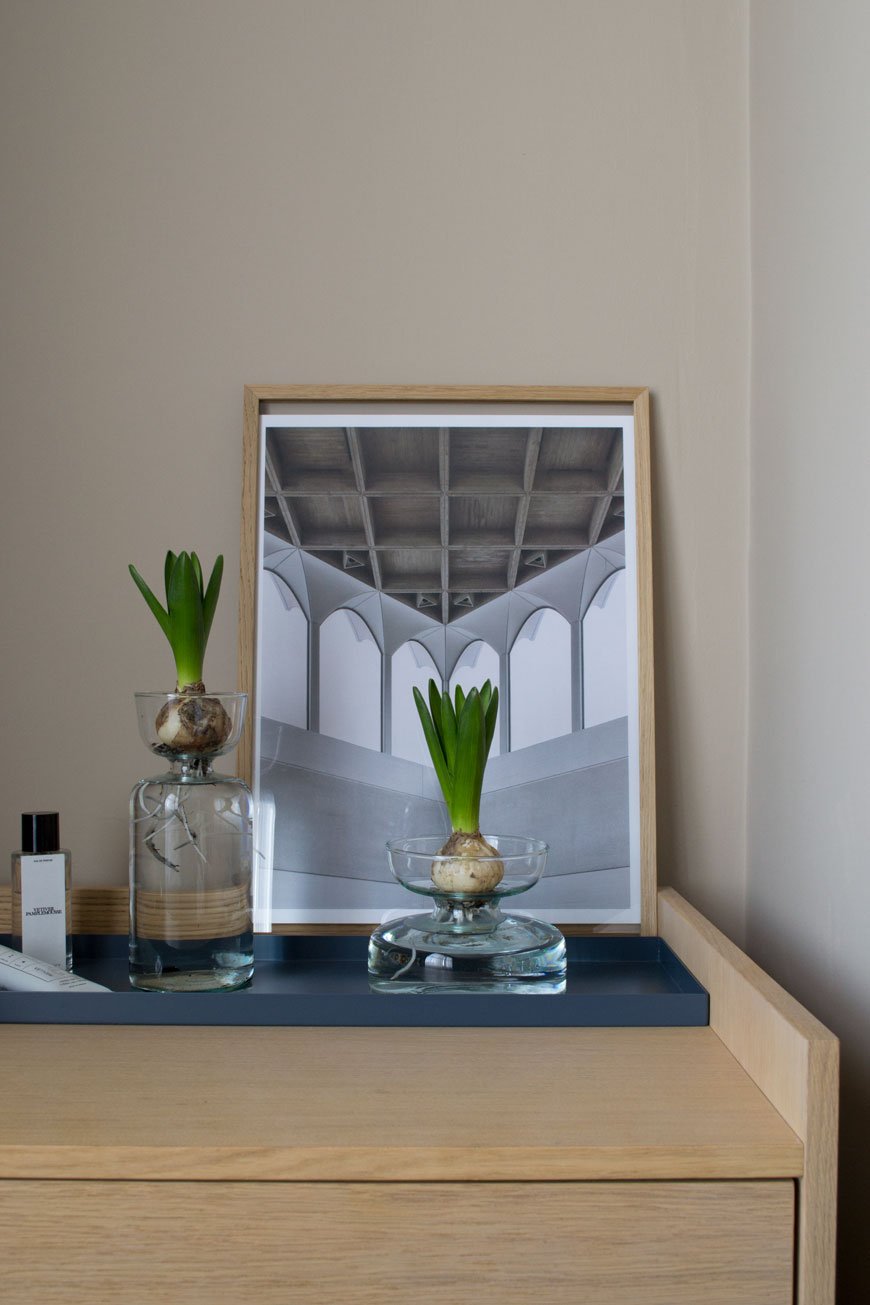
[Advertisement - select pieces from the LSA Canopy collection have been gifted by Heal's as part of their 'Recycle Remade' campaign.]
In the last week, I've noticed the garden start to come out of hibernation. That subtle glimpse of the promise of spring. And goodness knows we are READY for it. YES! So when my good friends at Heal's asked if I'd like to style select pieces from the LSA Canopy collection as part of their 2020 Sustainable Edit, it was an easy yes.
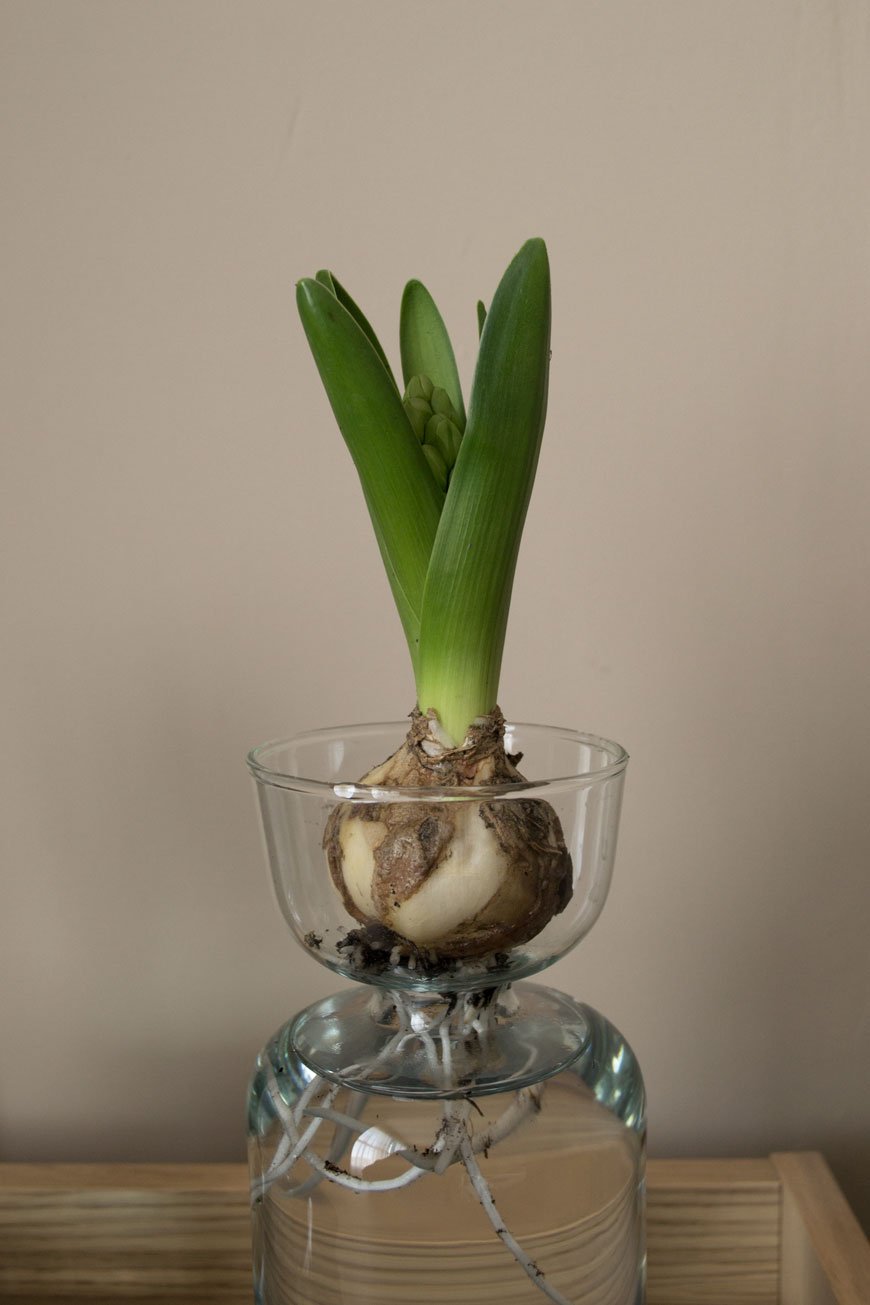
This year more than ever, Heal's are carrying the responsibility towards caring for the environment by championing products that are produced with recycled materials. Launching their full Sustainable Edit in March, their 'Recycle Remade' homeware range features the iF Design Award 2019 winning LSA Canopy collection.
Known for their glassware LSA have designed this collection in collaboration with the Eden Project, centred around the concept of propagation and hydration. Made from 100% recycled glass and sustainable cork, Canopy has a really fine feel to it. The glass is quite thin with occasional air bubbles, adding to the wabi-sabi, recycled appeal. Featuring low and tall vases and bulb planters, self-watering planters and terrariums, Canopy encourages the use of self-sufficient gardening, perfect for bringing nature into the home.
Canopy Vase / Bulb Planter, from £18.00
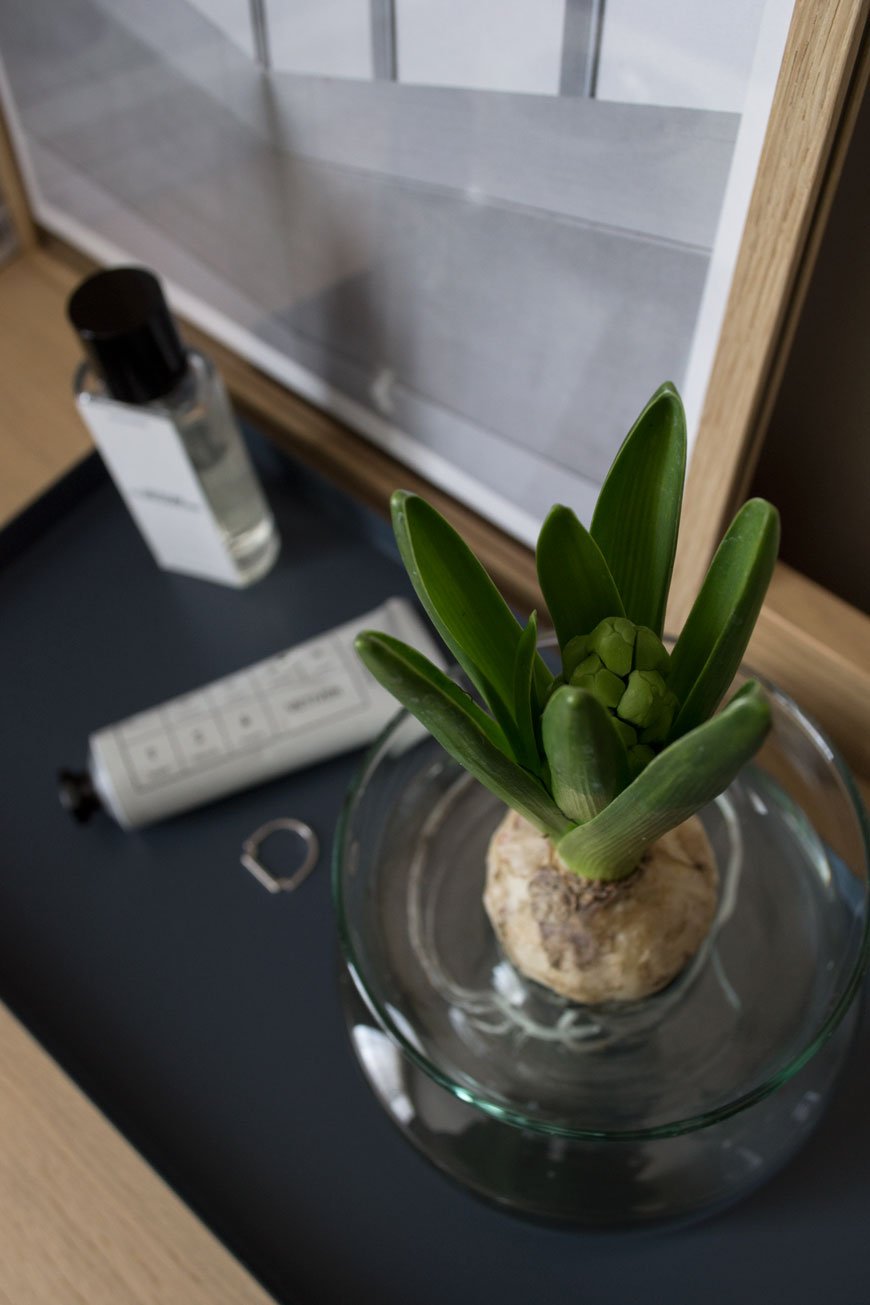
It's impossible to resist the heady fragrance of Hyacinths this time of year. I like to keep a potted cluster of bulbs in the house when I remember to pick some up from the garden centre. I've styled a couple of bulbs on our Morten chest of drawers in our bedroom (also from Heal's) which will bloom white in a few days. You can leave most of the soil around the root ball if you like but I've rinsed most of it away, threading the longers roots into the bottom of the vase.
Canopy Self-Watering Planter, from £36.00
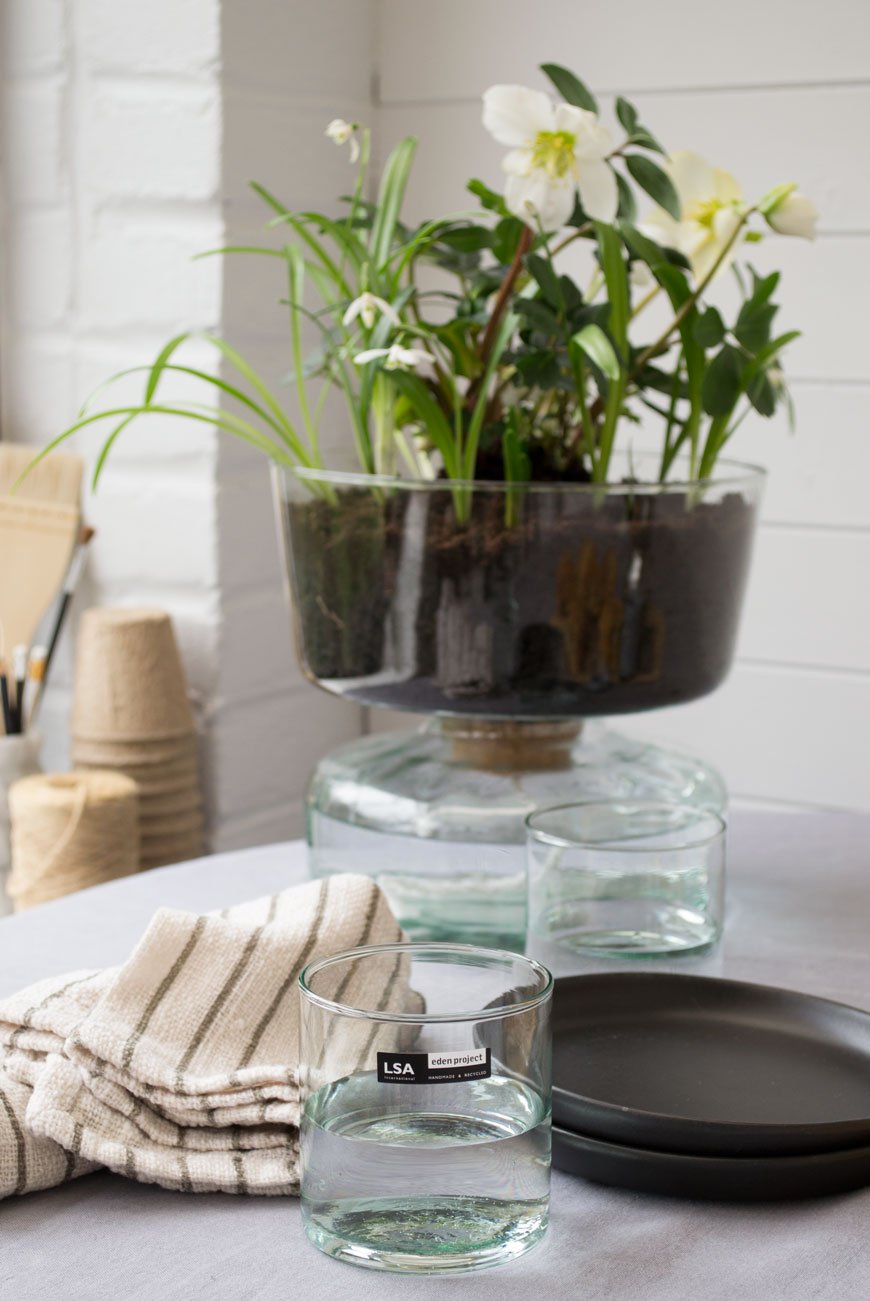
Another spring favourite of mine is the evergreen Hellebore or 'Christmas rose'. It has a long flowering period over winter, brightening up the border when other flowering plants are dormant. I've got them in the sunroom now, sitting in the self-watering planter. A clever hydration system made of two parts, a piece of rope connects the soil-filled planter on top to the water well beneath allowing the plant to draw up moisture as it needs it.
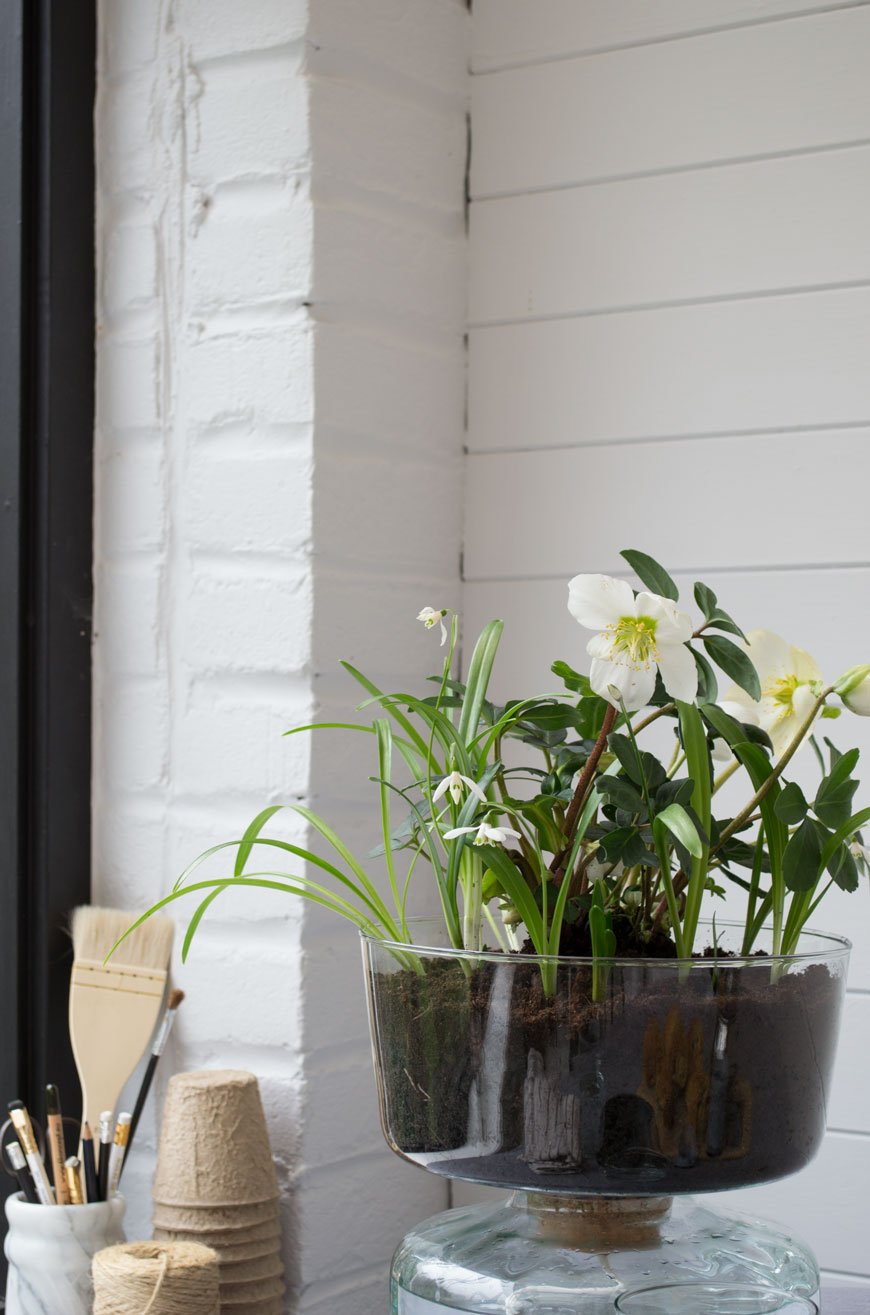
Every part of this collection has been considered, right down to the minimal packaging, made from recycled card and printed with organic vegetable ink.
Canopy Closed Garden, £40.00
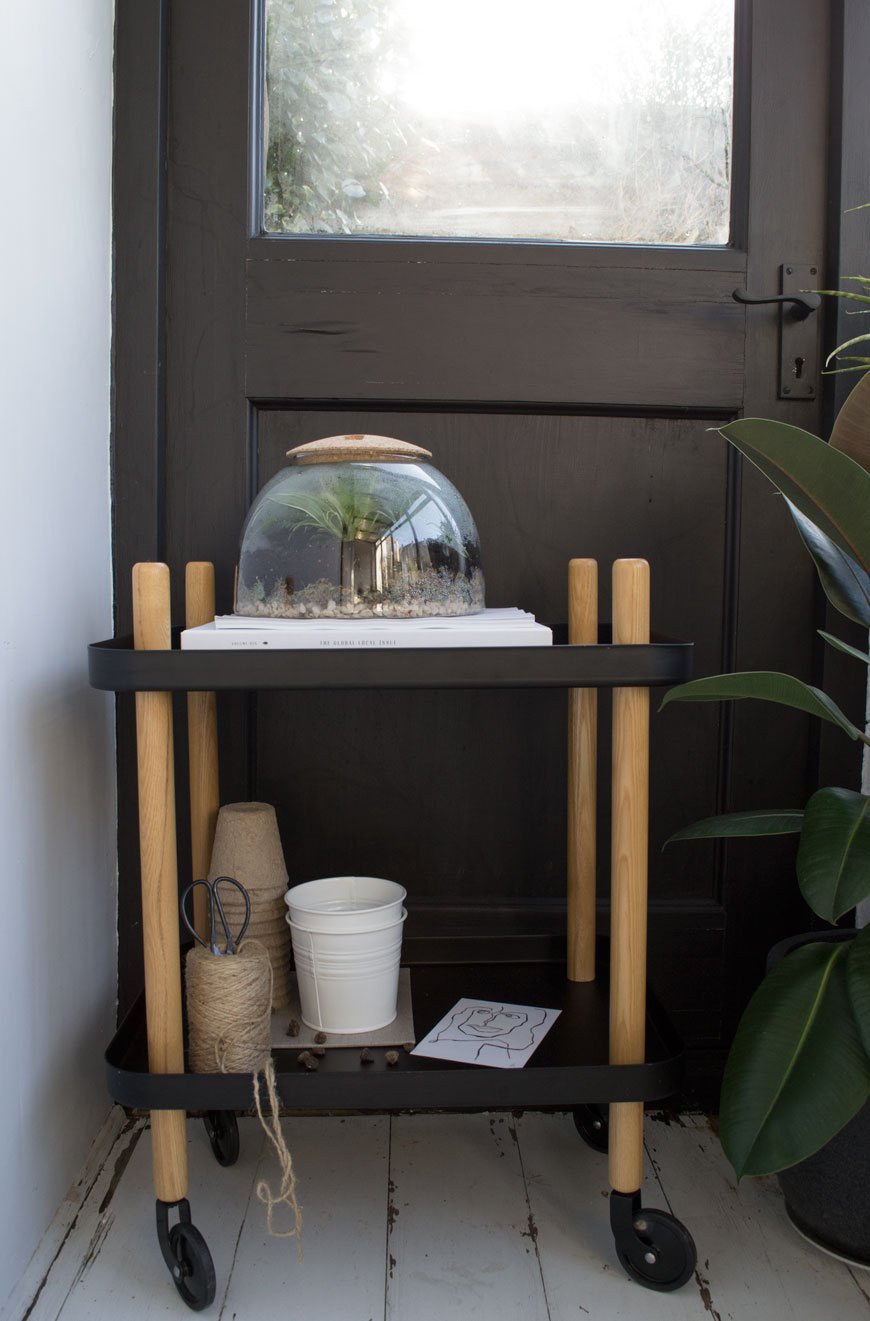
Inspired by the shape of the Biomes at the Eden Project, I used the Closed Garden to create a humid space for small spider plants and maidenhair ferns. Using a thin layer of gravel for drainage, I added a layer of sphagnum moss to help retain moisture before topping it with a good layer of houseplant compost. Once I'd pruned and planted everything in, a good spritz of water before closing the lid would provide the plants with the right level of humidity, light and temperature in their final spot in the sunroom. I'm excited to see them thrive in the coming months!
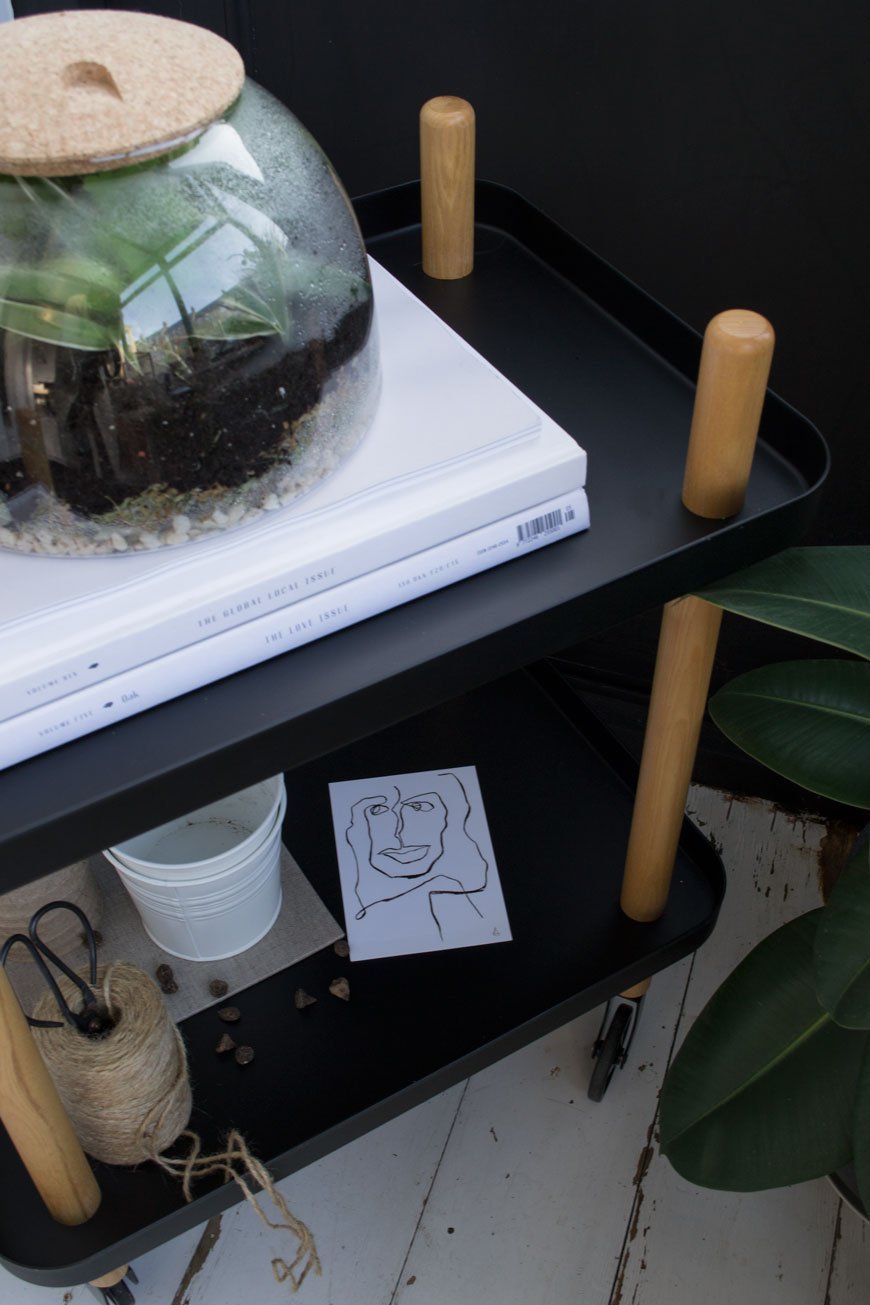
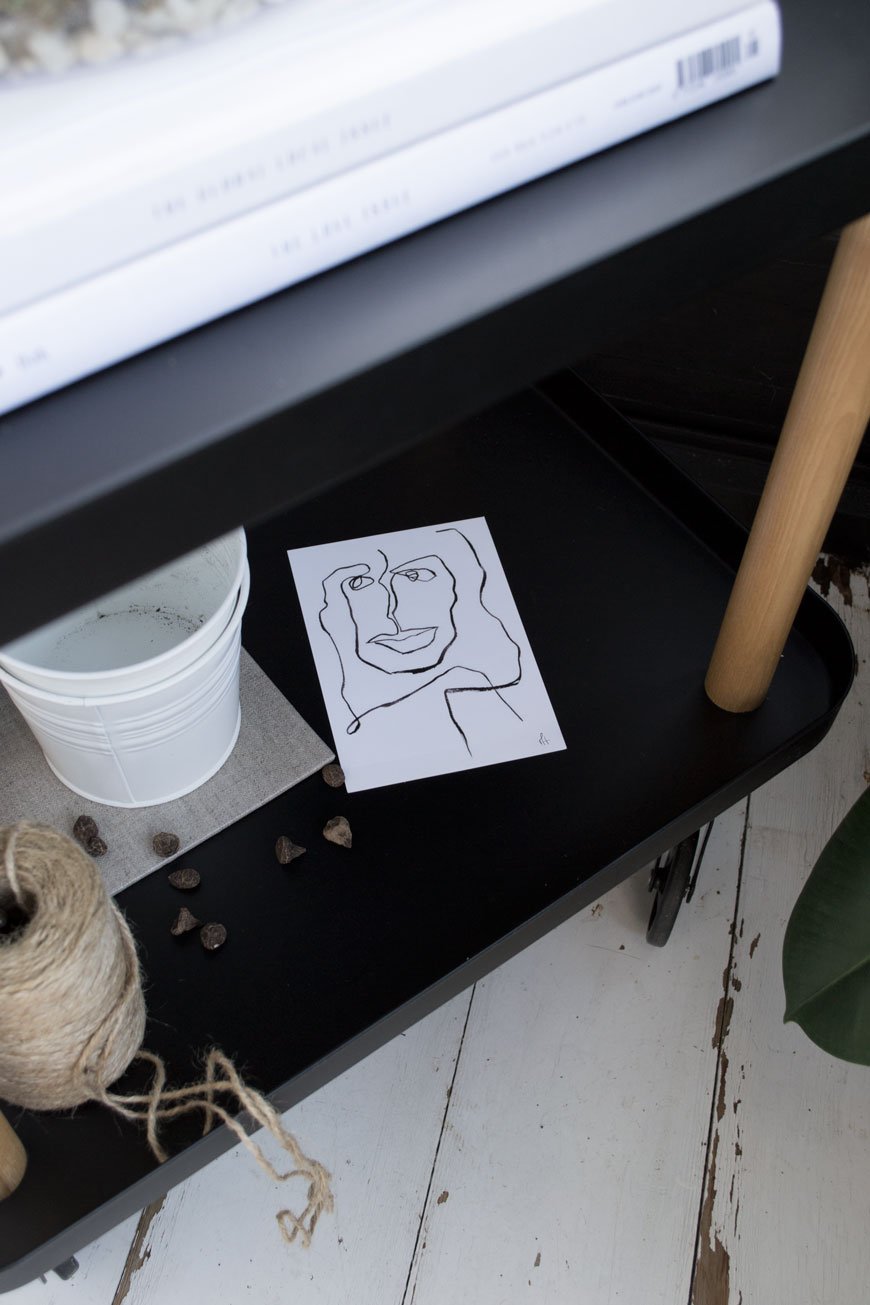
Photography and Styling © Tiffany Grant-Riley.
[AD] How To Make The Garden An Extension Of Your Home
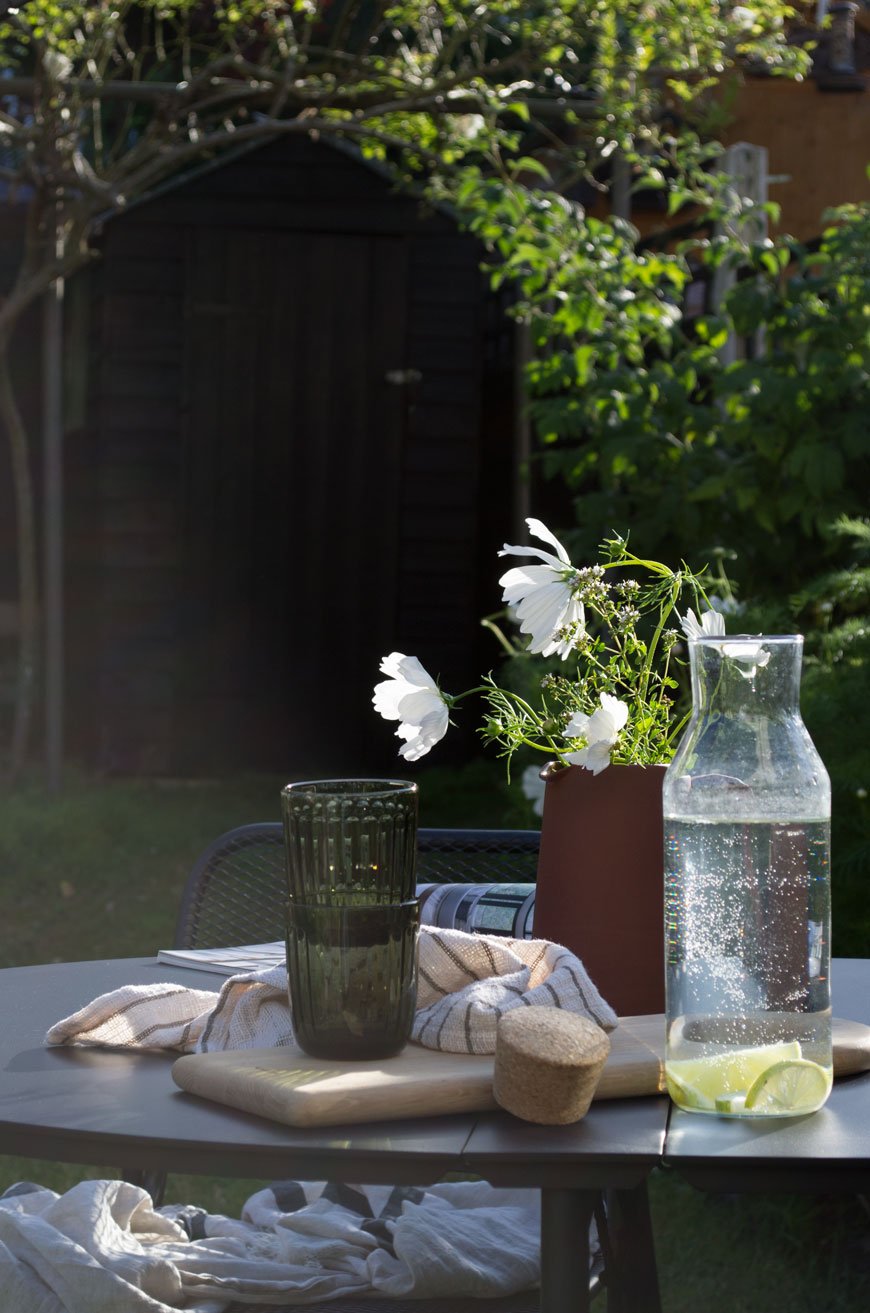
*This post includes gifted product in collaboration with Skagerak Denmark.
I absolutely love this time of year, when the boundaries between our home and the garden become blurred. Even as we move away from summer now and can feel the seasons beginning to change again, the back door is always open and the garden feels more like a cosy outdoor living space.
As a sort of final salute to the balmy summer months, I'm sharing what I've learned so far about making the garden feel like an extension of your home. It's simple, easy things that can be applied to any space no matter the size or orientation.

Connect The Boundaries
Start with the garden in the same way you would the inside of your home and look at the bare bones. Before you think about plants, consider refreshing the surrounding boundaries, be it wood or metal fencing, brick or concrete walls. Replace any tatty areas if you can. Decide if you want to make an architectural feature of that wall or if you want to tone down the appearance of your fencing.
I'm a huge advocate of the transformative qualities of paint and I personally think black, an anthracite grey or a soft white work wonders as a way to zone and define your garden. You'll see I've carried the black through from the sunroom windows into the garden this way (I used Ronseal Duck's Back in Black). Although at first it might look dominating, black is actually brilliant for making boring fencing look less imposing. Once you add in planting, they'll slowly blend in.
Repeat Similar Colours Through Plants and Accessories
A clever way to strengthen the connection between house and garden is to continue your colour palette from indoors. Pick out similar shades and tones that you've used for your interiors and echo them in your plants, pots and accessories. This way, the boundaries between the two spaces are blurred and as a result, feel better connected when you look out of the window.
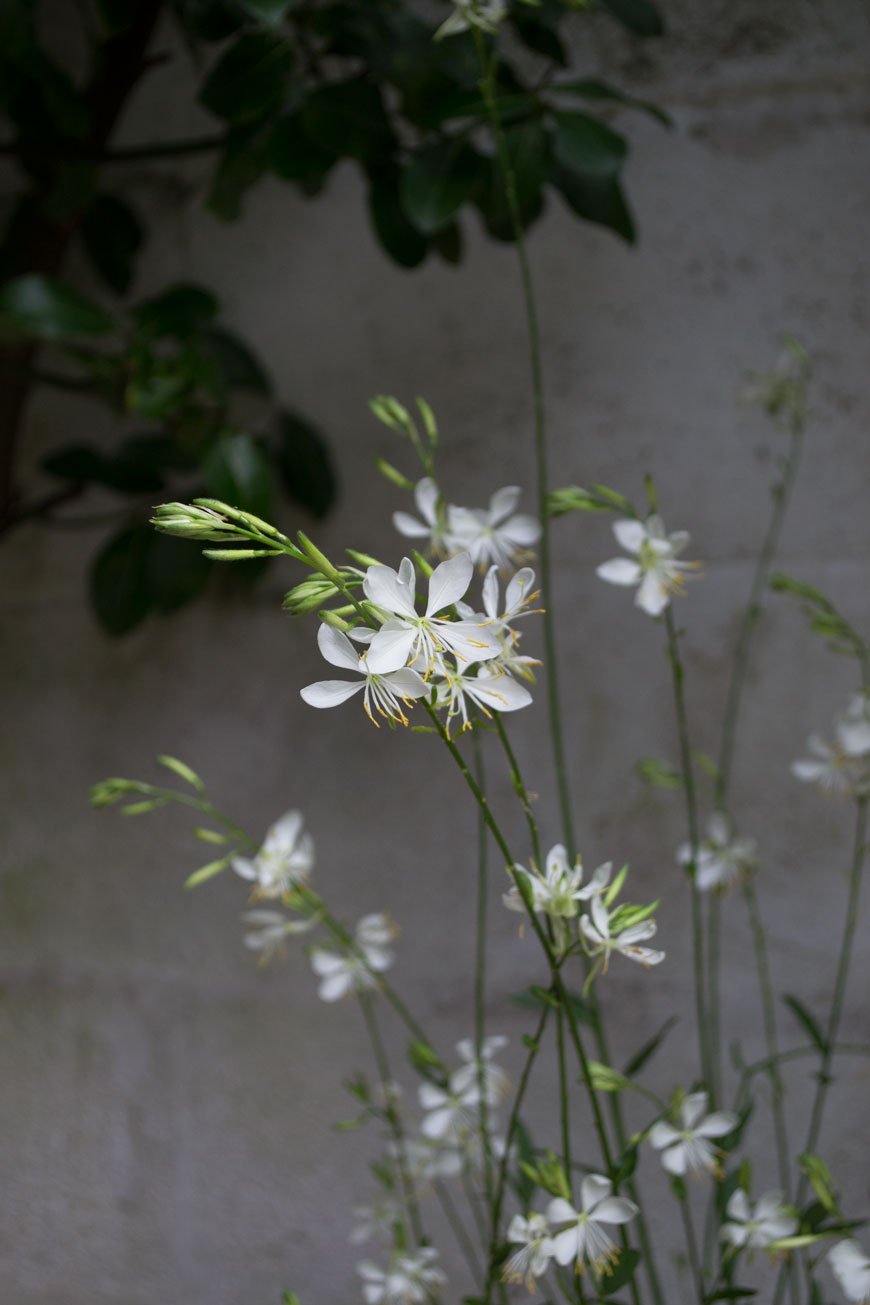
Our own home is fairly muted as colour goes but black features regularly as a contrast. I choose white flowering plants and touches of sepia and beige in a variety of ornamental grasses. I mix terracotta and grey pots to break up some of the black. These really stand out against the fencing which in turn create contrast and visual interest.
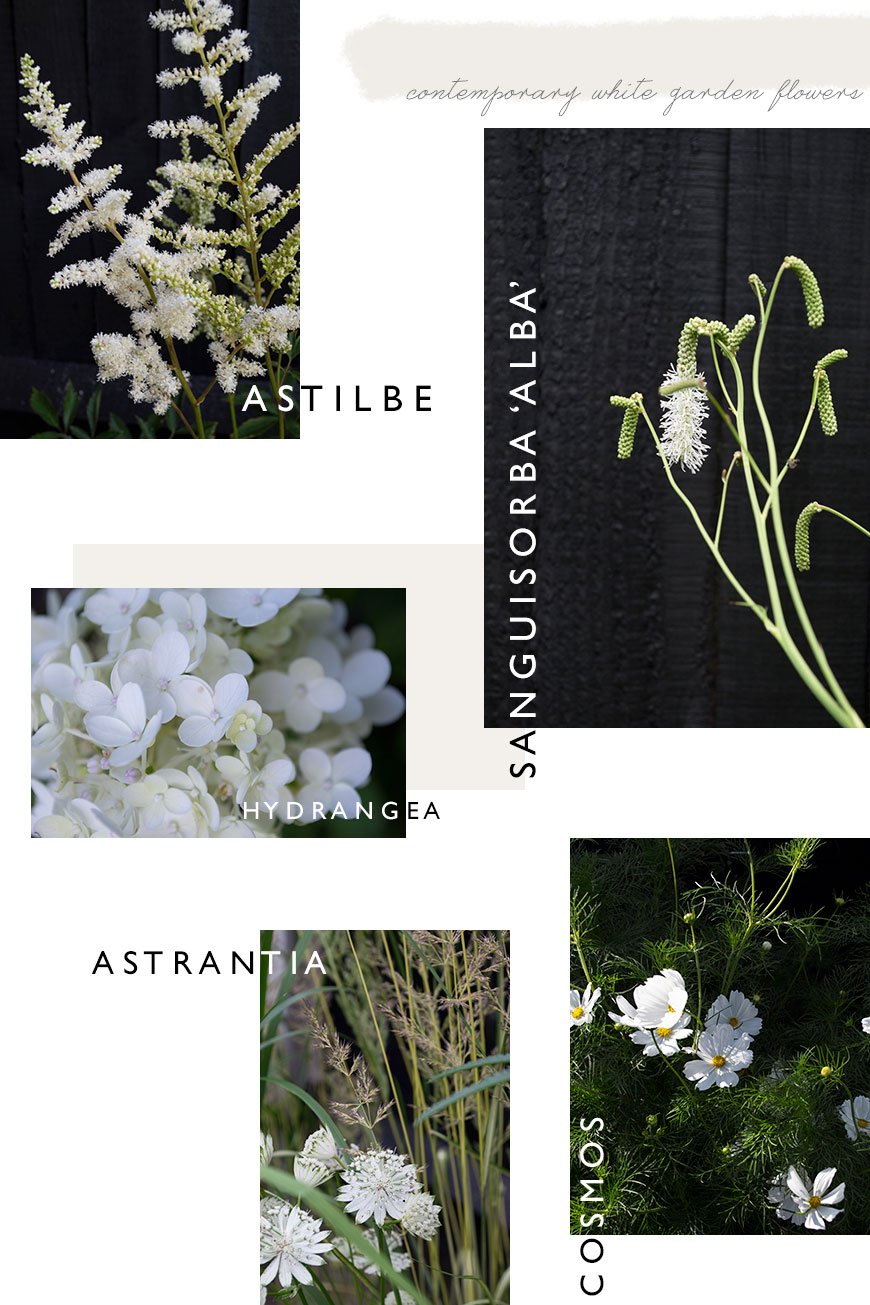
Scale and Texture
When an interior feels too flat it's probably because it's lacking the texture to give it depth. Remember that spending time in the garden is an experience for the sense - make your plants tactile, introduce scent and don't forget plants that will pick up the breeze for soothing sounds.
Choose a strong mix of large and small scale planting. Don't be afraid to try large-leaved plants such as fig, Musa Basjoo bananas and the prehistoric Gunnera against frondy, smaller foliage like grasses and bamboo.
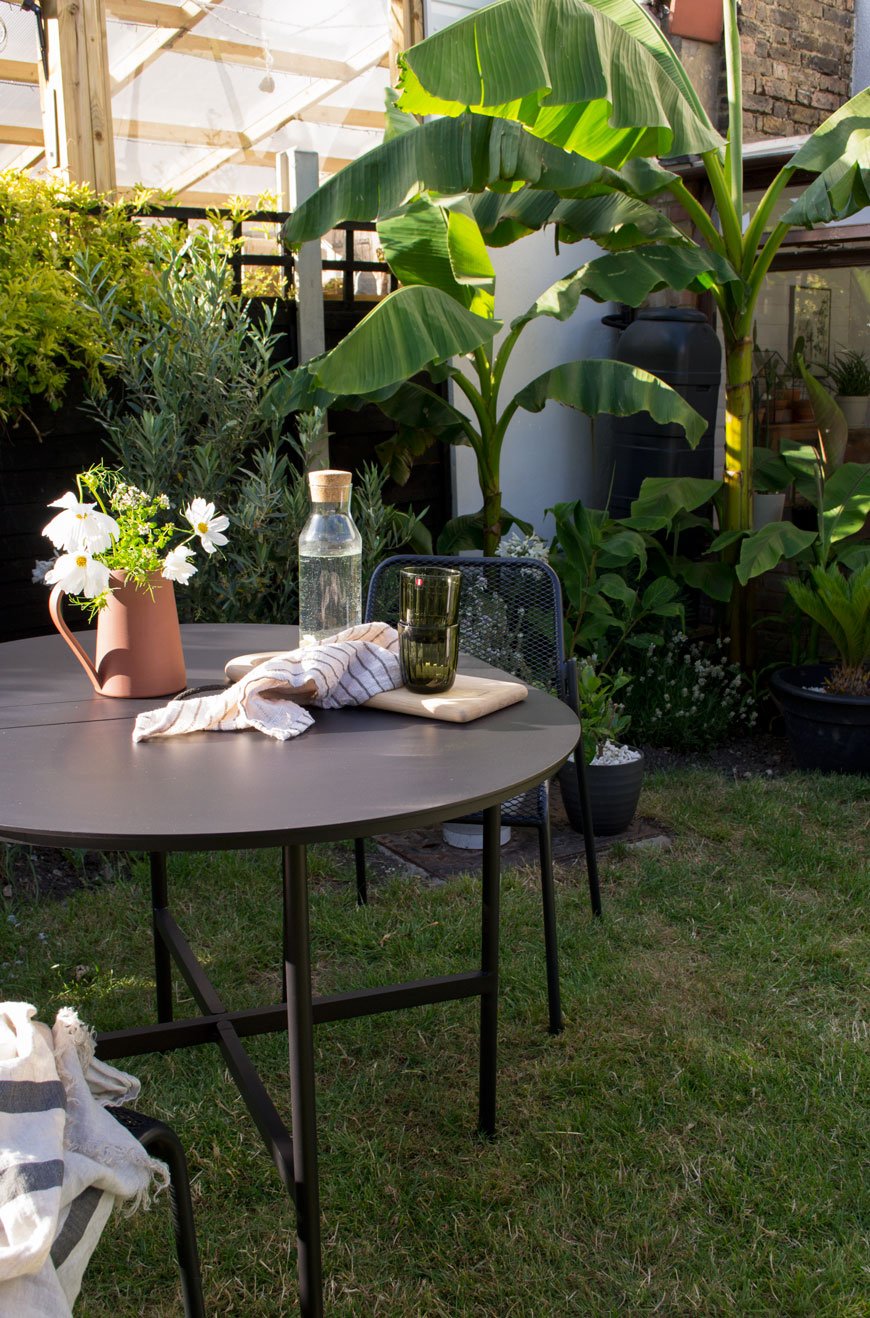
If you're sticking to a minimal gardening scheme, be bold and go for one or two giant pots - I love the patina of corten steel pots, for example.
Play with different tones in foliage if colour isn't your thing, planting darkest greens against silvery whites.
Create Space For Relaxation
Our habits naturally change in summer when we finally have the freedom to spend more time out in the garden. We might decide to have our coffee outside in the early morning sun instead of on the sofa. An off-the-cuff dinner can be cooked alfresco and enjoyed well into the evening. Make your garden feel more inviting with outdoor furniture that compliments your tastes indoors.
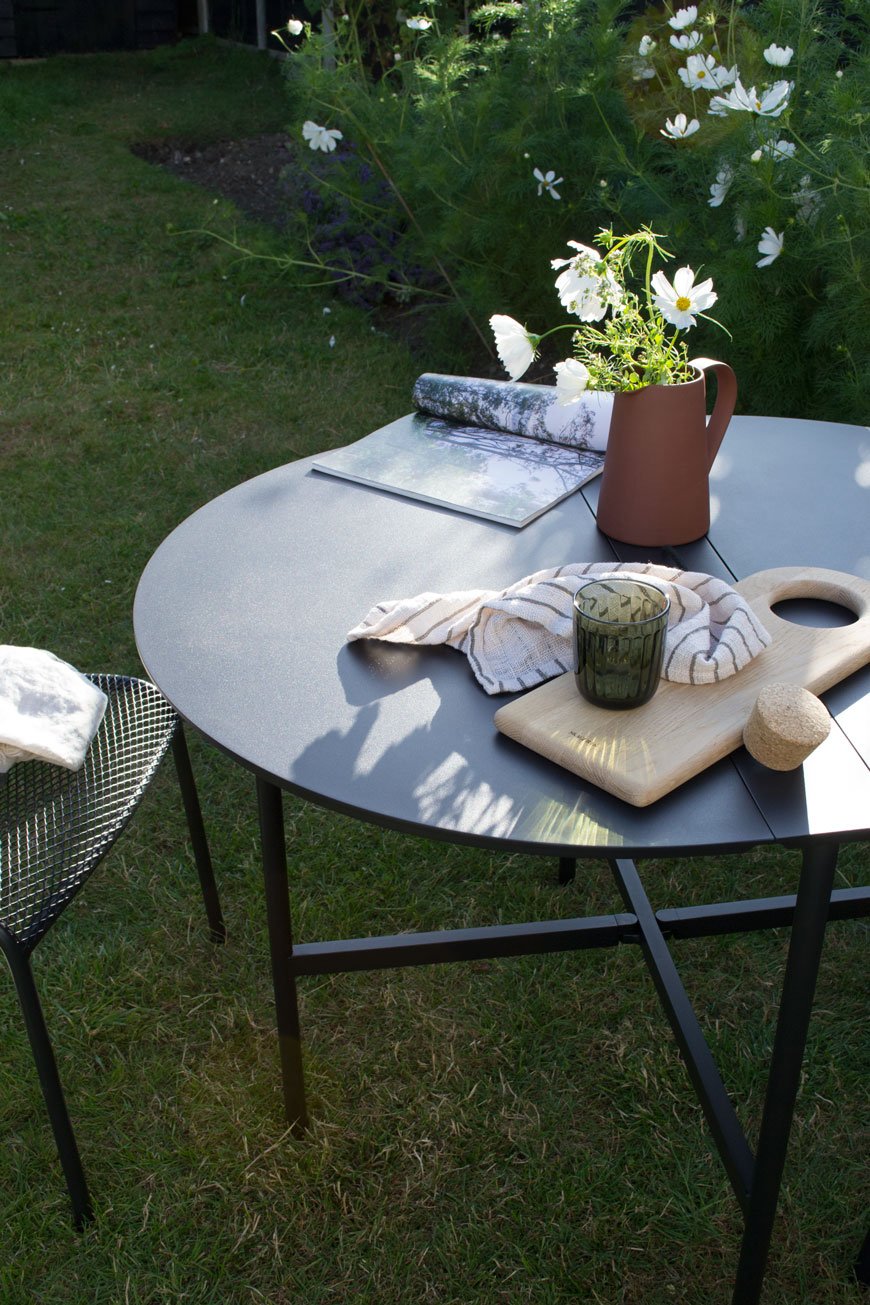
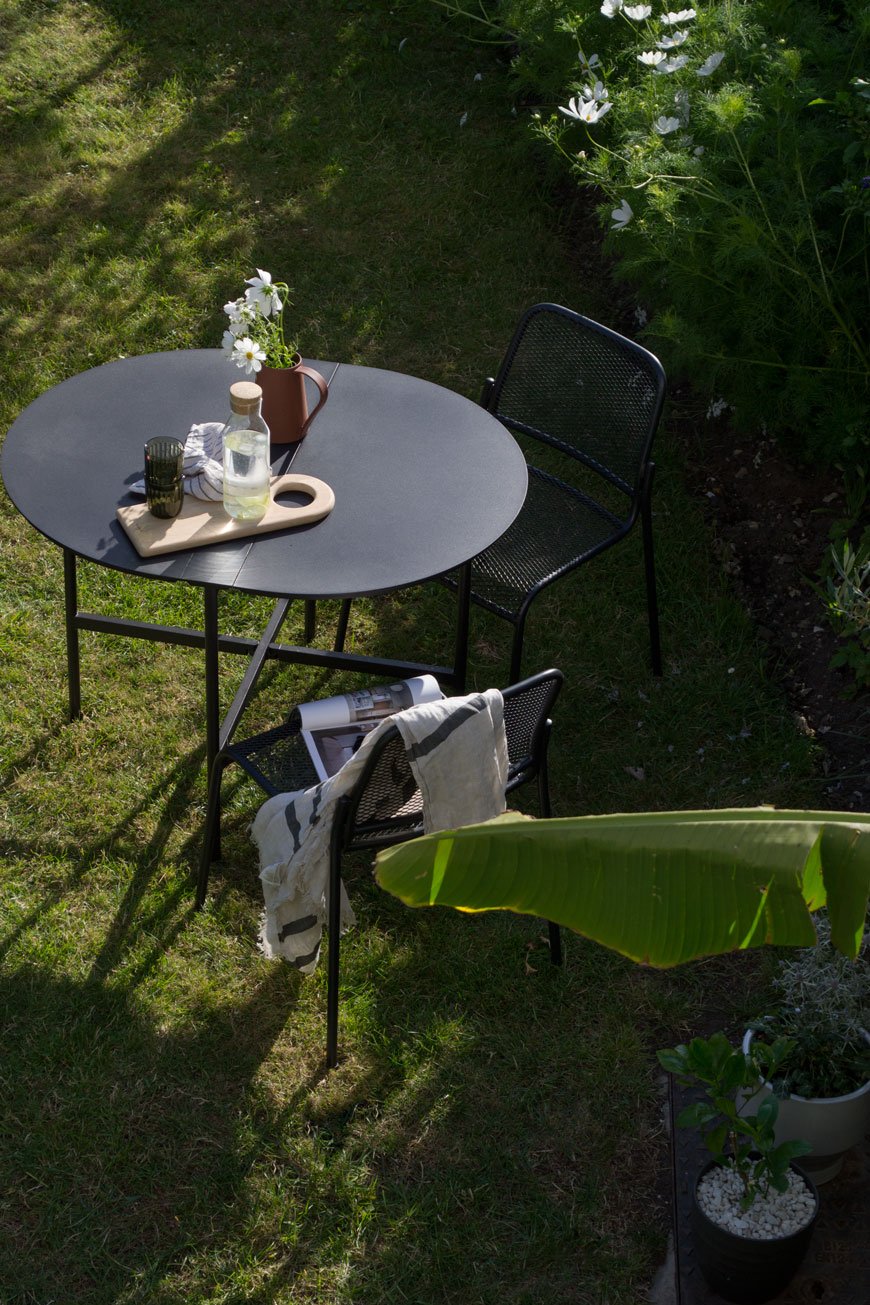
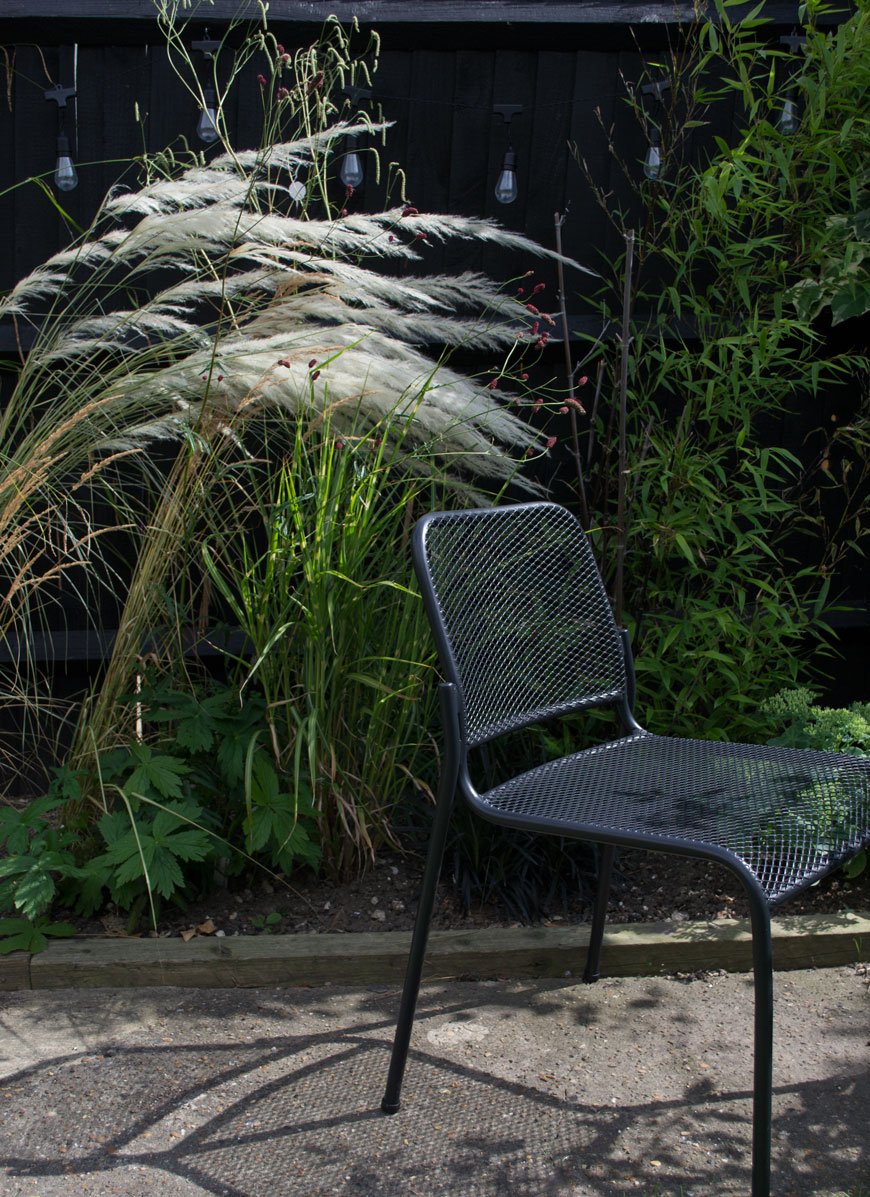
Before you start looking, think first how you want to use your garden. Do you want a permanent seating or dining area? Do you need space-saving furniture you can quickly fold away on your balcony? Once you've found the purpose, look to your furniture indoors to find a style that echos it.
As we use the garden as a family, sharing some of it with a not-so-attractive trampoline (!) we needed something functional that could be folded and stacked away to accommodate water fights, camping in the garden and the like. The Picnic table, designed by Herman Studio for Skagerak is perfect for that purpose. Based on a classic folding leaf table, it's made in a lightweight aluminium with a carry handle on top to move it as you wish. Stools from the same collection stack easily and look great indoors too when we need a few extra seats around the dining table. Designed by Mia Lagerman, the stackable Mira chairs (set to be a future Skagerak classic if you ask me) throw down stark and striking shadows through steel mesh seats.
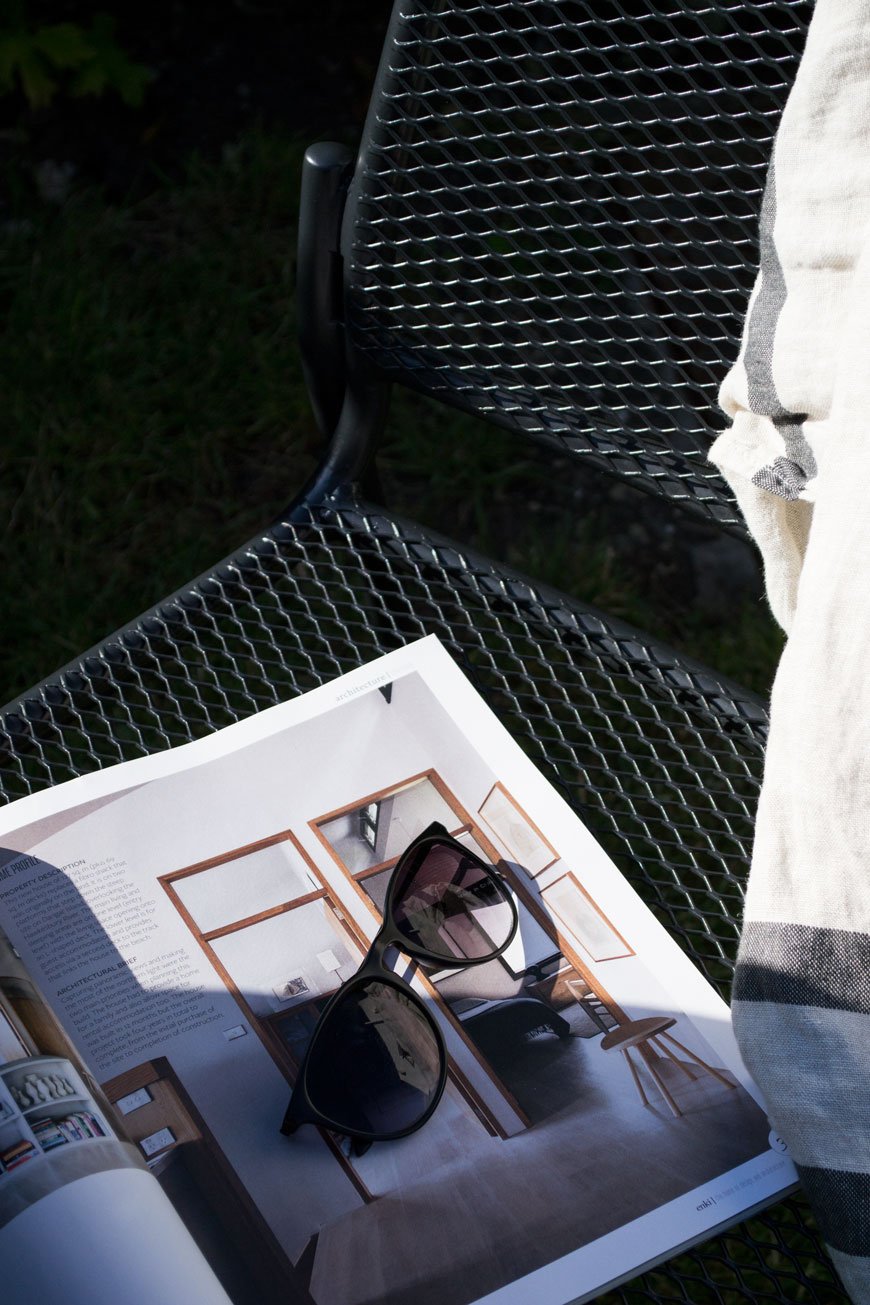
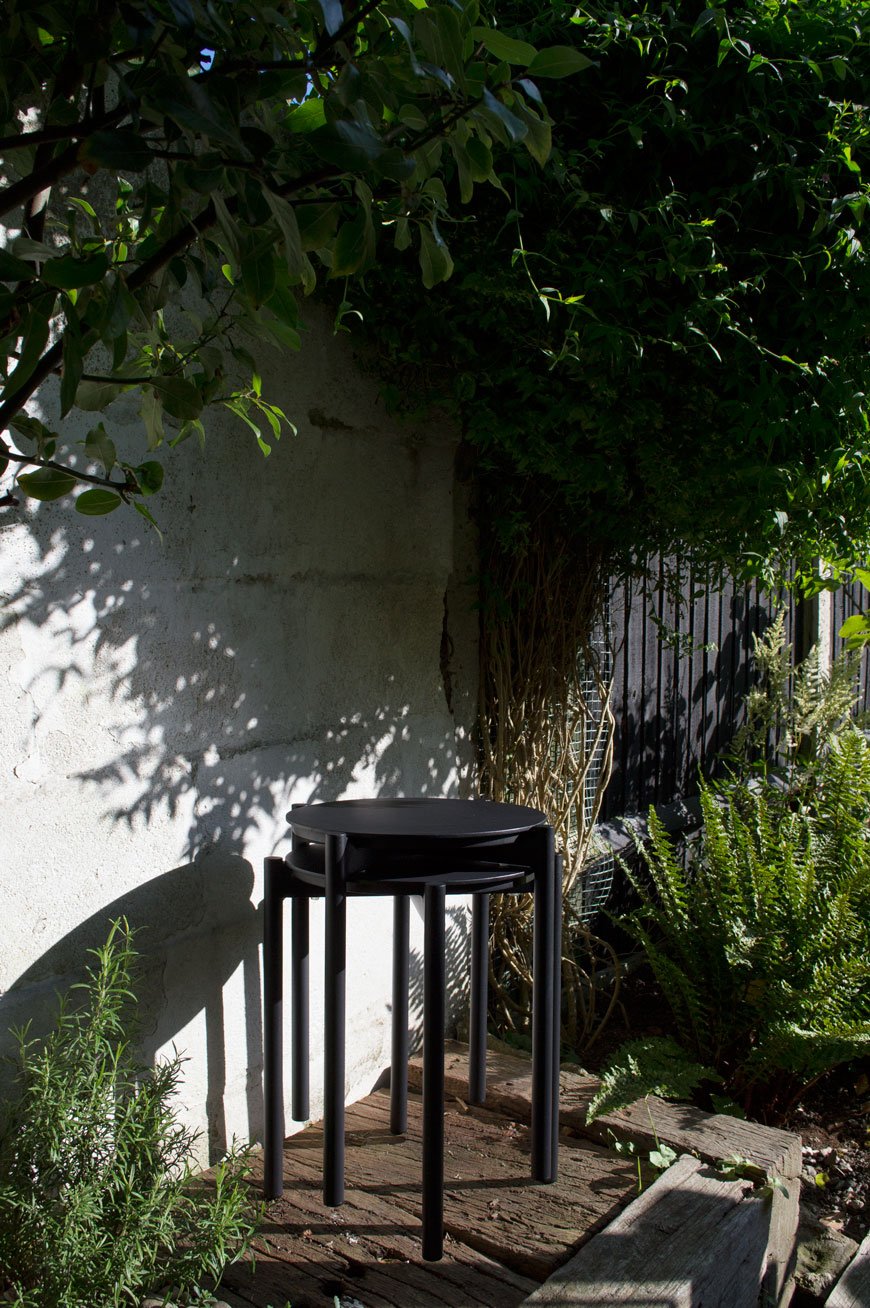
Layer The Light
Whether you use it to extend the amount of time you spend in the garden or simply to view it better from indoors, ambient lighting is essential. Outdoor lighting shows the garden from a completely different perspective at night and changes the way you experience it. Solar string lights are an update on a classic and you don't need to wire them into the mains to enjoy the warm glow in the evening.
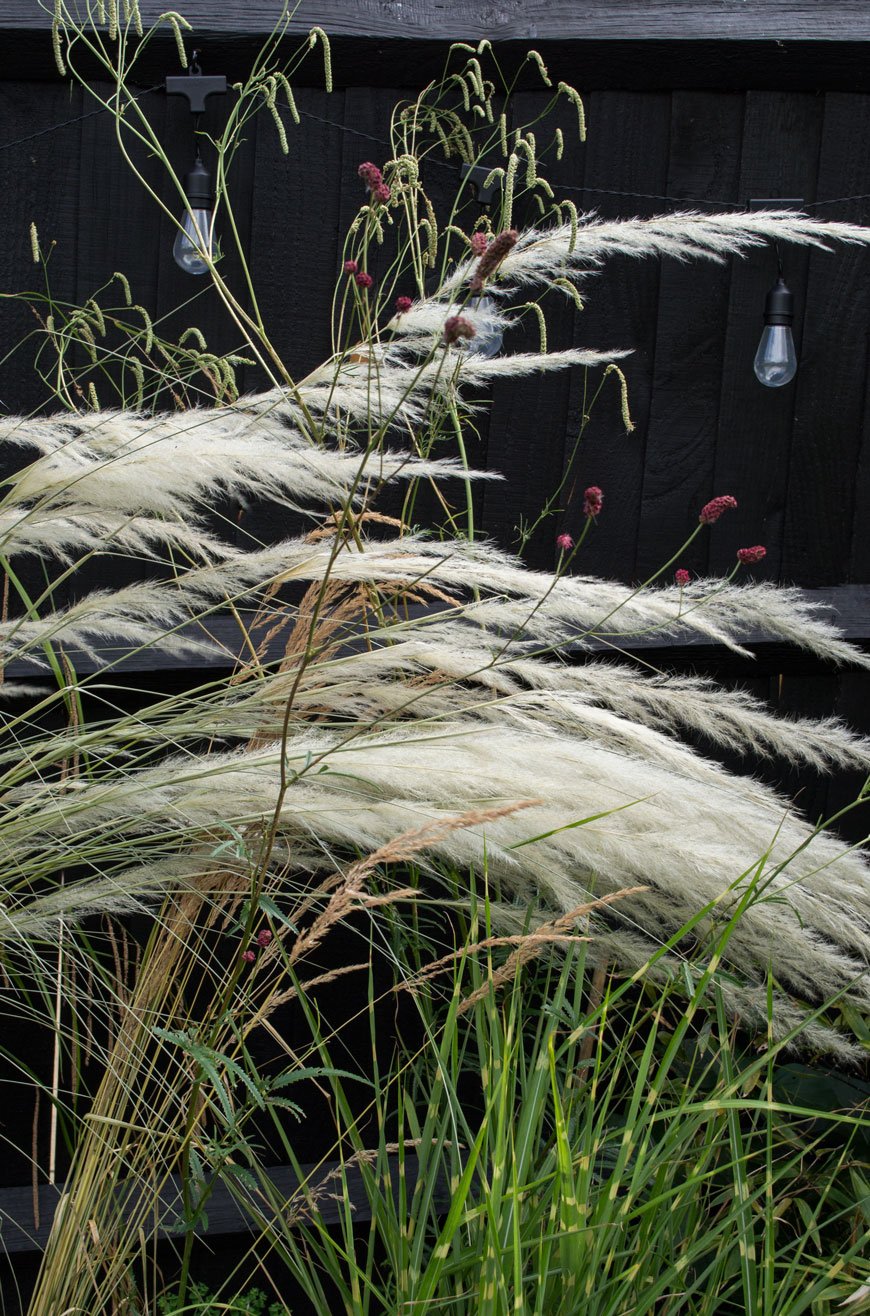
You can also use light to accentuate architectural details in your garden. Try solar spots dotted into your border to show off the shape of taller plants or bring a tree to life at night with subtle fairy lights. It can be a clever tool to show how to navigate through the garden at night, lighting your journey along the path to a lounge area as the destination. For more directional light when you're round the table together, use lanterns.
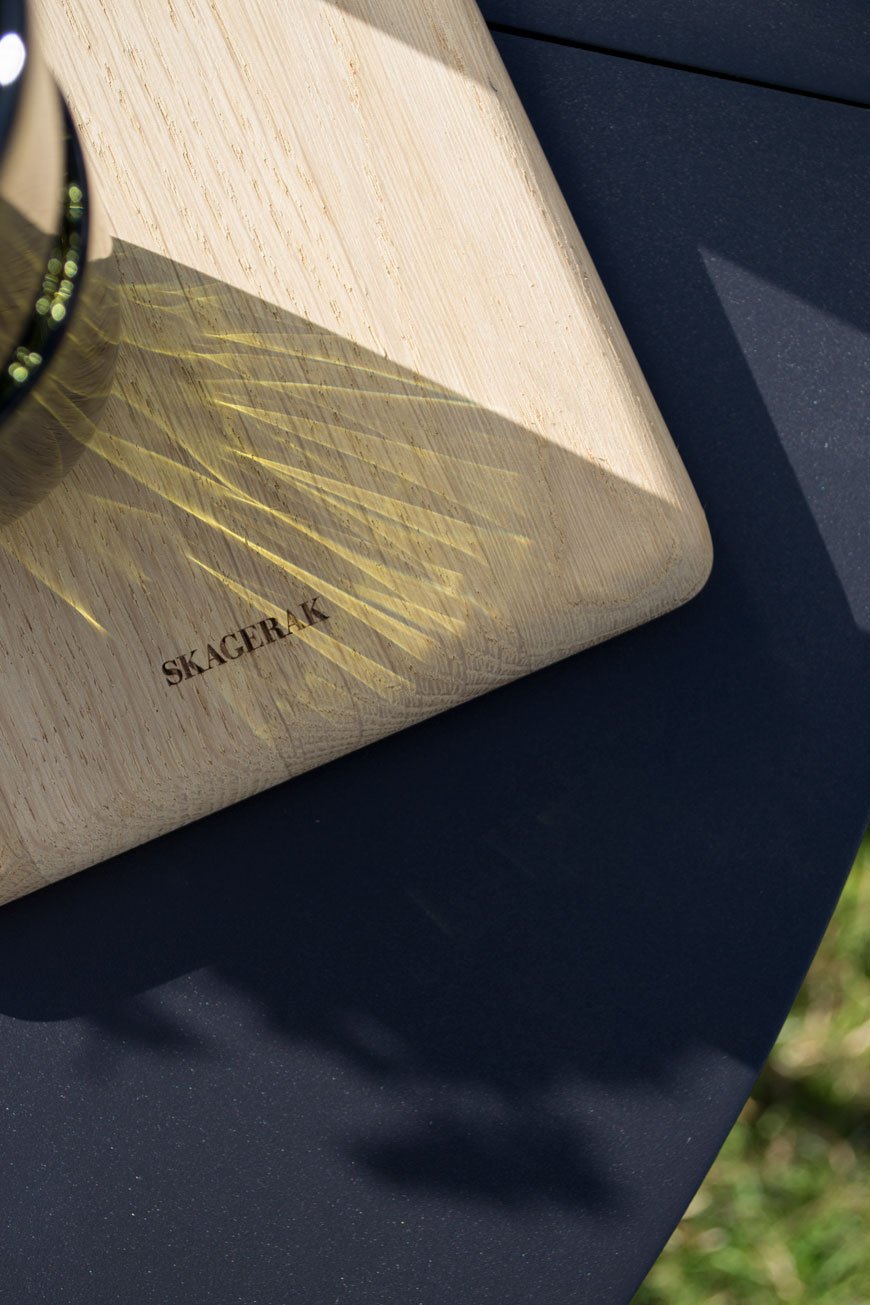
Grow Your Own
If you've yet to try growing your own, I highly recommend it. For one, the relaxation you get from sowing and nurturing plants is enough, but nothing beats the feeling of cooking and eating what you've grown. Using produce directly from the garden encourages you to head outside everyone once in a while and stay connected to the garden as it changes through the seasons.
You don't need huge amounts of space. A group of pots and a stretch of wall or trellis will allow you to grow vertically - great if you have a balcony. Pick easy to grow varieties of tomatoes, courgettes and berries to cultivate your own kitchen garden. Having a few well-stocked pots of herbs to hand by the back door is brilliant when you need a few sprigs for dinner too.
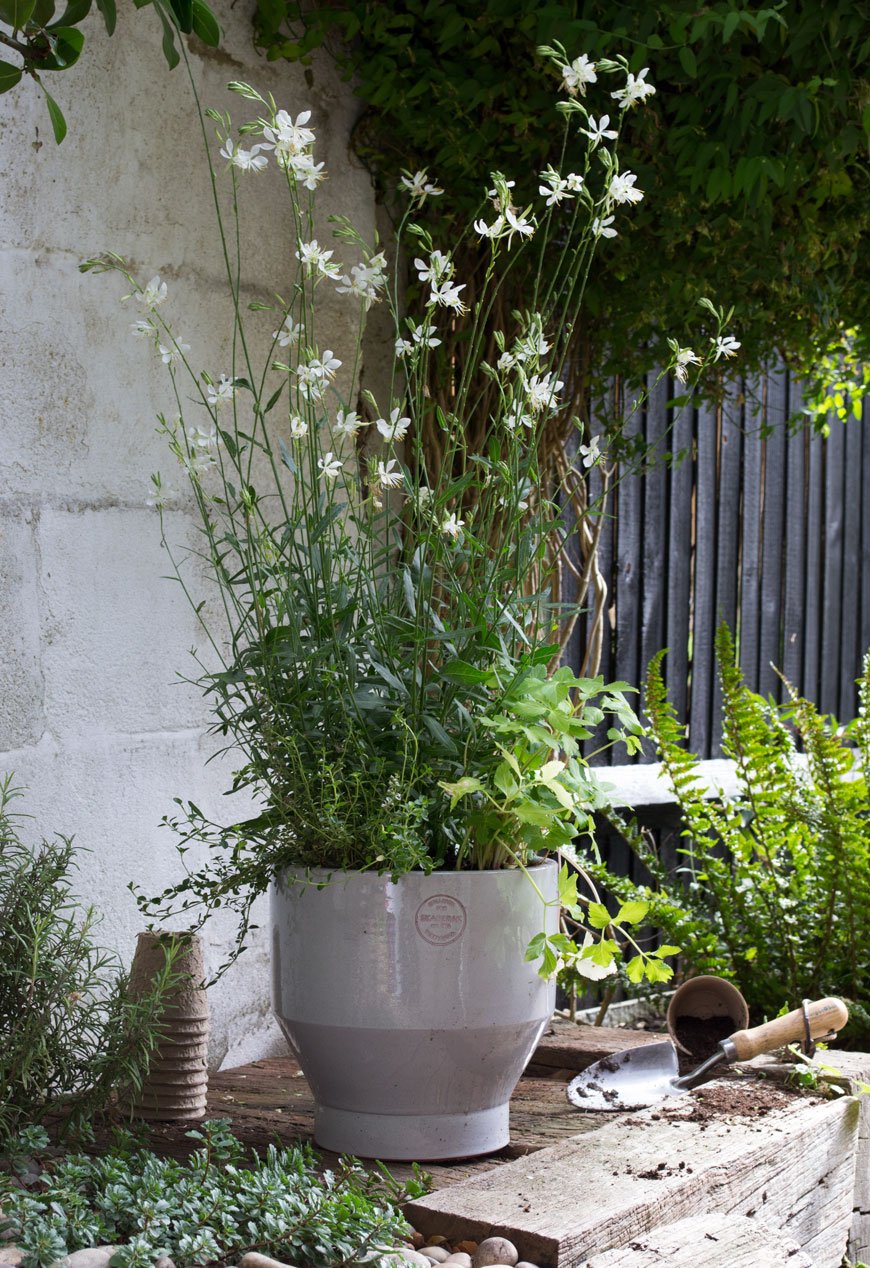
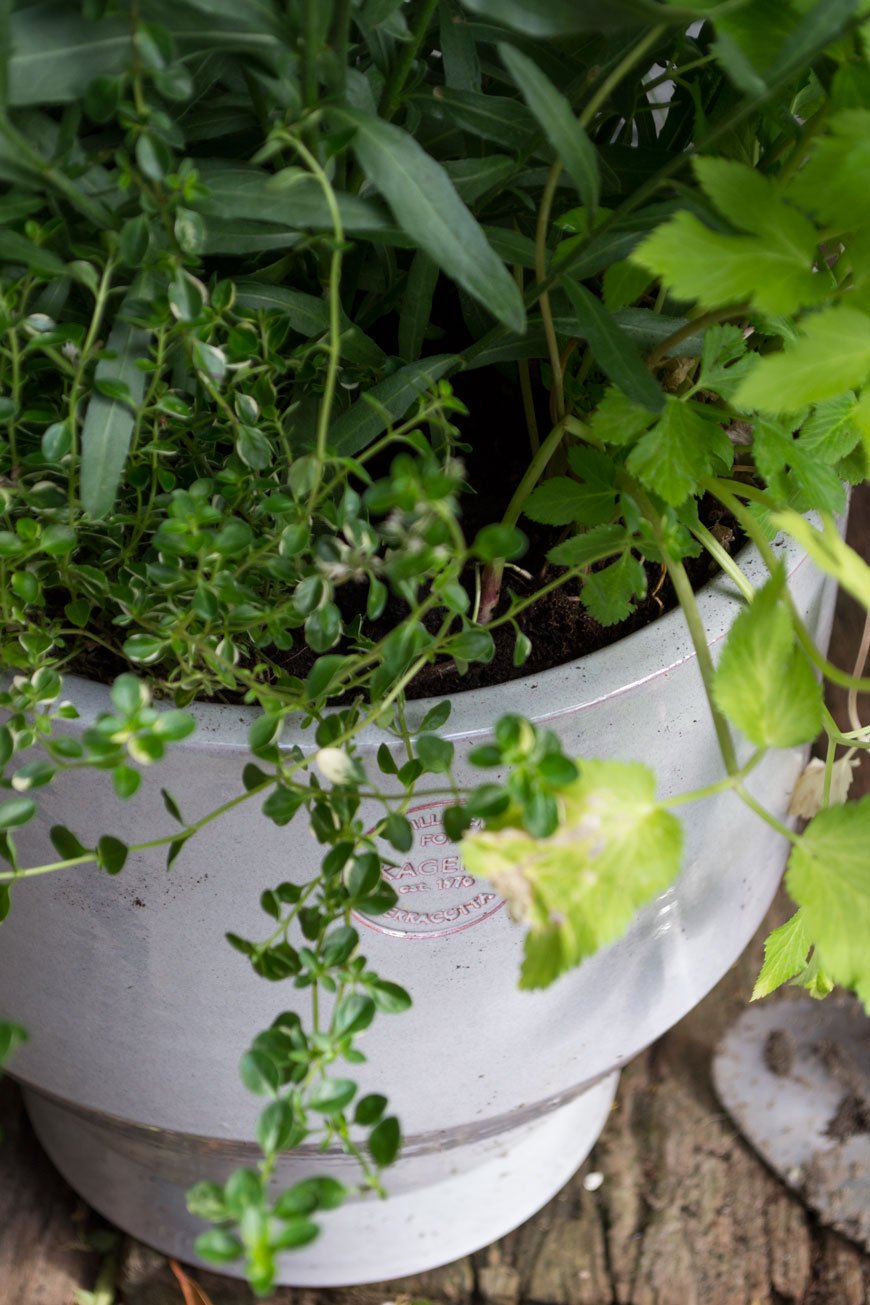
There we have it - how to make the garden feel more like an extension of your home. Summer may be a little long in the tooth now, but these tips will give you a strong foundation to help you bring your indoor and outdoor spaces together, whatever the season.
Photography and Styling © Tiffany Grant-Riley
Outdoor Furniture for a Modern Scandi Garden
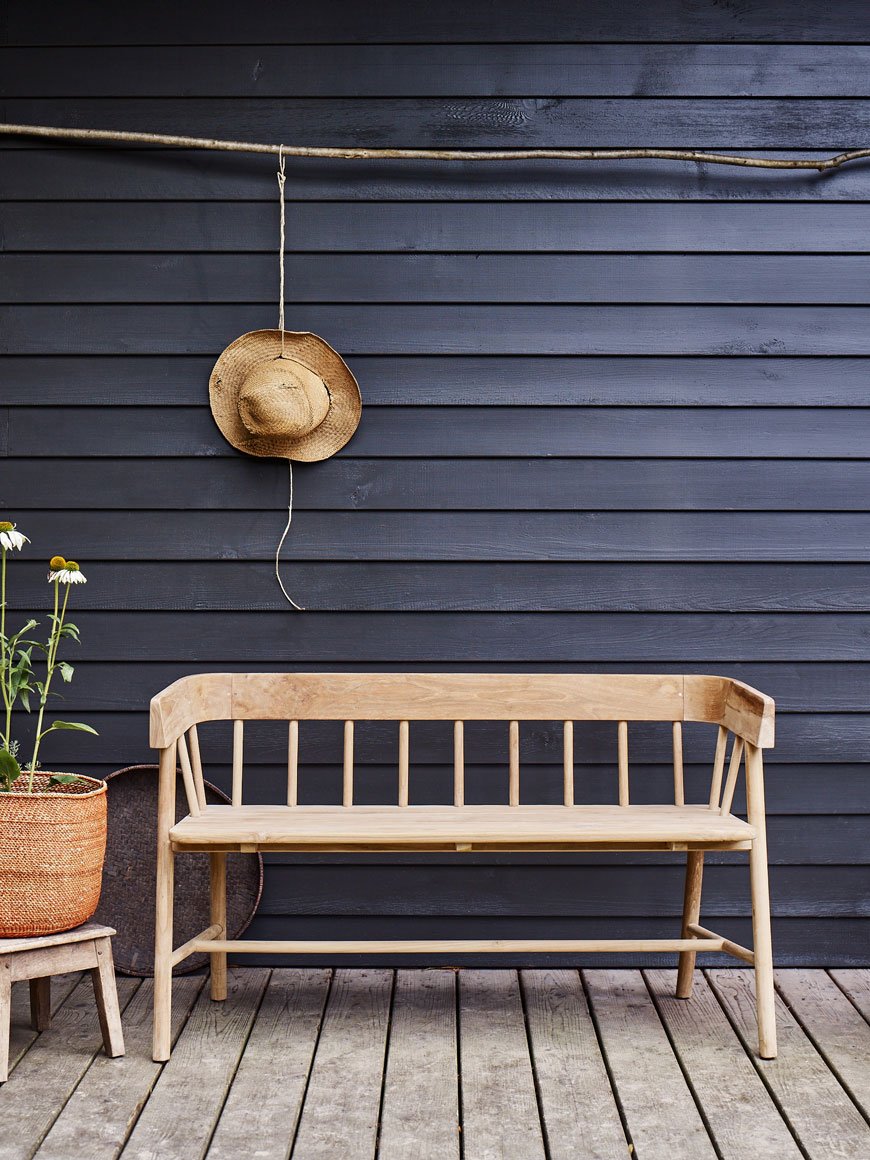 It’s true that outdoor furniture has a bit of a reputation for being outdated and plastic-y. A far cry from its indoor cousin, it might be down to the fact that we use it seasonally here in the UK, in between ducking rain showers. But as our gardens are beginning to evolve into outdoor living spaces, brands are catching up. As I'm always so good to you, I’ve put aside our house renovations to pick out five brands with collections that suit a modern Scandi garden. Think clean lines with a crafted feel to compliment contemporary planting, perhaps a gravel garden with black fencing and architectural planting. A space that remains both timeless and a place to spend time in. Furniture made with honest materials. In short, exactly what I’m working towards with my own garden!
It’s true that outdoor furniture has a bit of a reputation for being outdated and plastic-y. A far cry from its indoor cousin, it might be down to the fact that we use it seasonally here in the UK, in between ducking rain showers. But as our gardens are beginning to evolve into outdoor living spaces, brands are catching up. As I'm always so good to you, I’ve put aside our house renovations to pick out five brands with collections that suit a modern Scandi garden. Think clean lines with a crafted feel to compliment contemporary planting, perhaps a gravel garden with black fencing and architectural planting. A space that remains both timeless and a place to spend time in. Furniture made with honest materials. In short, exactly what I’m working towards with my own garden!
Rowen and Wren
What I love about Rowen and Wren is their keen eye for beautifully crafted, simple homewares that sit comfortably in just about any setting. I've honed in on two of their functional, wooden collections which illustrate just that.Made from sustainable teak, the Byron bench bridges the gap between indoors and out. With its smooth, curved back it makes an ideal spot for that morning coffee, perhaps with a cushion on the seat. It's a versatile addition to have at the table too - keep it indoors in the winter and bring it outside with the warmer months.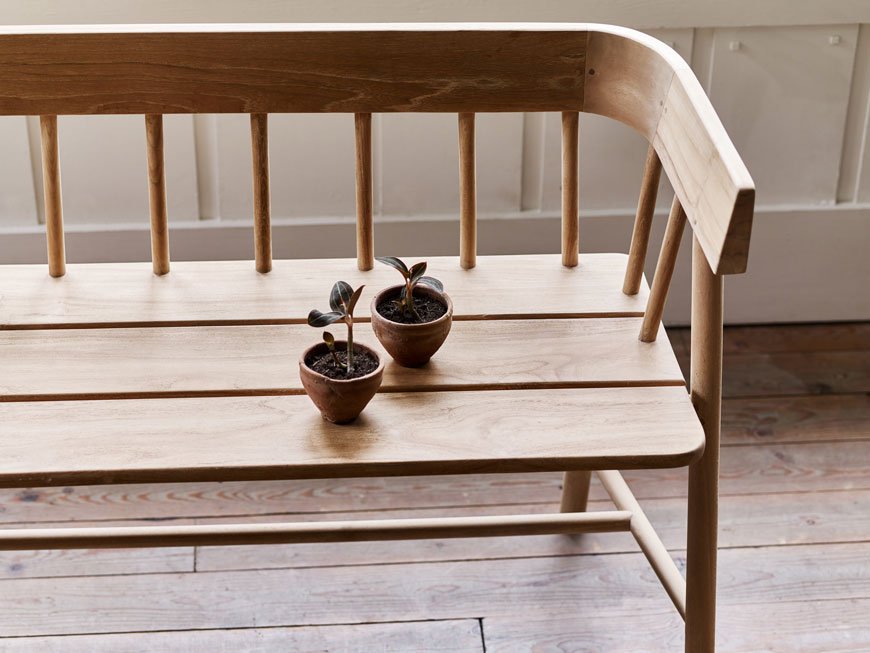
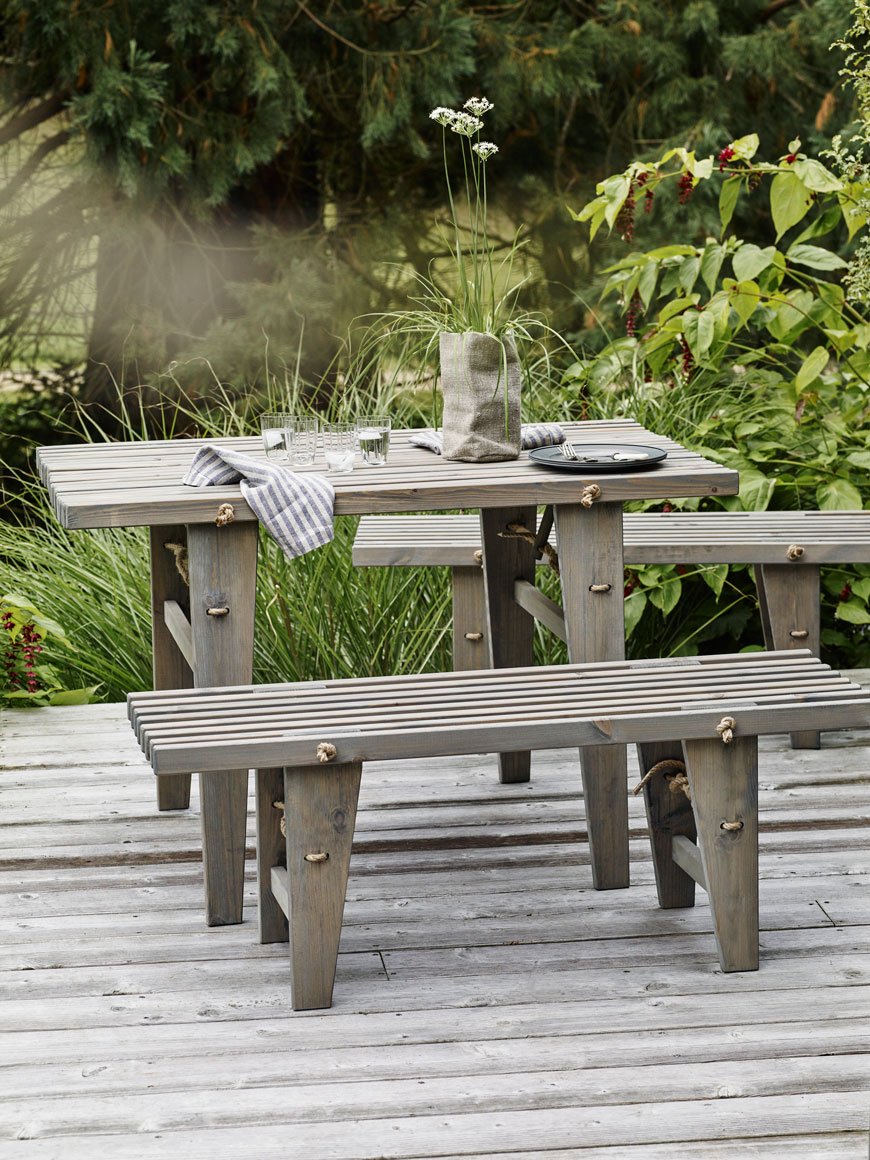 Drawing on the slatted wood trend, the Harman collection has coastal appeal with its combination of wood and rope. Effortlessly stylish, the table and benches are perfect for impromptu gatherings in the garden and come in oiled grey or black. There's also scope to mix and match your garden set-up with stools and chairs to compliment. I could see myself using the black bench in our hallway during the winter months, so much would it compliment a minimal interior.
Drawing on the slatted wood trend, the Harman collection has coastal appeal with its combination of wood and rope. Effortlessly stylish, the table and benches are perfect for impromptu gatherings in the garden and come in oiled grey or black. There's also scope to mix and match your garden set-up with stools and chairs to compliment. I could see myself using the black bench in our hallway during the winter months, so much would it compliment a minimal interior.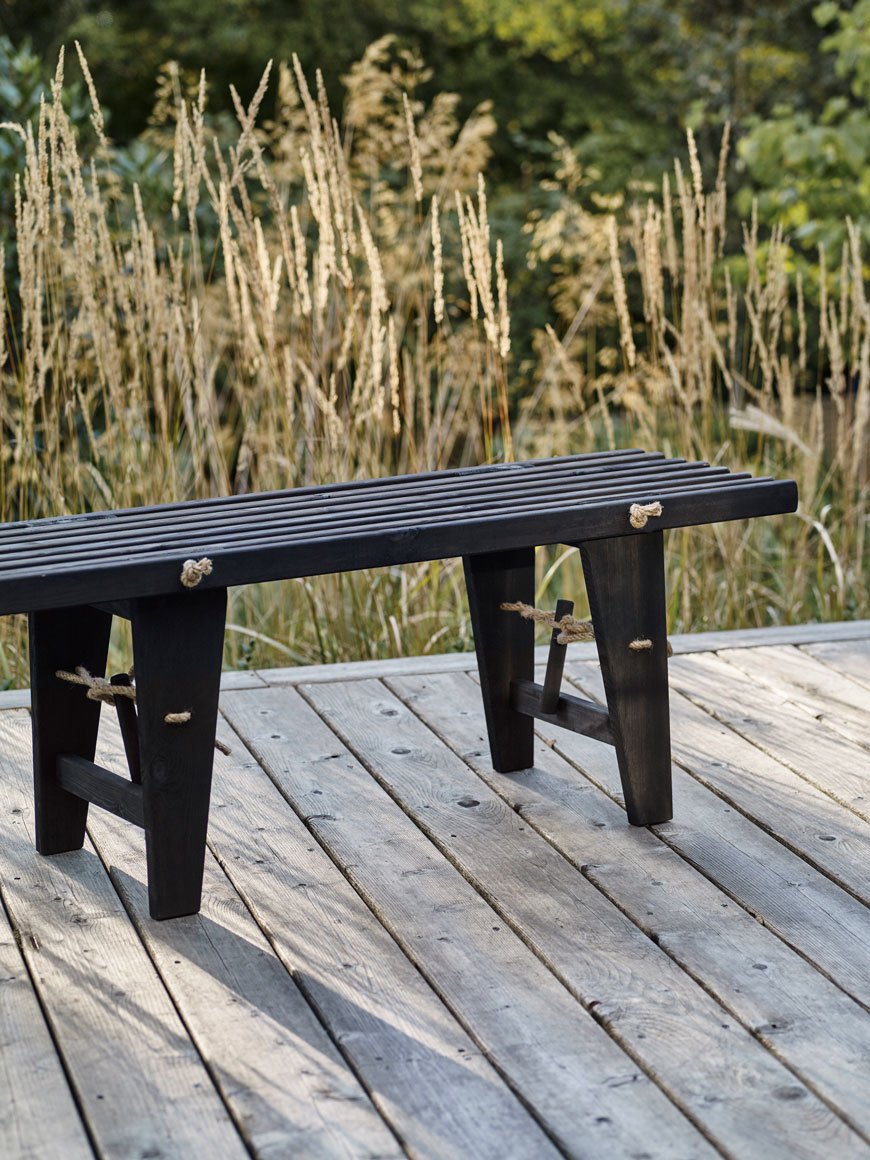
Woud
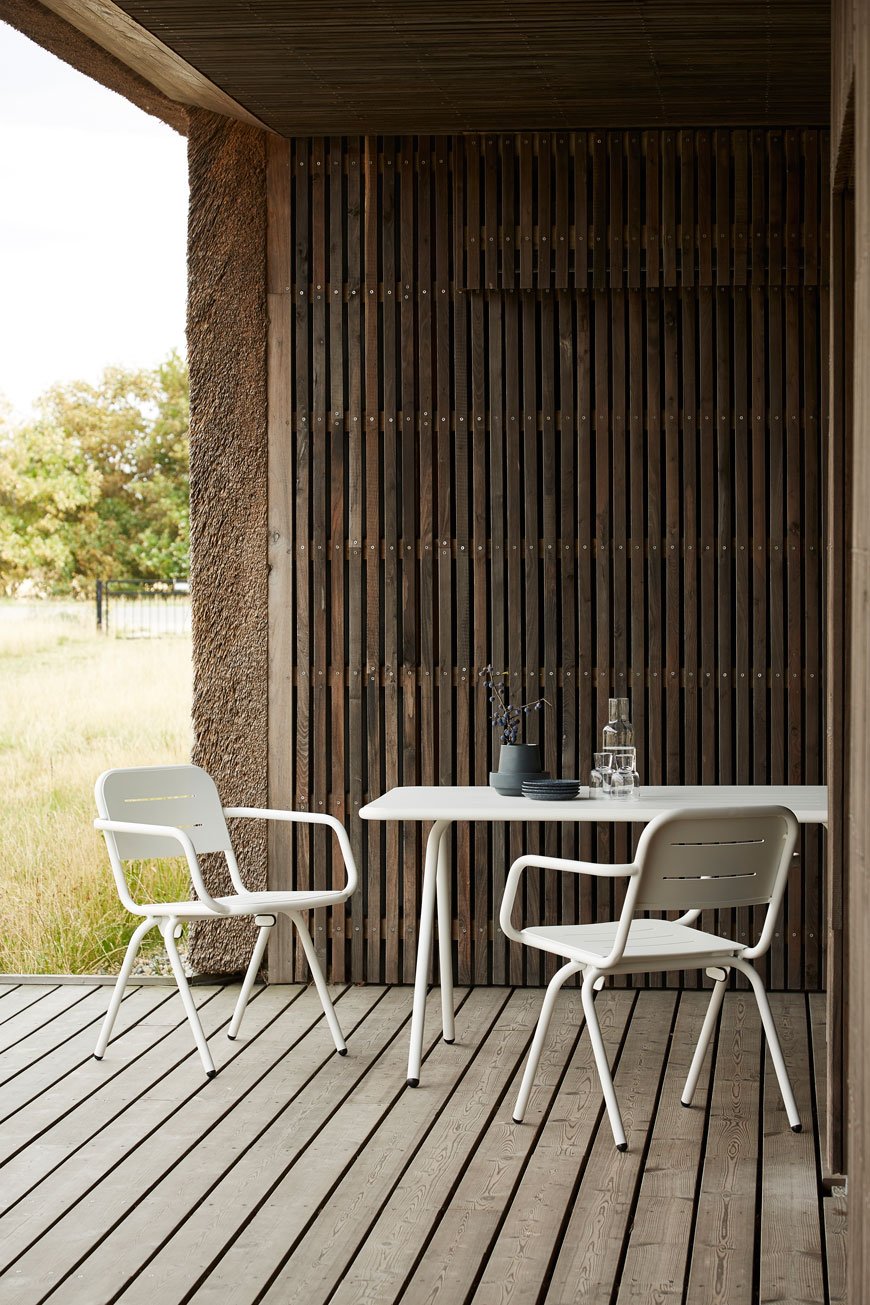 As I recently featured the indoor side of Danish brand Woud's collection, it made sense to explore their outdoor furniture here.Designed by Fasting & Rolff, the Ray collection is a light and modern interpretation of French cafe furniture. Made from aluminium with steel inside the tubes to give it weight, it also comes in a light blue and rose pink (though obviously, I'm more partial to the black and white!) Its minimal curves bring a contemporary feel to any garden and grooves in the seat cast playful shadows underneath. You can also choose to include armrests on the Ray Chair and Bench too which in my eyes makes it a striking and versatile collection for a modern Scandi garden space.
As I recently featured the indoor side of Danish brand Woud's collection, it made sense to explore their outdoor furniture here.Designed by Fasting & Rolff, the Ray collection is a light and modern interpretation of French cafe furniture. Made from aluminium with steel inside the tubes to give it weight, it also comes in a light blue and rose pink (though obviously, I'm more partial to the black and white!) Its minimal curves bring a contemporary feel to any garden and grooves in the seat cast playful shadows underneath. You can also choose to include armrests on the Ray Chair and Bench too which in my eyes makes it a striking and versatile collection for a modern Scandi garden space.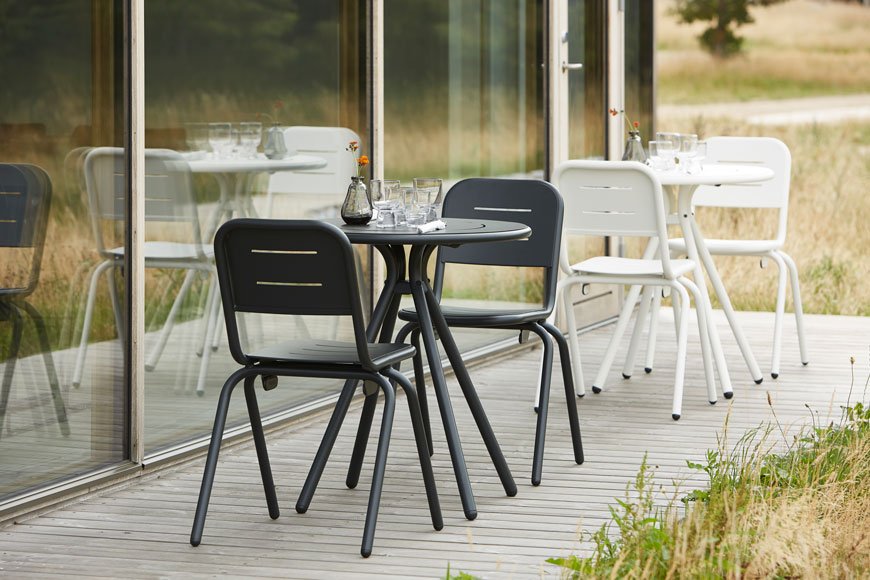
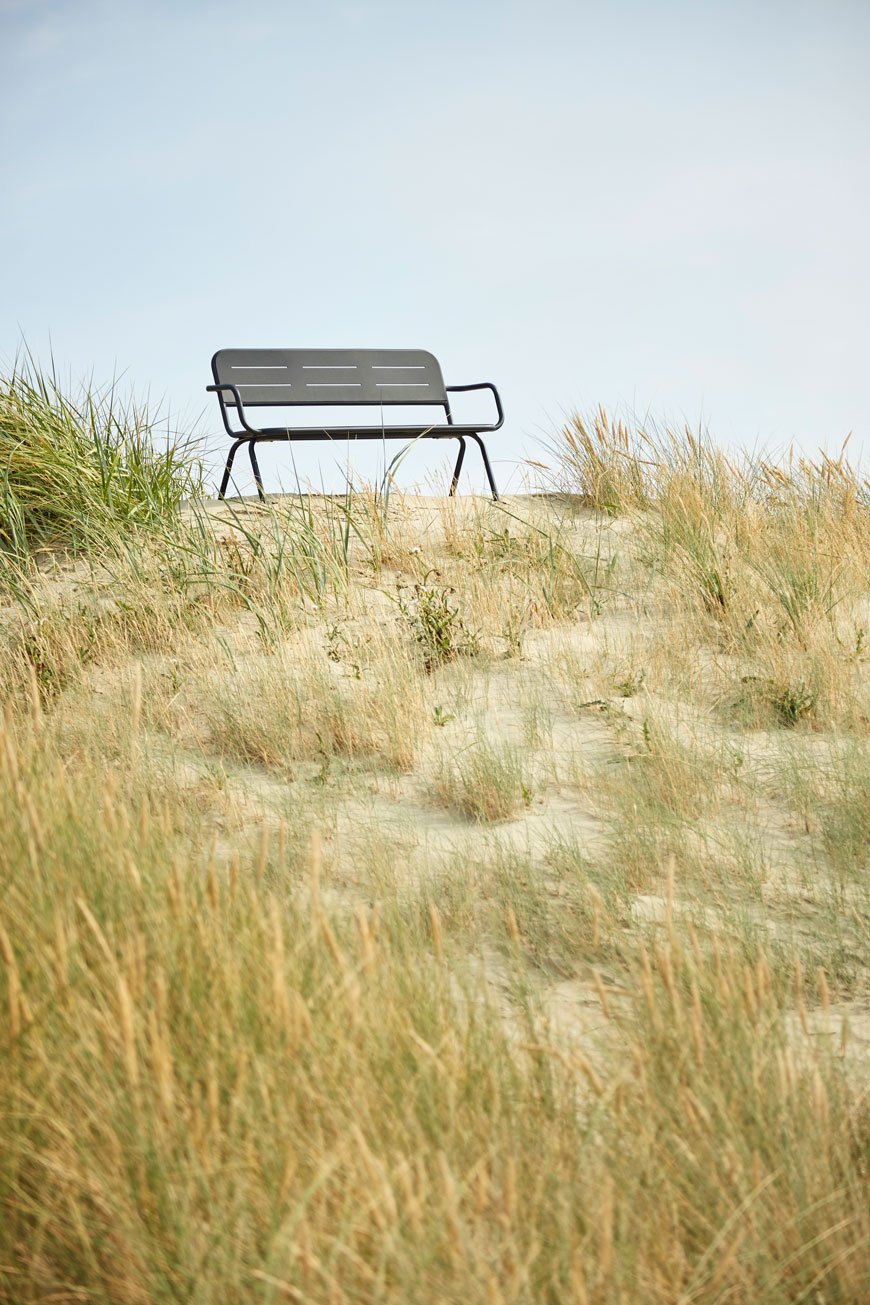
Garden Trading
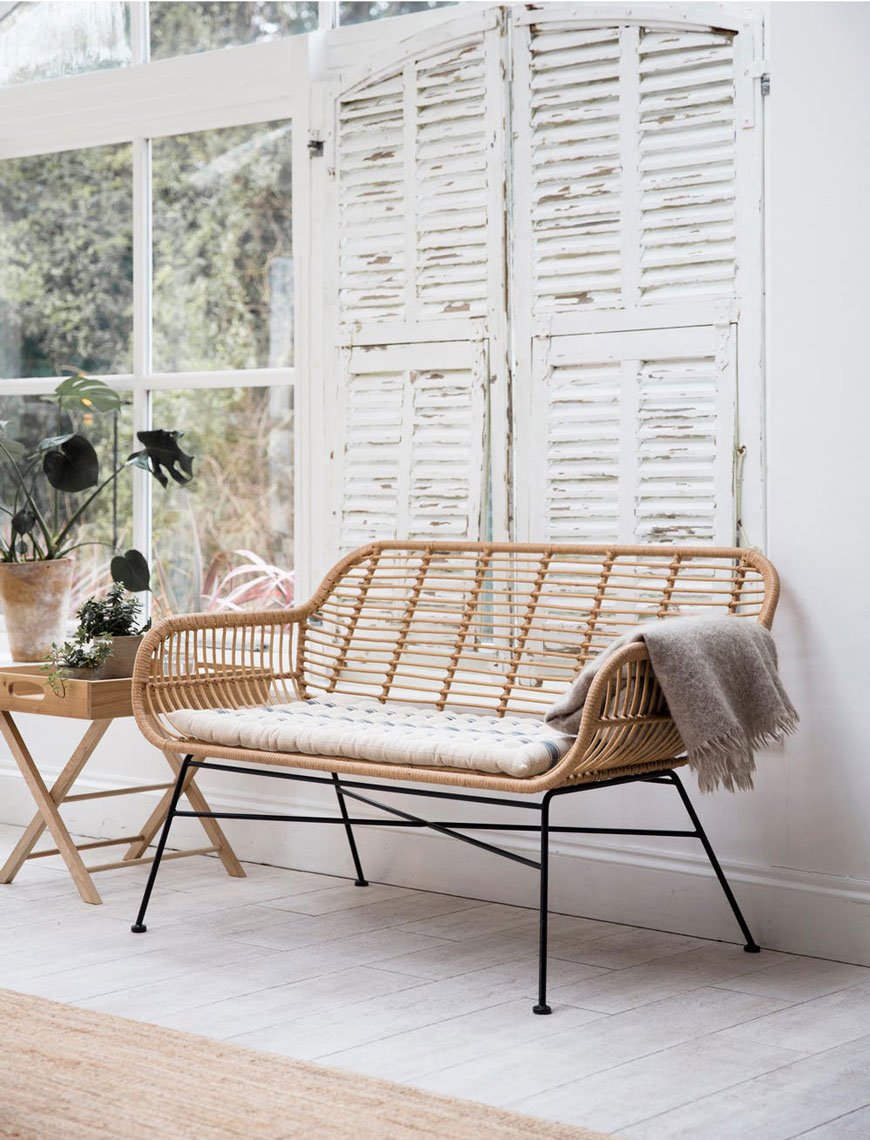 You can always rely on Garden Trading for classic accessories for the garden. Although I'm familiar with their artisanal planters and tools, this is the first time I've sat up and taken note of their outdoor collection. And there are some real gems. Natural, sustainable materials such as cane and bamboo always look at home in the garden and the organic shape of the Hampstead bench is no exception. Made from woven, all-weather bamboo on a powder coated steel frame it would steal the show in a sunroom or as a focal point in your garden.
You can always rely on Garden Trading for classic accessories for the garden. Although I'm familiar with their artisanal planters and tools, this is the first time I've sat up and taken note of their outdoor collection. And there are some real gems. Natural, sustainable materials such as cane and bamboo always look at home in the garden and the organic shape of the Hampstead bench is no exception. Made from woven, all-weather bamboo on a powder coated steel frame it would steal the show in a sunroom or as a focal point in your garden.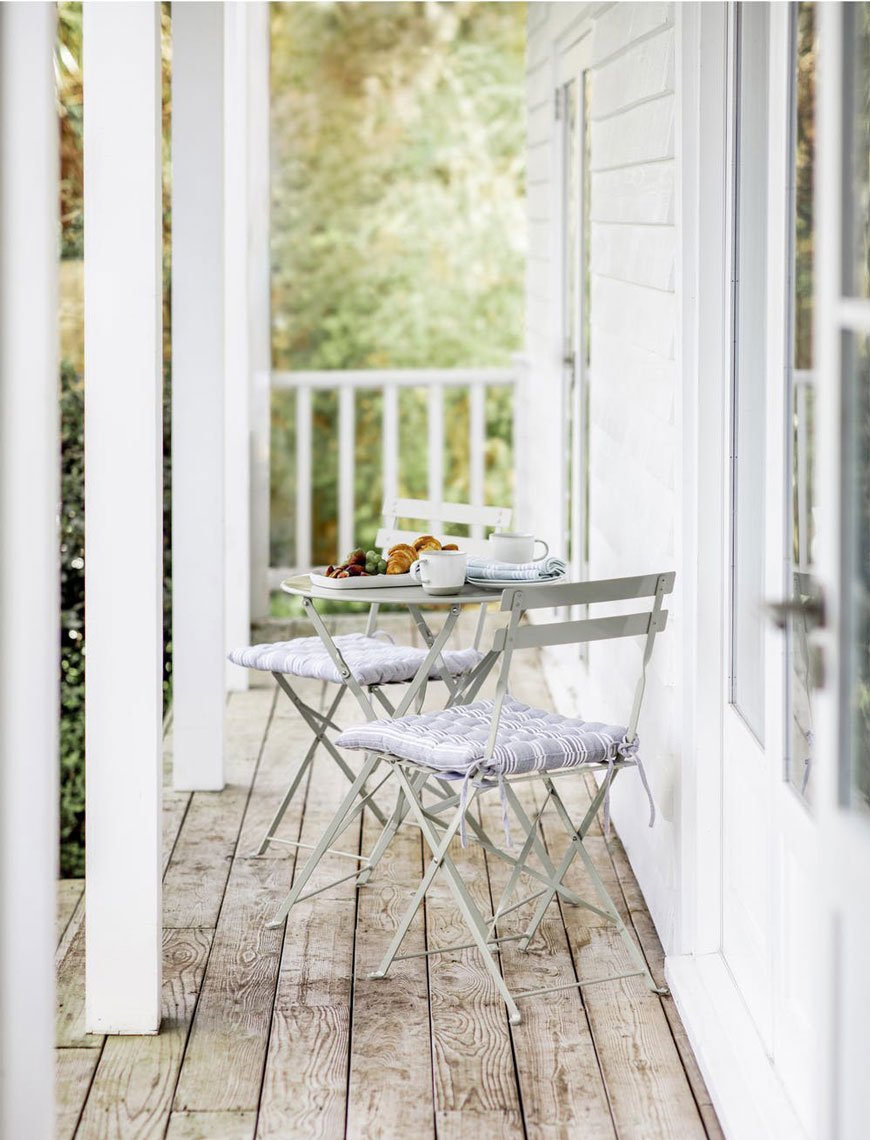 Of course, the classic choice for alfresco dining is always the bistro table and chairs and the Rive Droite comes in a selection of colours - I love the clay, of course. And below, the Thurloe chair is a stand-alone design intended to be paired with other furniture. The matt dark grey and sleek armrests give it a contemporary look that also lends itself to a more rustic style.
Of course, the classic choice for alfresco dining is always the bistro table and chairs and the Rive Droite comes in a selection of colours - I love the clay, of course. And below, the Thurloe chair is a stand-alone design intended to be paired with other furniture. The matt dark grey and sleek armrests give it a contemporary look that also lends itself to a more rustic style.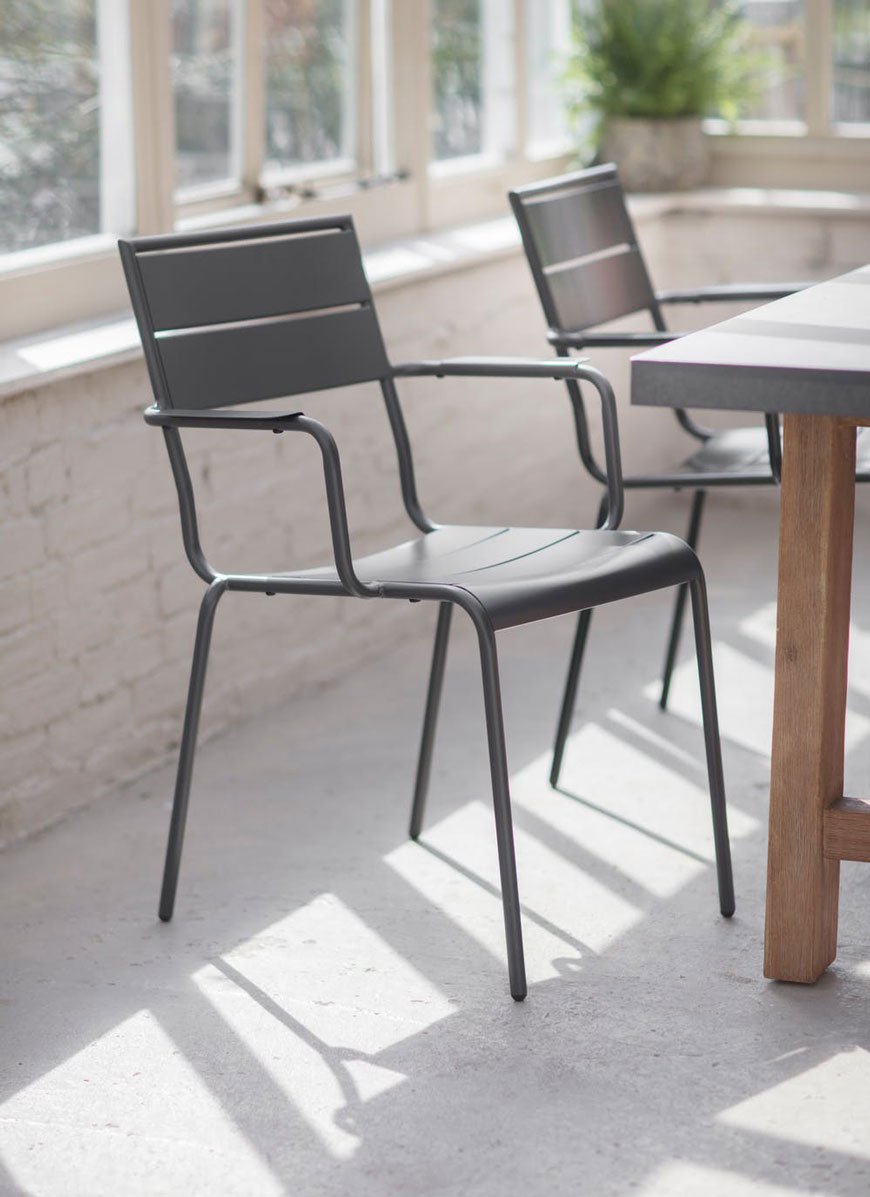
Skagerak
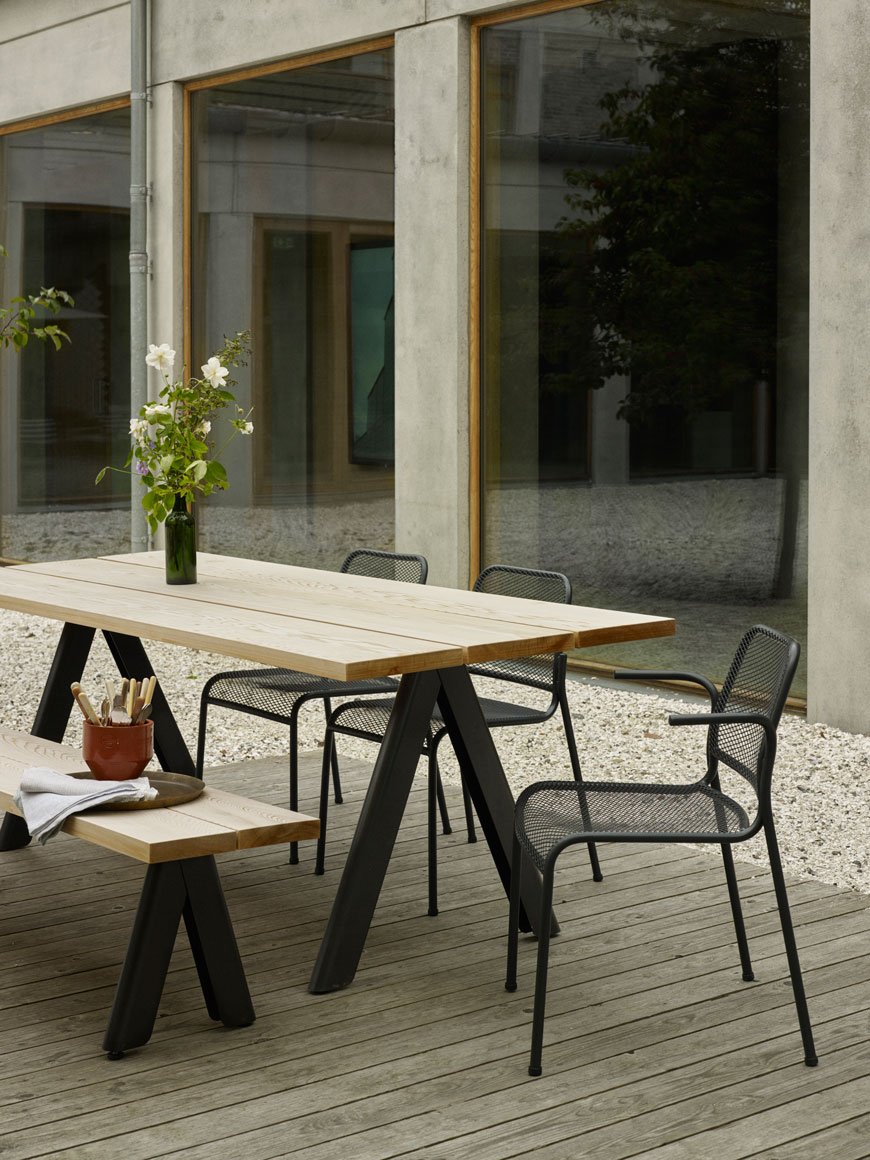 Marrying quintessential Scandinavian style with contemporary materials, Skagerak's collection of garden furniture is vast. Literally, so many choices and they all compliment each other effortlessly. Freshen up your space with smaller details like the terracotta Edge pots or a By Your Side table. Play with a classic Overlap wooden table with meshed metal Mira chairs. Kick back in the high-backed Between Lines deck chair or seat the whole clan on the Tradition modular sofa. For smaller gardens, courtyards or balconies, the collection also includes foldable tables, stackable stools and Oeko-Tex certified outdoor cushions. I'll take the lot!
Marrying quintessential Scandinavian style with contemporary materials, Skagerak's collection of garden furniture is vast. Literally, so many choices and they all compliment each other effortlessly. Freshen up your space with smaller details like the terracotta Edge pots or a By Your Side table. Play with a classic Overlap wooden table with meshed metal Mira chairs. Kick back in the high-backed Between Lines deck chair or seat the whole clan on the Tradition modular sofa. For smaller gardens, courtyards or balconies, the collection also includes foldable tables, stackable stools and Oeko-Tex certified outdoor cushions. I'll take the lot!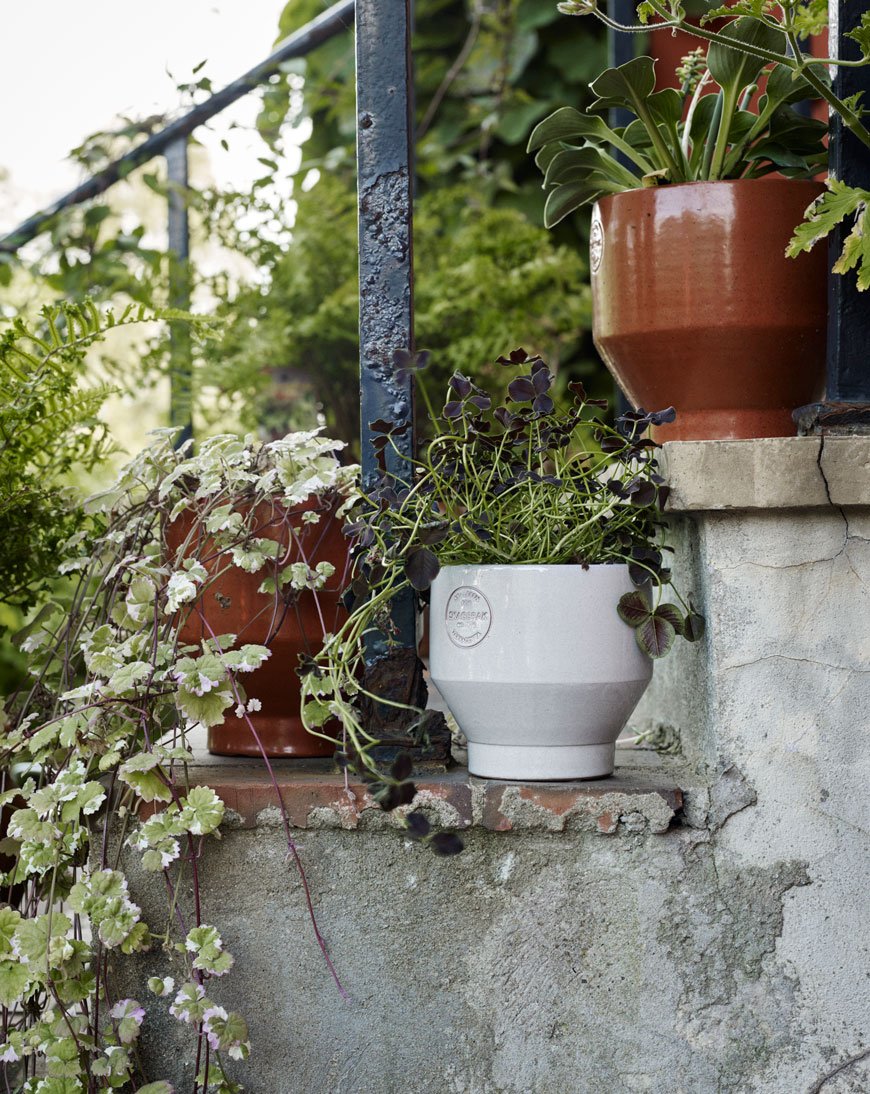
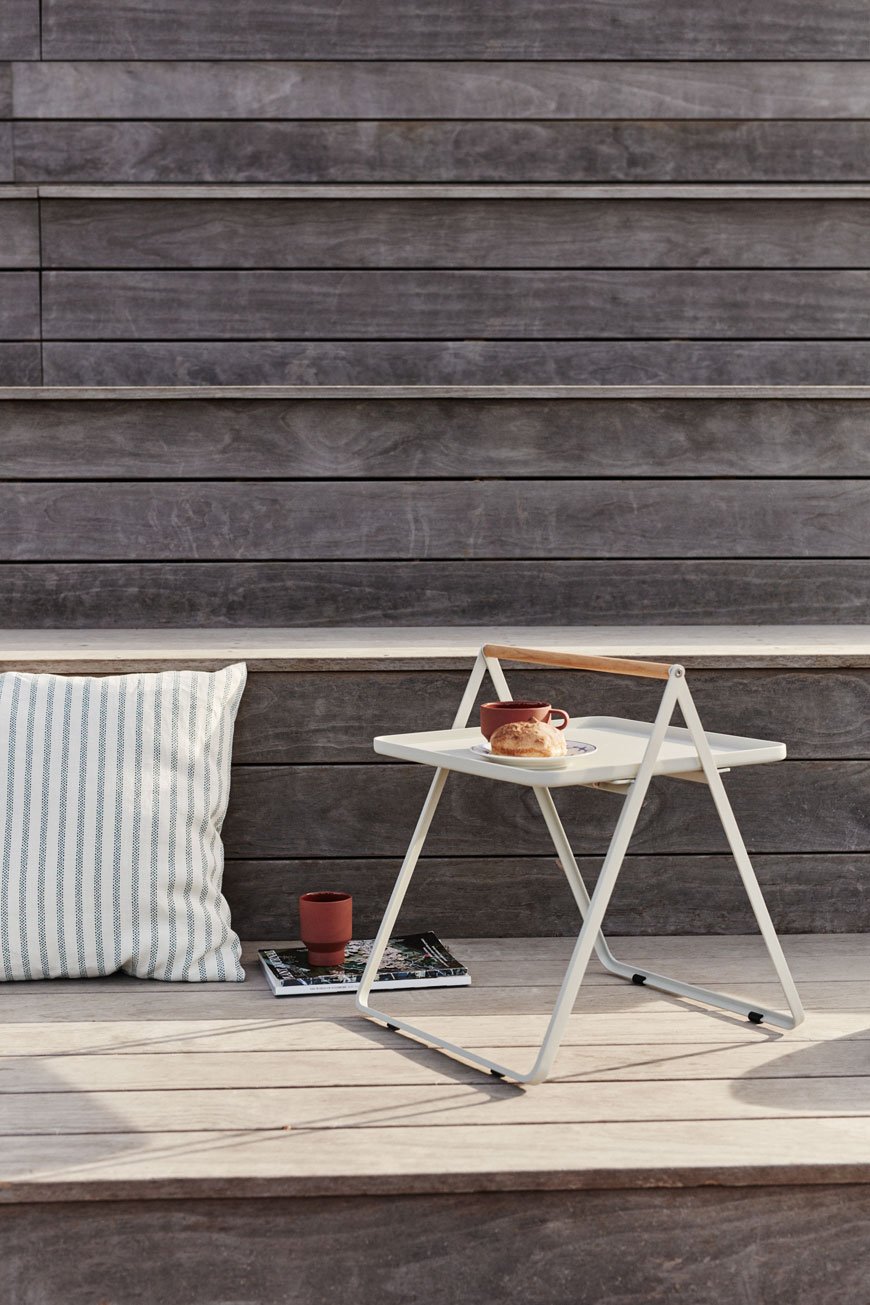
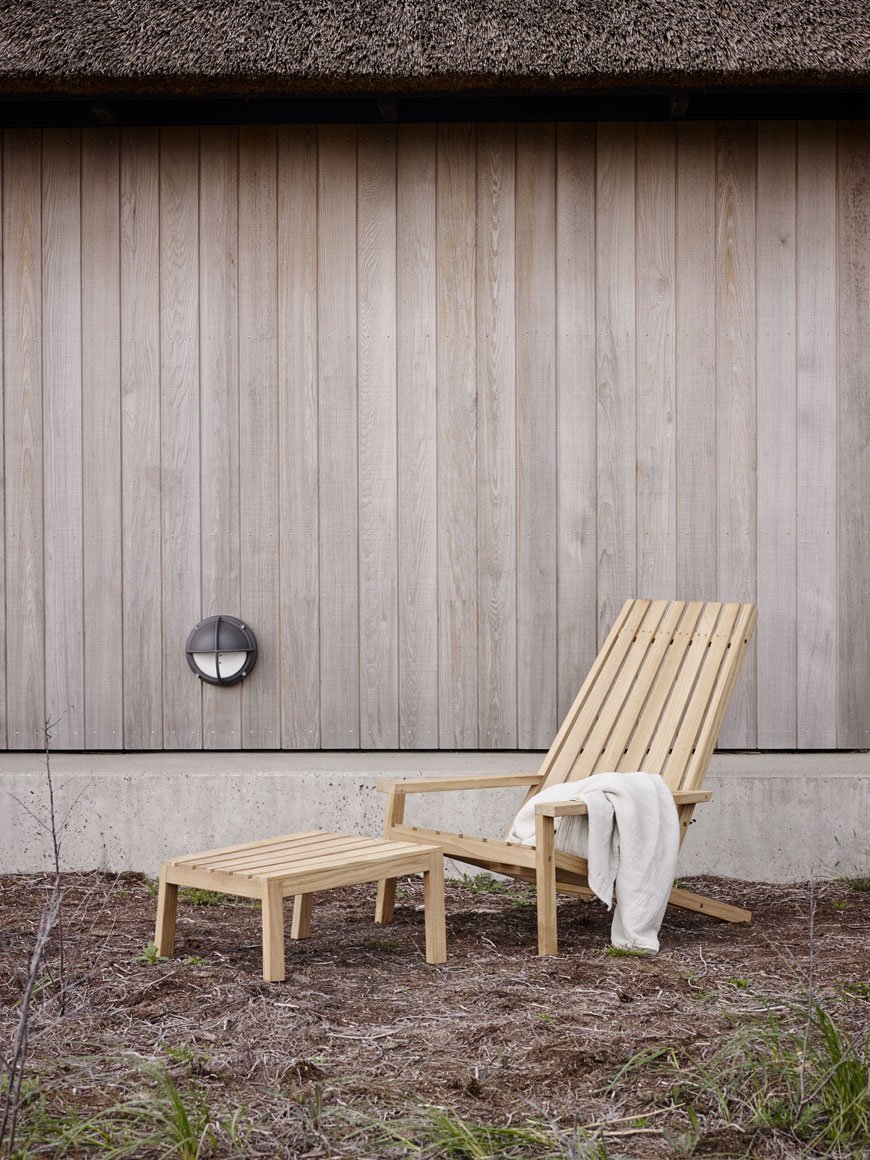
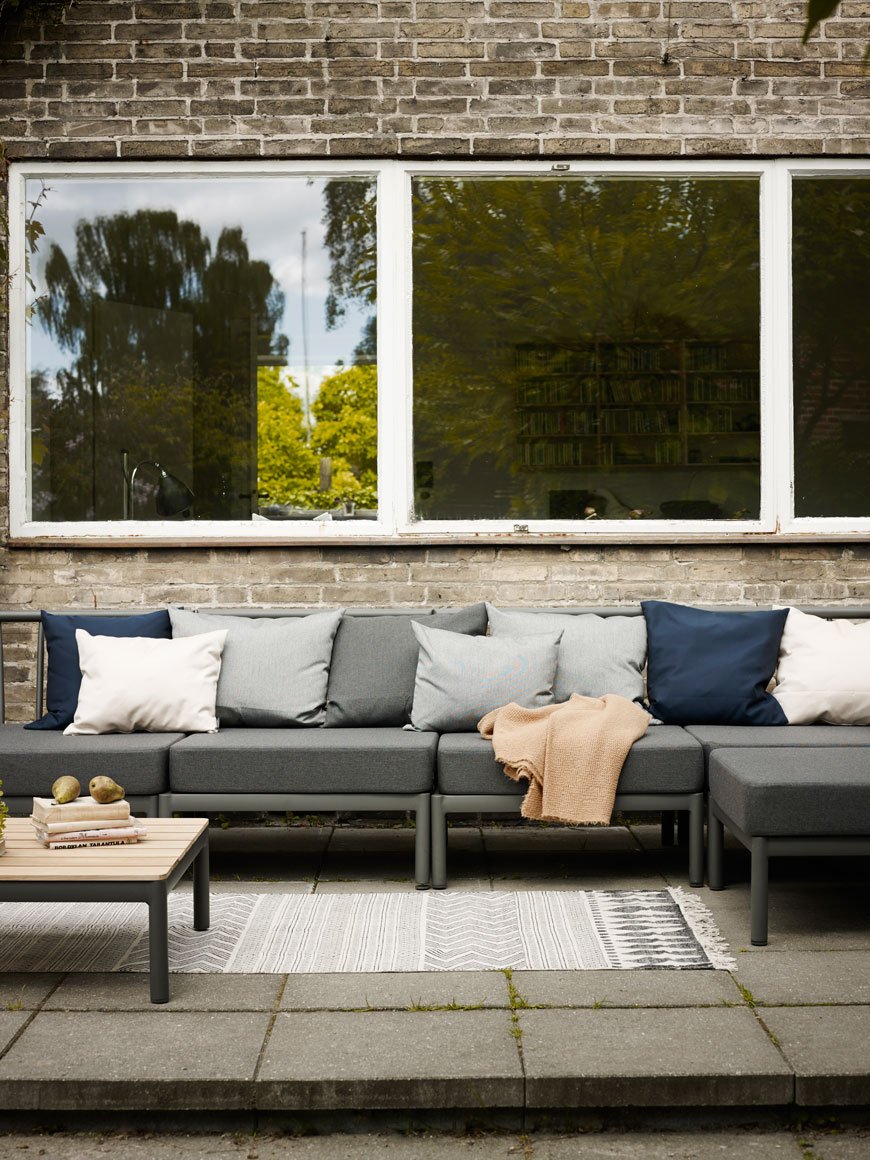
Mater
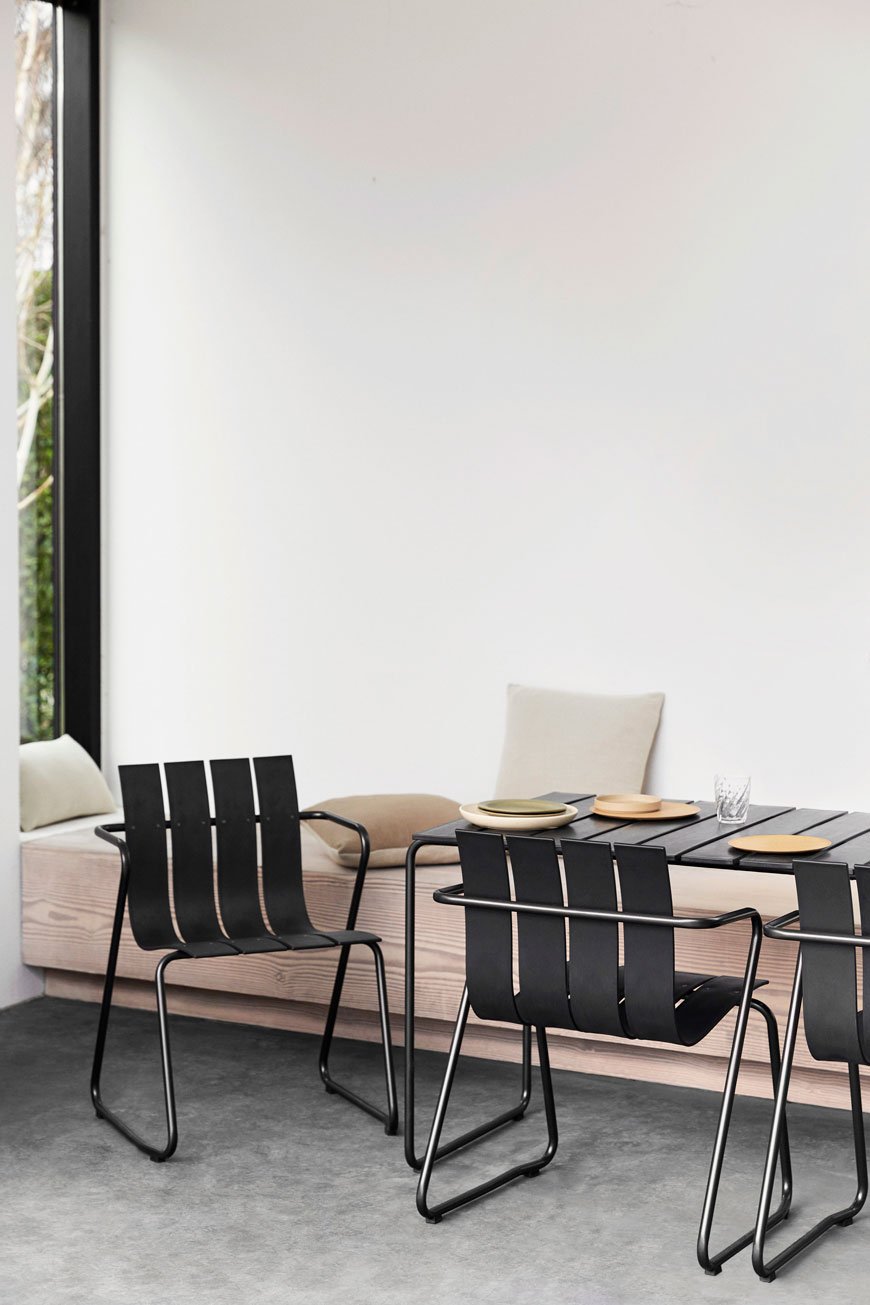 You know how much I love and support Mater in their endeavours to change the landscape of sustainable design. Founded with the environment in mind from the very beginning, this Danish brand focuses on circular design instead of throwing a piece away when it reaches the end of its life. All the components can be separated and recycled if and when the time comes.In what I think is their first foray into outdoor furniture, the Ocean collection reuses 960g of ocean plastic per chair. Although it looks wholly contemporary, the original model was actually designed in 1955 by Danish designer Nanna Ditzel. This updated, eco-conscious version also includes a table made from the same moulded plastic slats with a steel frame. So, not only does the Ocean collection bring long-lasting style into the garden, but it's also doing its bit by cleaning up the ocean. No wonder its winning awards!
You know how much I love and support Mater in their endeavours to change the landscape of sustainable design. Founded with the environment in mind from the very beginning, this Danish brand focuses on circular design instead of throwing a piece away when it reaches the end of its life. All the components can be separated and recycled if and when the time comes.In what I think is their first foray into outdoor furniture, the Ocean collection reuses 960g of ocean plastic per chair. Although it looks wholly contemporary, the original model was actually designed in 1955 by Danish designer Nanna Ditzel. This updated, eco-conscious version also includes a table made from the same moulded plastic slats with a steel frame. So, not only does the Ocean collection bring long-lasting style into the garden, but it's also doing its bit by cleaning up the ocean. No wonder its winning awards!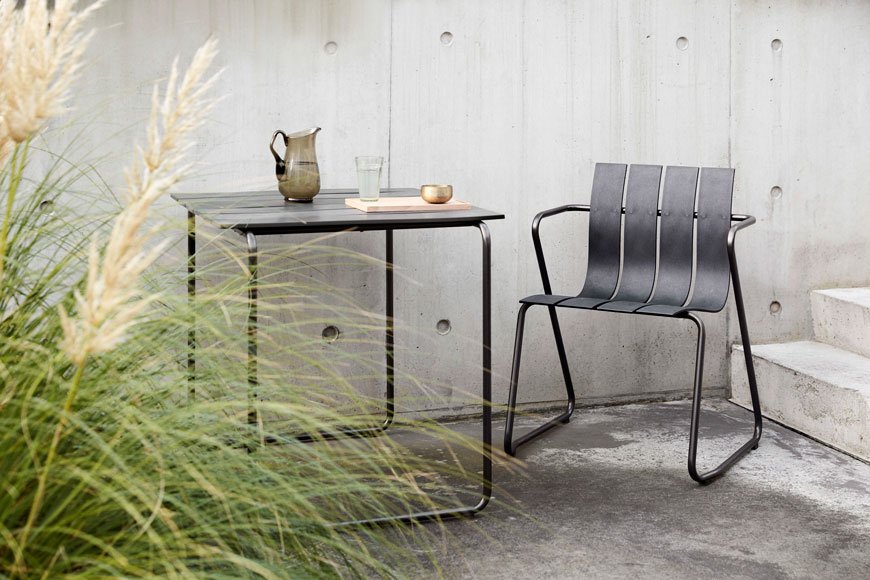
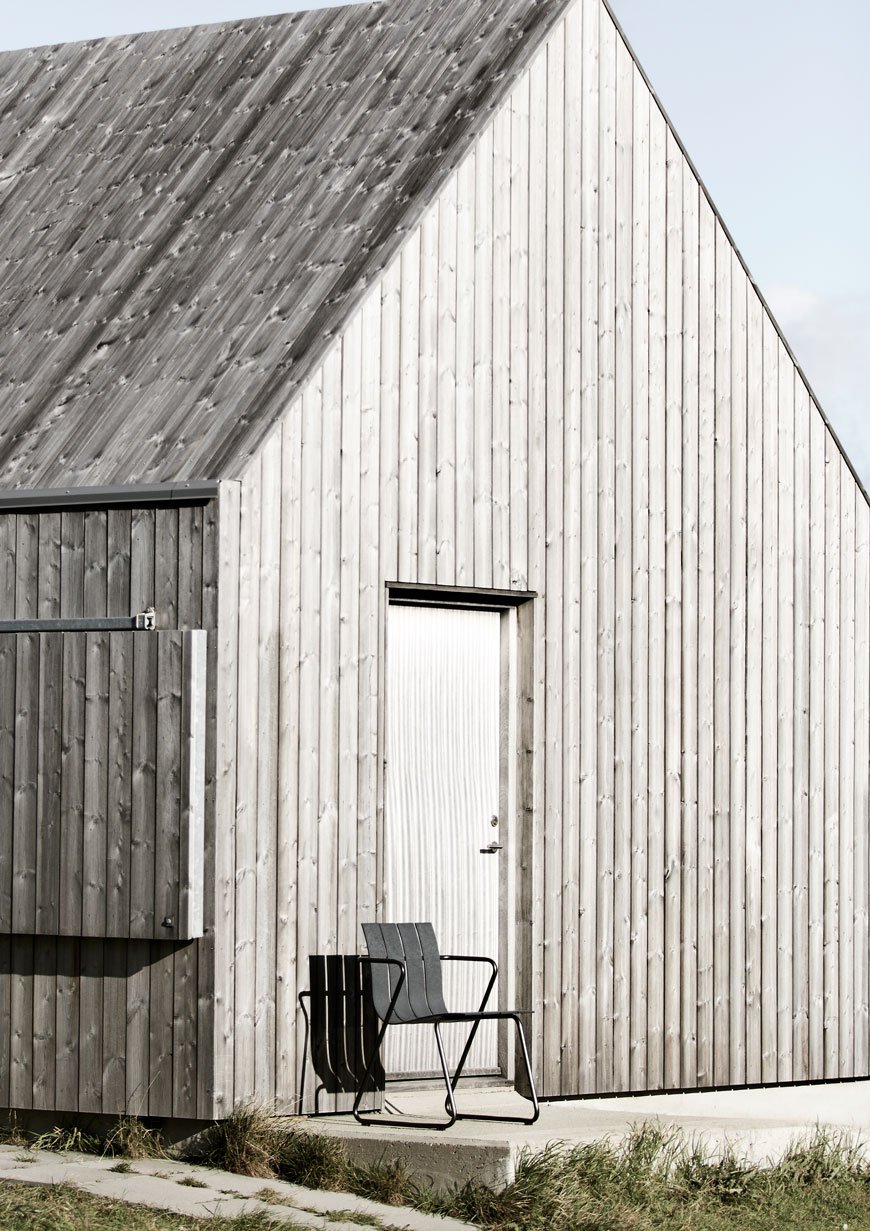
Spring Details In My Black and White Garden
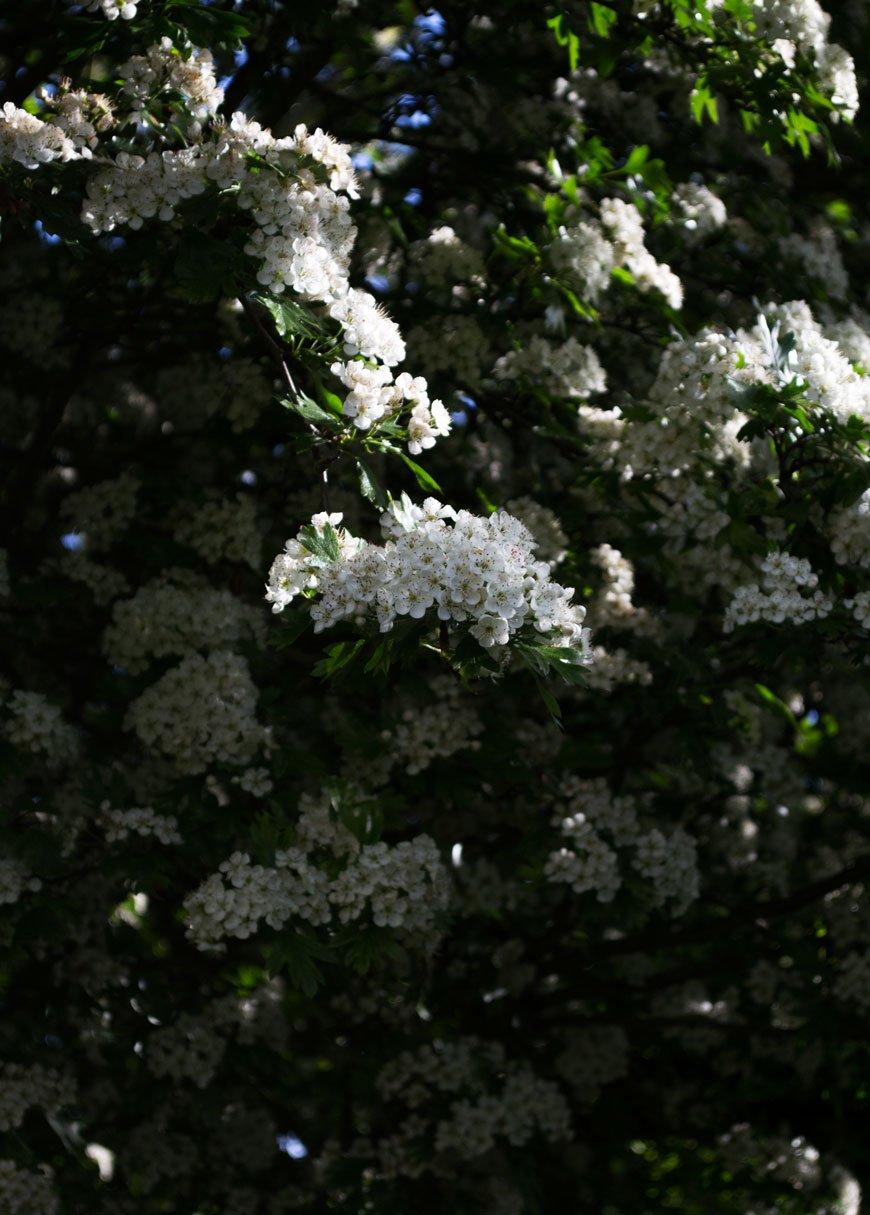 I don't share enough of our black and white garden here - strange considering I'm almost more invested in it than our home renovations!After days of on-off torrential rain, there came a break on Friday. Enough to see the light pick up the intense new-green in the leaves and watch beads of water balance precariously on petals. Quick off the mark to grab my camera, I shot some details before the weather changed direction again.
I don't share enough of our black and white garden here - strange considering I'm almost more invested in it than our home renovations!After days of on-off torrential rain, there came a break on Friday. Enough to see the light pick up the intense new-green in the leaves and watch beads of water balance precariously on petals. Quick off the mark to grab my camera, I shot some details before the weather changed direction again.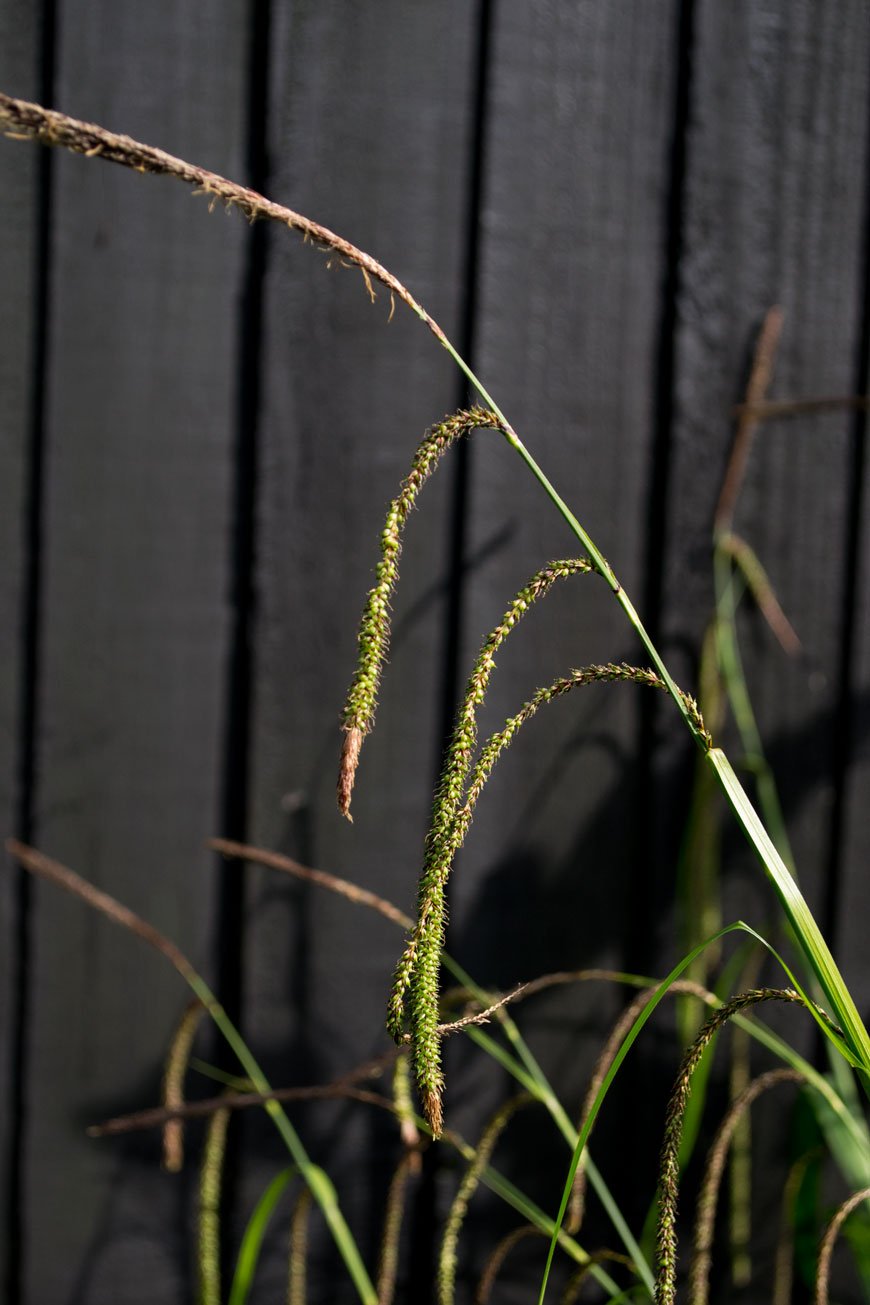
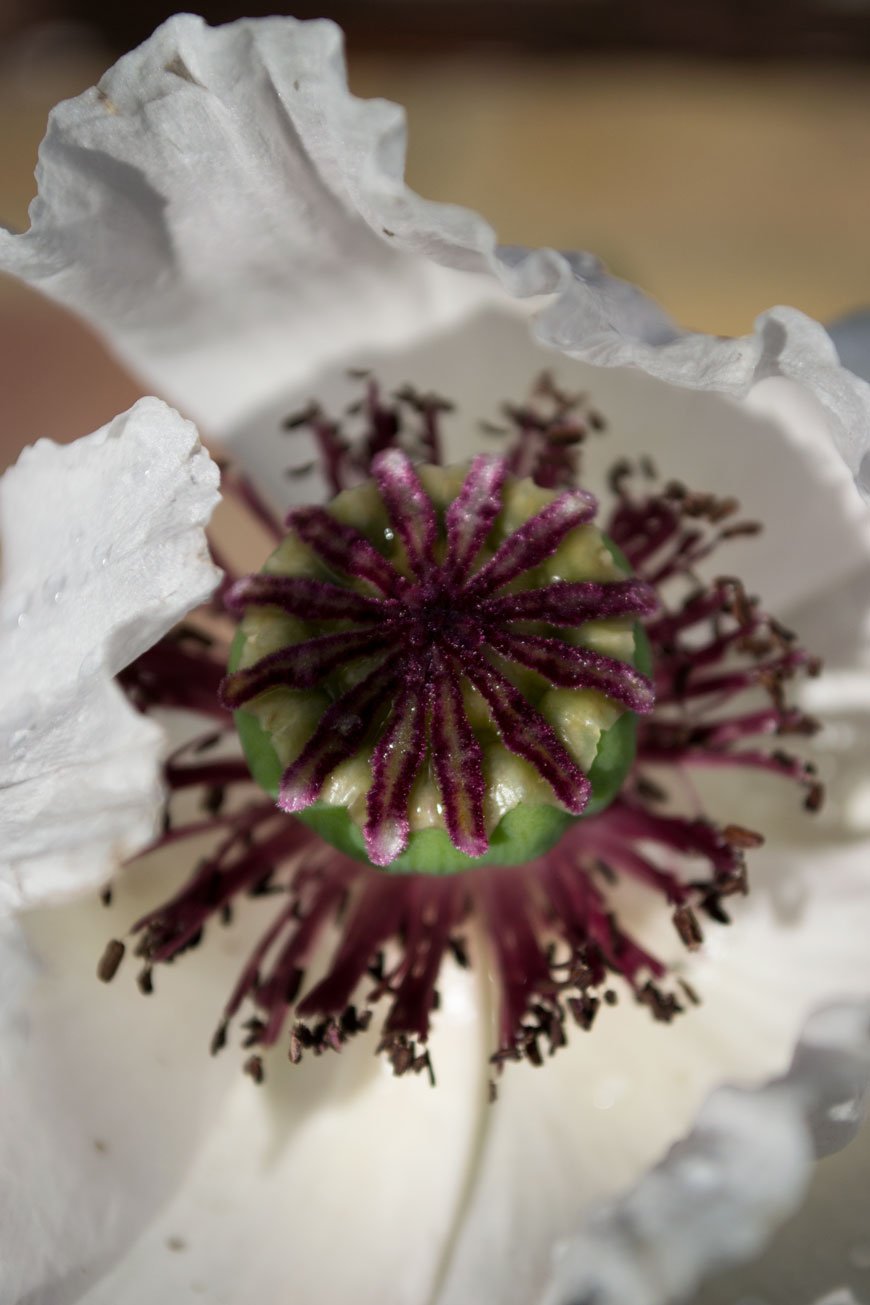
 I didn't quite finish painting the fences last year, so I've been cracking on at any available opportunity. They were originally a scruffy green so I chose black to make them almost disappear. I've used Ronseal's Duck's Back and 5L tins are about £10 from B&Q at the moment. The black gives the plants a more contemporary backdrop as they change throughout the year. Far more striking, don't you think?The current layout is very typical of a terraced garden - think long stretch of lawn and borders around the edge. Nothing wrong with that, but you know me, I like to mix it up. Eventually, I'm envisaging a mostly white garden with a mix of prairie and tropical planting. A total oxymoron, I know, but I just love a lush mix of large scale, architectural foliage mixed in with delicate flowers and wispy grasses. I'm hugely inspired by Beth Chatto's dry garden which was created entirely from drought loving plants. Really worth a visit. I also really fell in love with the LAND collaboration at London Design Week last year. Ultimately, the plan is to reduce the amount of lawn, get in some hard landscaping and break up the linear, traditional layout.We've no plans for any major groundwork this year as the hallway is literally sucking the lives out of us but I'd love to know if you'd like to see more from our garden later in the year? Are you taking on any major gardening projects?
I didn't quite finish painting the fences last year, so I've been cracking on at any available opportunity. They were originally a scruffy green so I chose black to make them almost disappear. I've used Ronseal's Duck's Back and 5L tins are about £10 from B&Q at the moment. The black gives the plants a more contemporary backdrop as they change throughout the year. Far more striking, don't you think?The current layout is very typical of a terraced garden - think long stretch of lawn and borders around the edge. Nothing wrong with that, but you know me, I like to mix it up. Eventually, I'm envisaging a mostly white garden with a mix of prairie and tropical planting. A total oxymoron, I know, but I just love a lush mix of large scale, architectural foliage mixed in with delicate flowers and wispy grasses. I'm hugely inspired by Beth Chatto's dry garden which was created entirely from drought loving plants. Really worth a visit. I also really fell in love with the LAND collaboration at London Design Week last year. Ultimately, the plan is to reduce the amount of lawn, get in some hard landscaping and break up the linear, traditional layout.We've no plans for any major groundwork this year as the hallway is literally sucking the lives out of us but I'd love to know if you'd like to see more from our garden later in the year? Are you taking on any major gardening projects?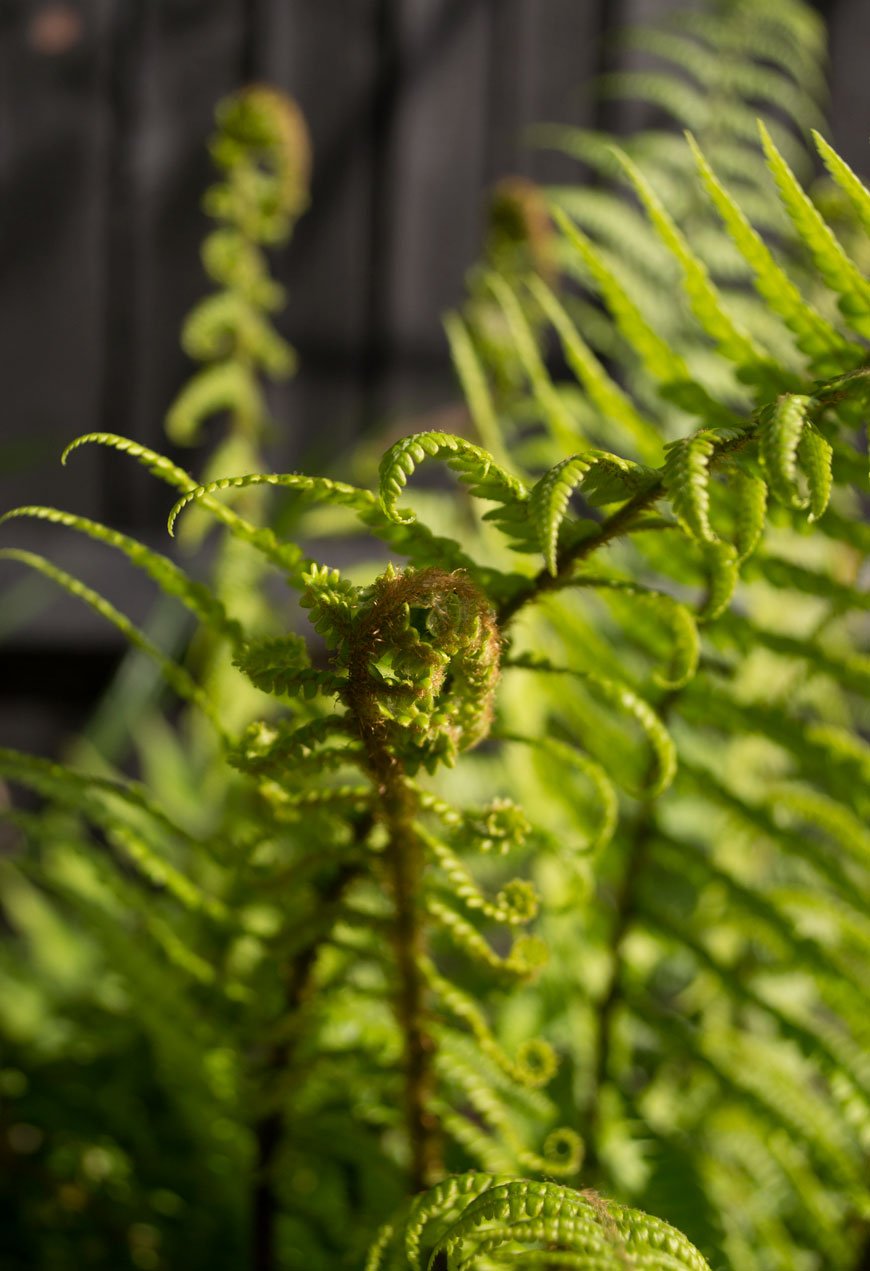
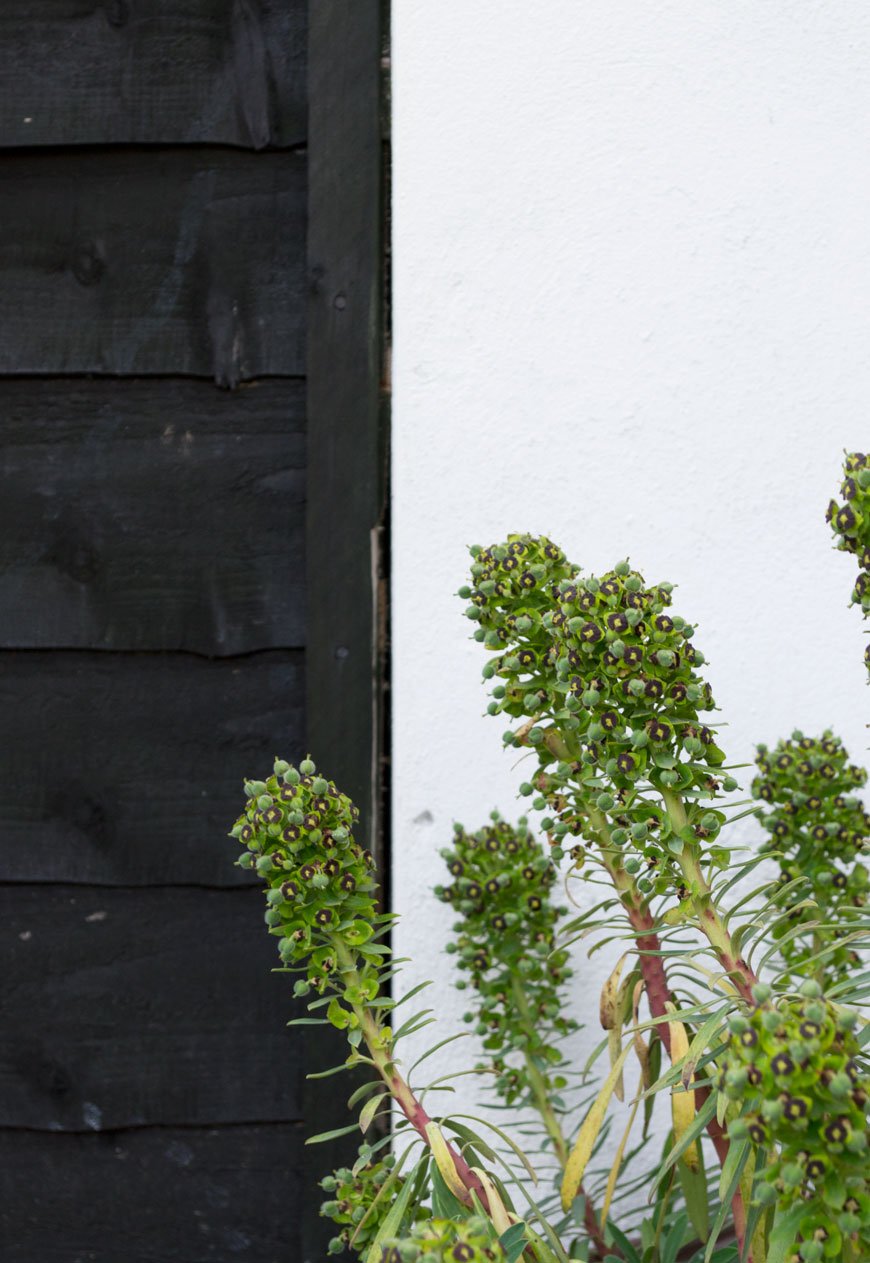
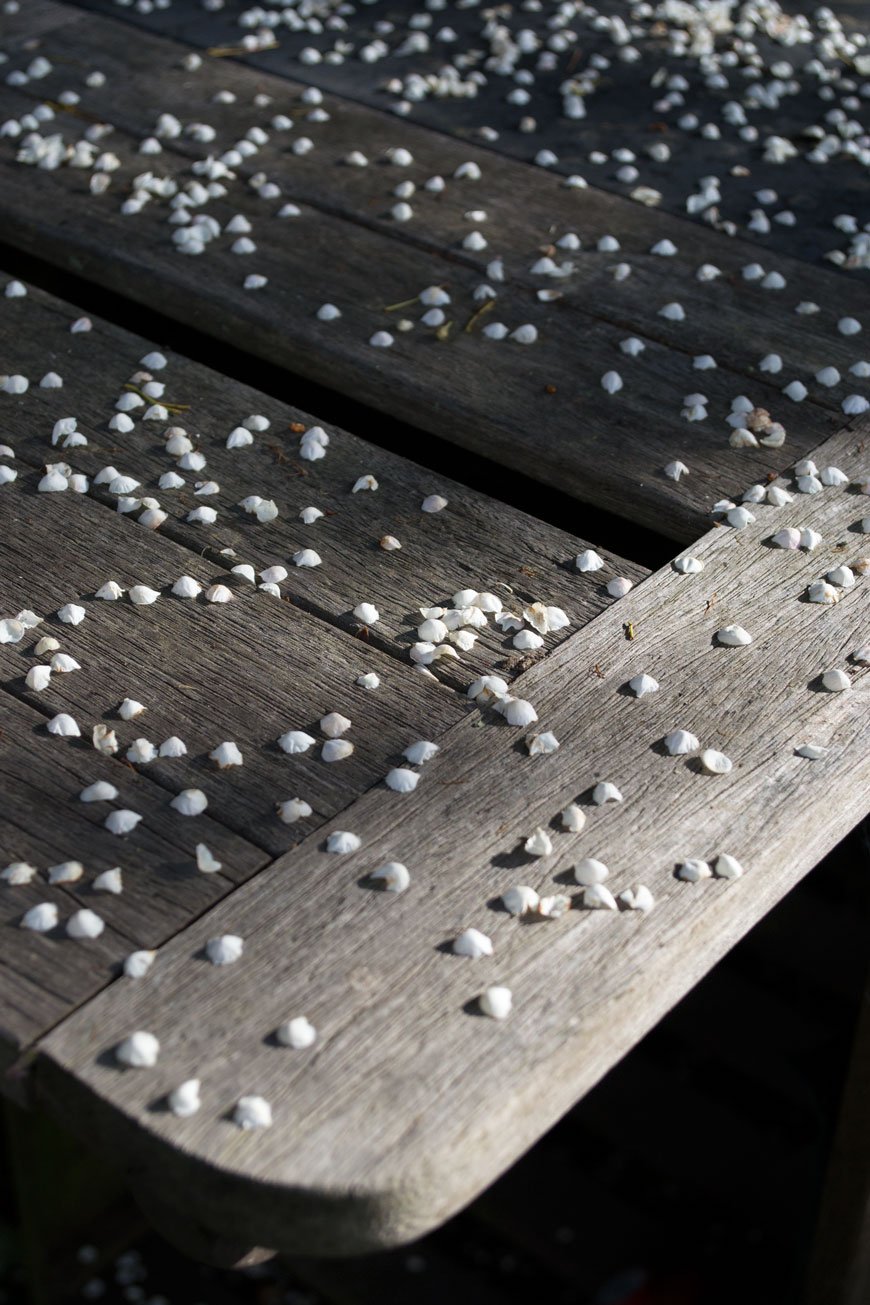
Photography © Tiffany Grant-Riley.
Plant Heaven At Botanical Gardens Meise
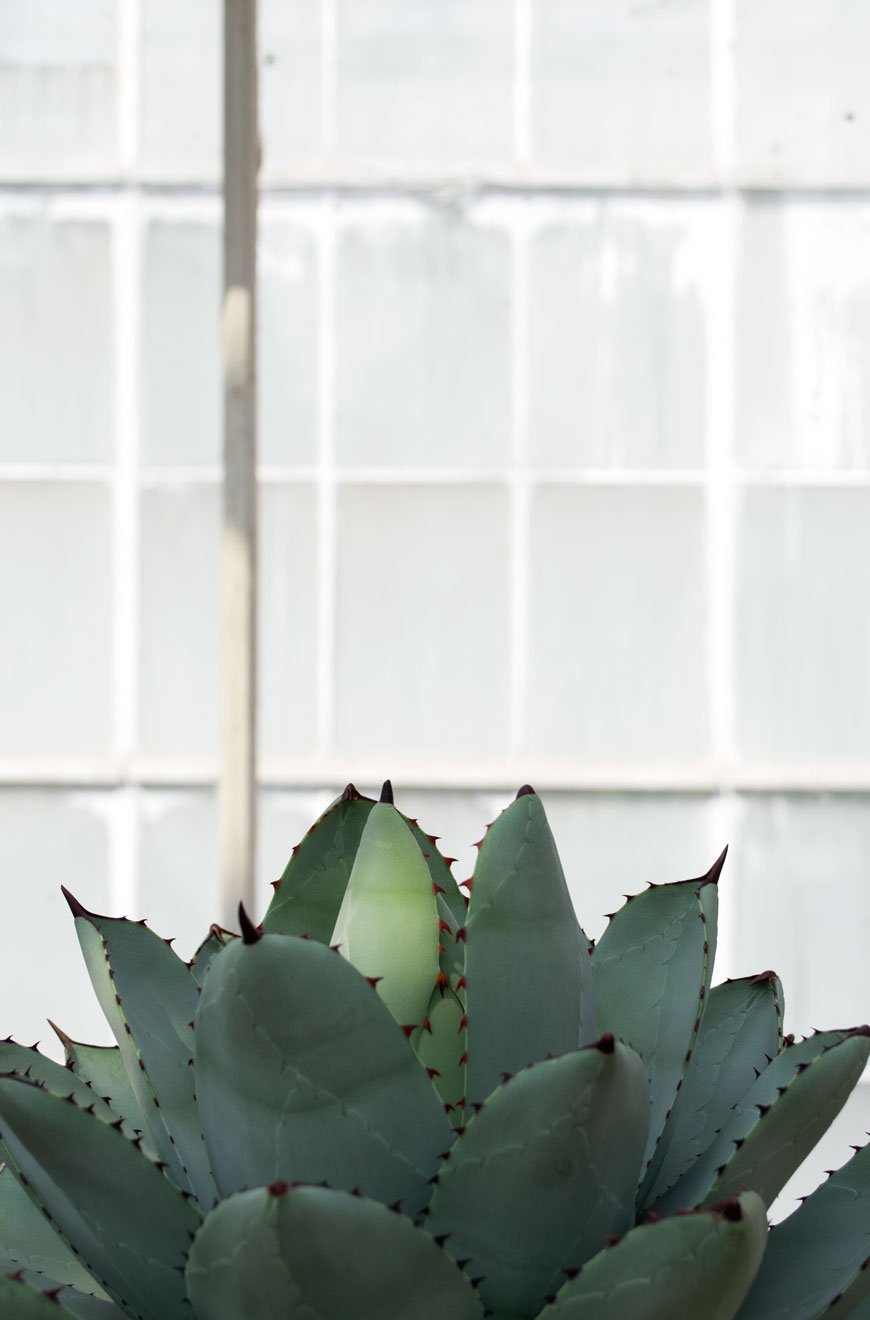 I'm doing my best to channel all of the calm this week, which marks the launch of London Design Week 2018 (yaaaaasssss!) and my daughter's 5th birthday. It's about to get crazy busy. As this is the first LDF I'm covering for more than one day of events, it means there's some serious design coming your way next week.Today, though, I'm transporting you to the Botanical Gardens Meise. For our family break this summer, we decided to explore the city we've been to many times but only in passing through. The city is fairly compact and we were surprised at just how much there was to do which wasn't remotely touristy. Ok, we did visit the Atomium (the one touristy thing we did all week) but it was worth being herded around for the history of the architecture.Obsessed plant lady that I am, I was determined to visit at least one tropical garden over the summer and although Royal Greenhouses of Laeken were closed, we made it to Meise on a sweltering afternoon. Thankfully, gardens are the one place kids generally don't get bored with as long as there's space to run around so I was happy to disguise a totally selfish trip with something fun for the kids. Ha.With a history dating back to 1796, the botanical gardens house more than 18,000 species of plant, including 13 separate environments within the plant palace. Just 20 minutes outside of Brussels by bus, the gardens feature one of the most stunning glasshouses I've ever been in. And I don't say that lightly. I honestly began to well up with the sheer enormity of it all when I stepped through those sliding doors. The heat, the humidity, the quiet. Just wandering aimlessly, gazing up at banana and palm trees which would dwarf our house in height. Giant lily pads strong enough to support a baby (and they have!) Cacti standing like resplendent sculptures. I could go on but instead, I'll let the photography do the talking. And if you ever find yourself in Brussels, make a little effort to seek house Plantentuin Meise. You simply must.
I'm doing my best to channel all of the calm this week, which marks the launch of London Design Week 2018 (yaaaaasssss!) and my daughter's 5th birthday. It's about to get crazy busy. As this is the first LDF I'm covering for more than one day of events, it means there's some serious design coming your way next week.Today, though, I'm transporting you to the Botanical Gardens Meise. For our family break this summer, we decided to explore the city we've been to many times but only in passing through. The city is fairly compact and we were surprised at just how much there was to do which wasn't remotely touristy. Ok, we did visit the Atomium (the one touristy thing we did all week) but it was worth being herded around for the history of the architecture.Obsessed plant lady that I am, I was determined to visit at least one tropical garden over the summer and although Royal Greenhouses of Laeken were closed, we made it to Meise on a sweltering afternoon. Thankfully, gardens are the one place kids generally don't get bored with as long as there's space to run around so I was happy to disguise a totally selfish trip with something fun for the kids. Ha.With a history dating back to 1796, the botanical gardens house more than 18,000 species of plant, including 13 separate environments within the plant palace. Just 20 minutes outside of Brussels by bus, the gardens feature one of the most stunning glasshouses I've ever been in. And I don't say that lightly. I honestly began to well up with the sheer enormity of it all when I stepped through those sliding doors. The heat, the humidity, the quiet. Just wandering aimlessly, gazing up at banana and palm trees which would dwarf our house in height. Giant lily pads strong enough to support a baby (and they have!) Cacti standing like resplendent sculptures. I could go on but instead, I'll let the photography do the talking. And if you ever find yourself in Brussels, make a little effort to seek house Plantentuin Meise. You simply must.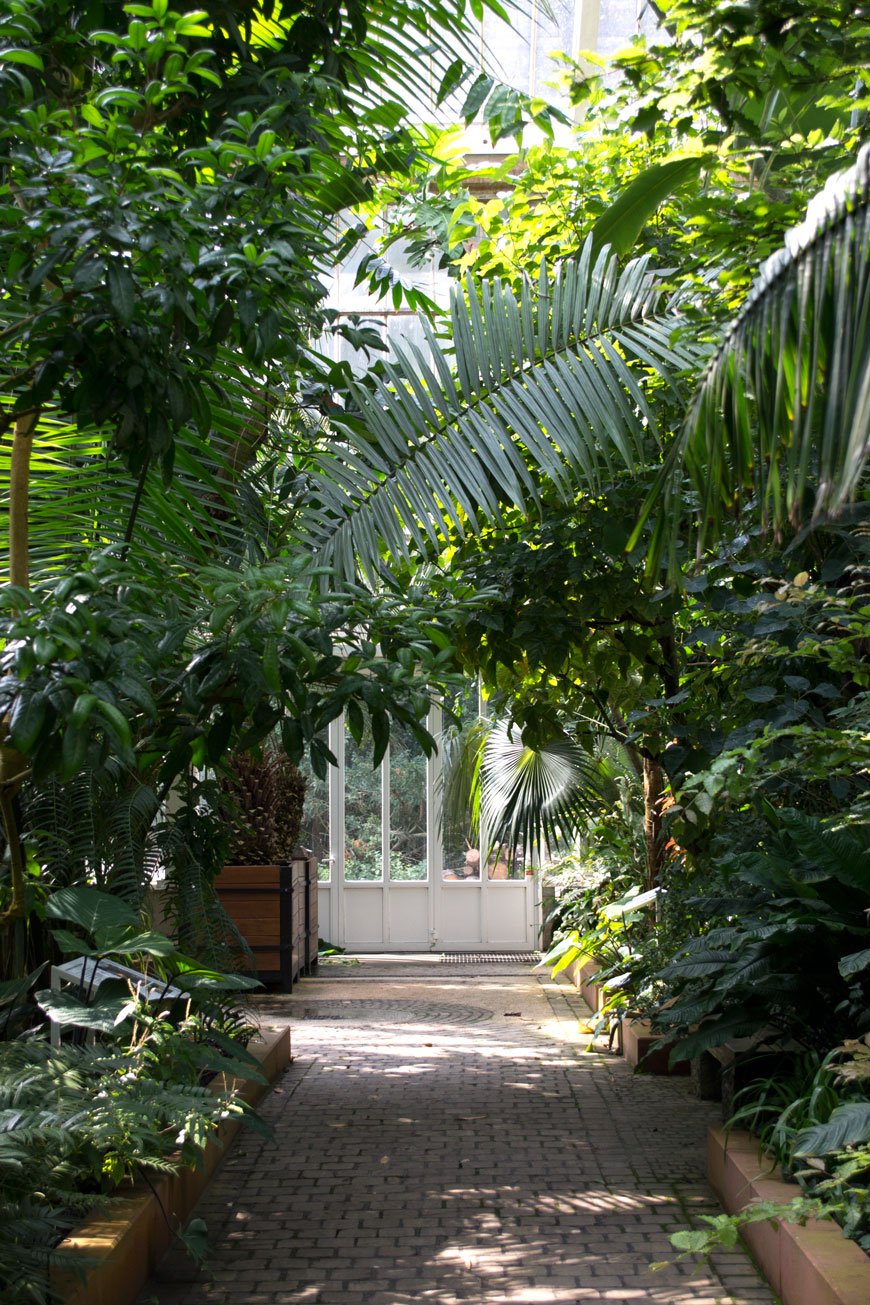
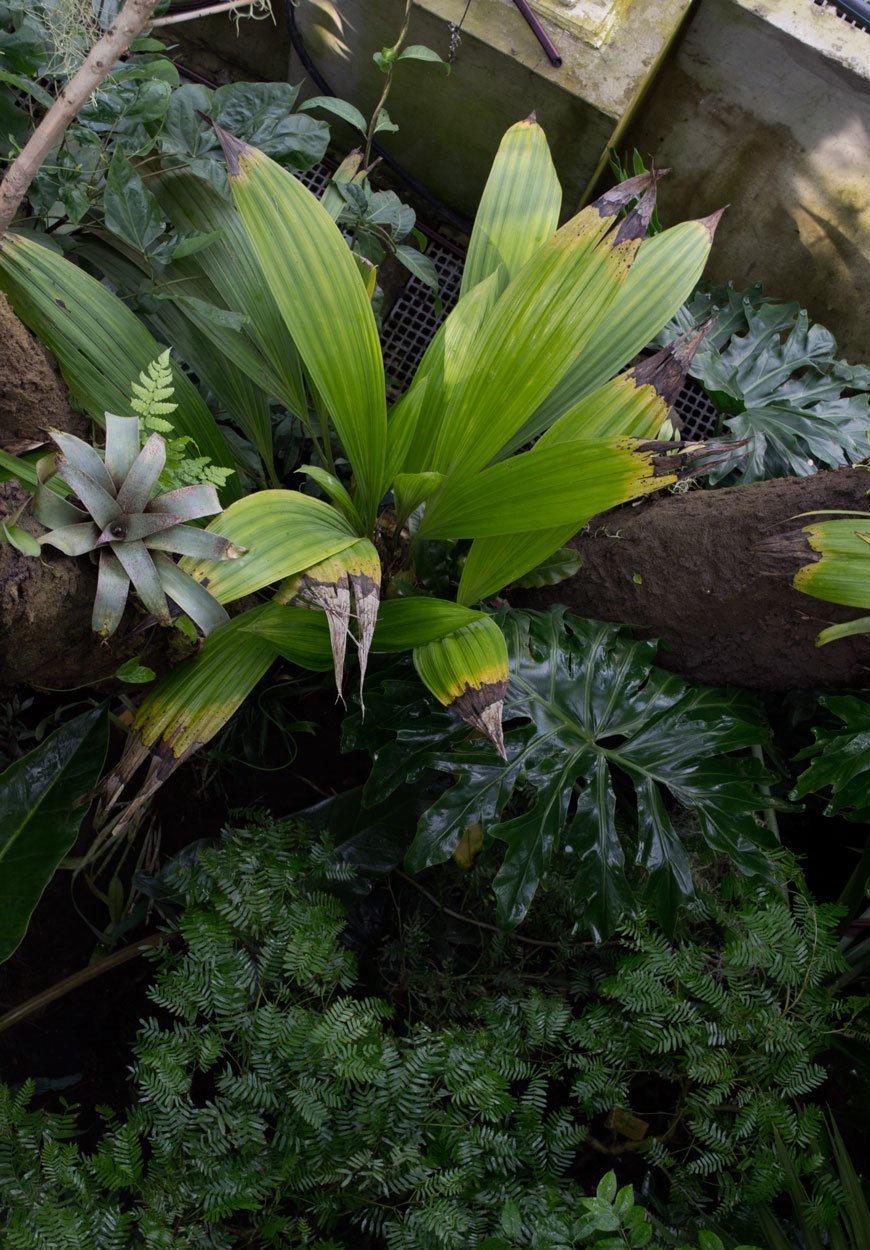
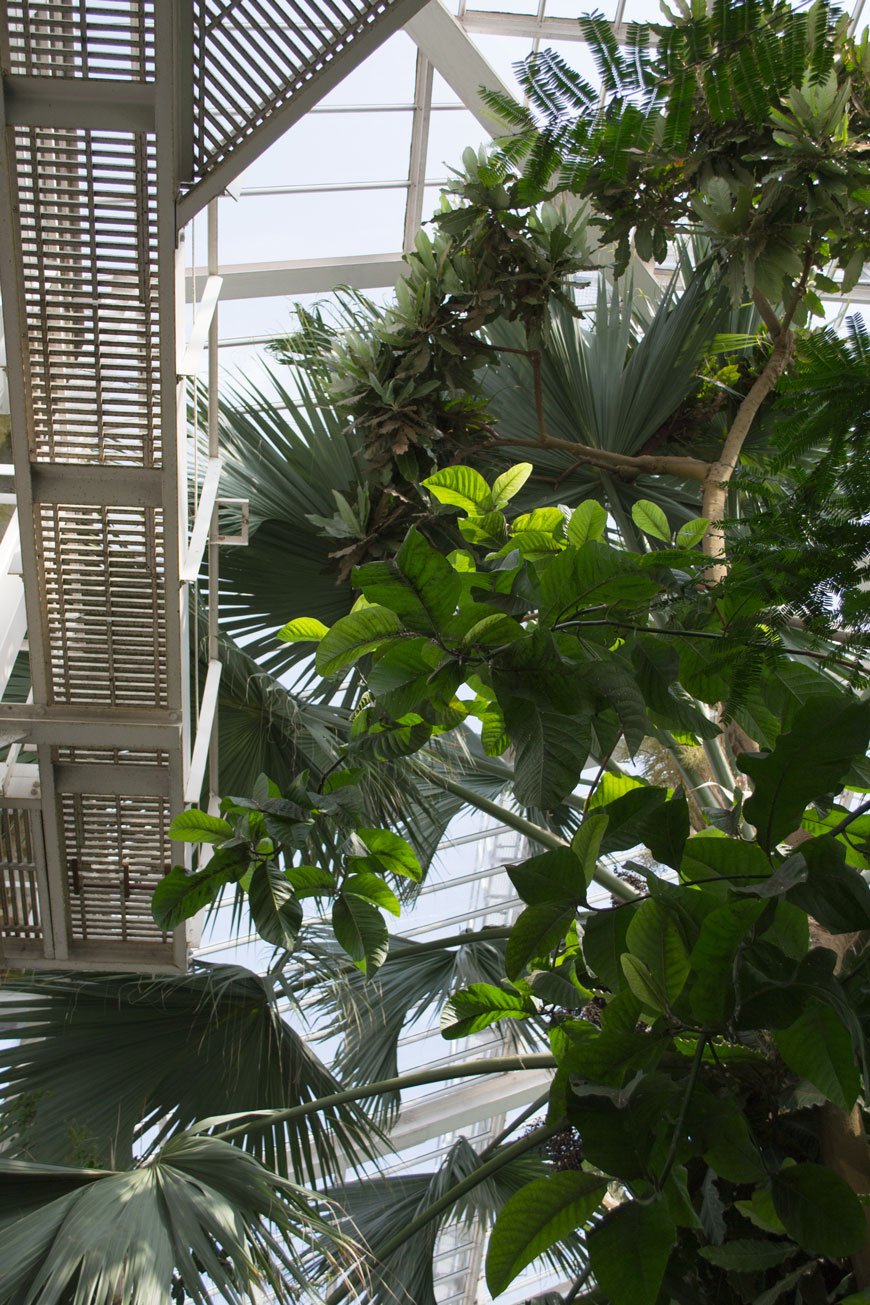
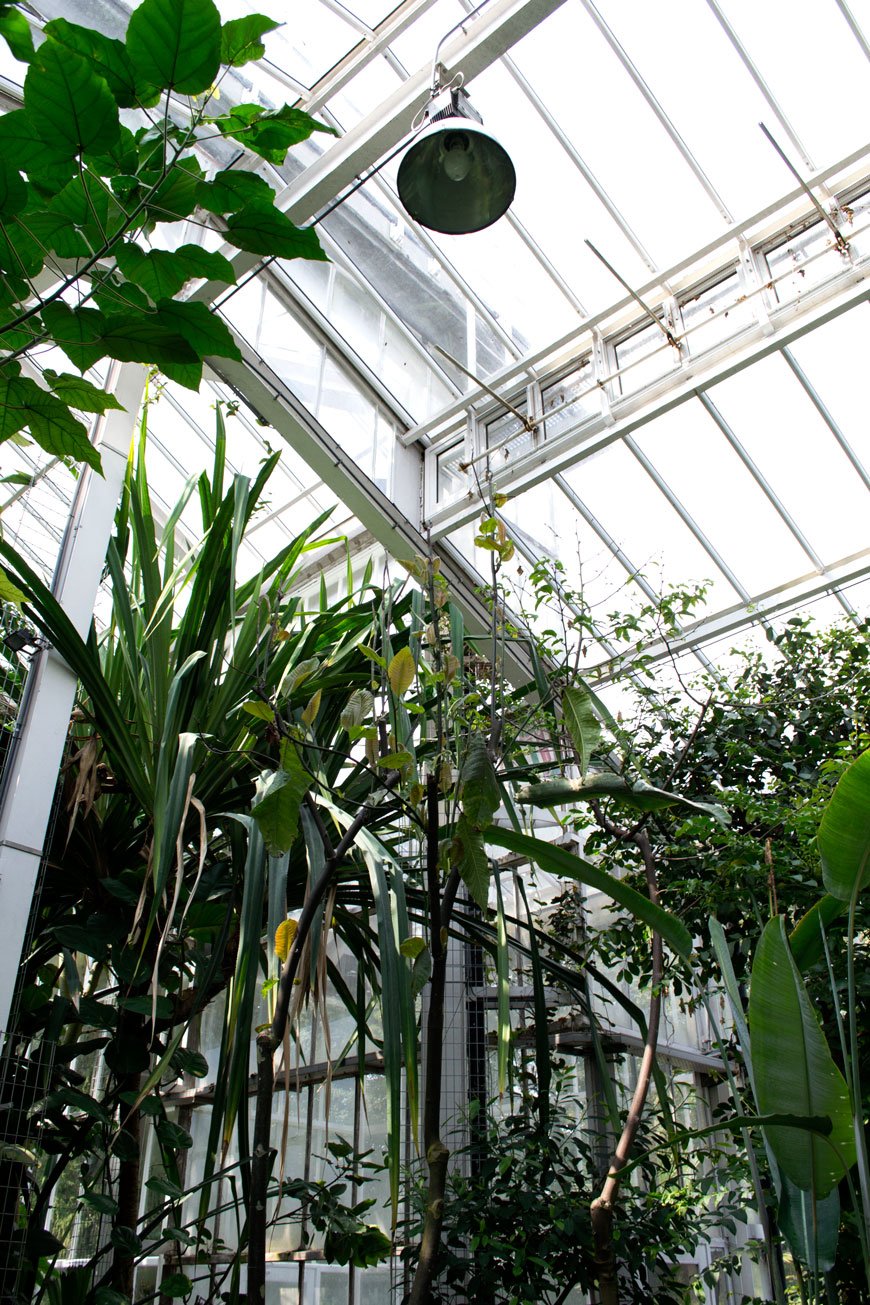
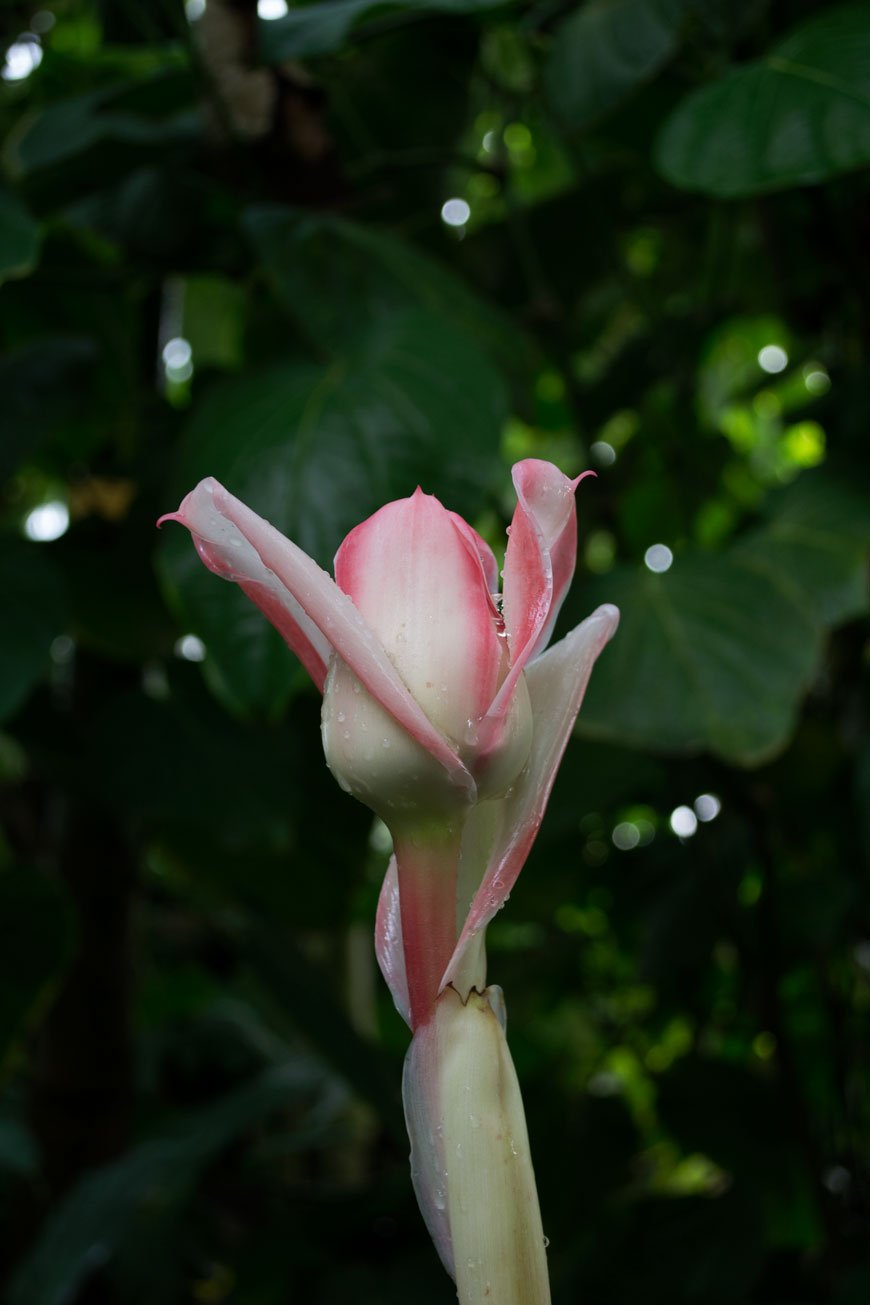
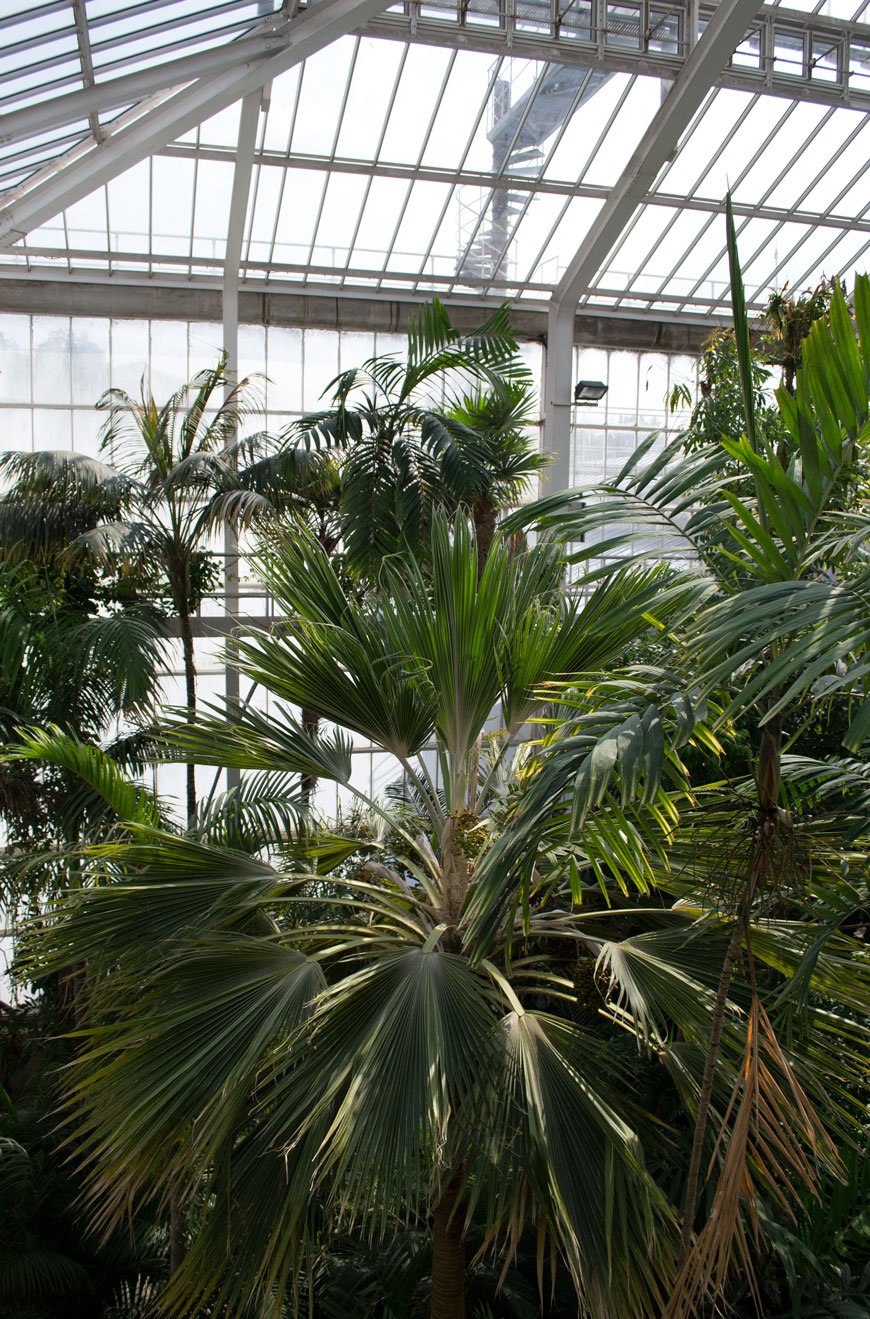
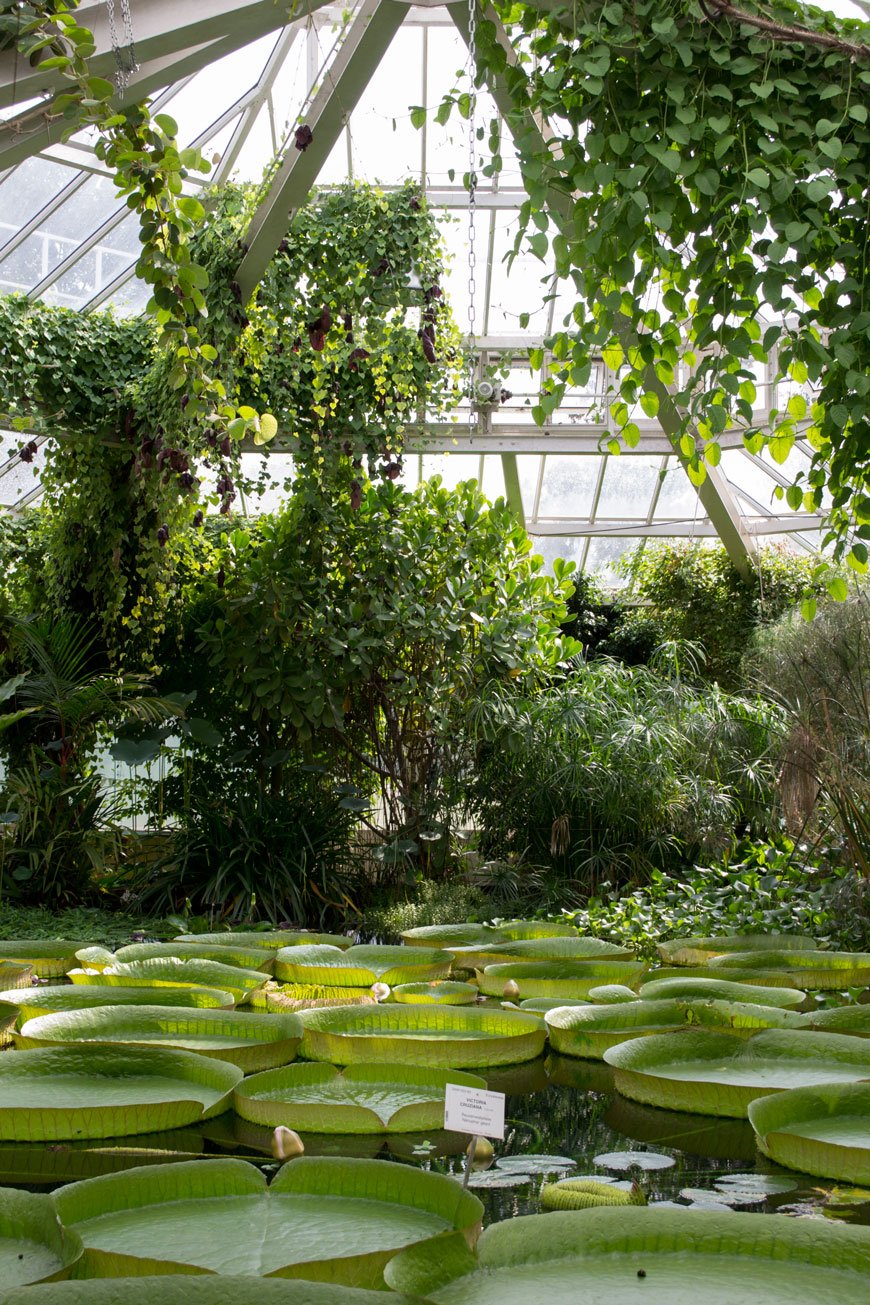
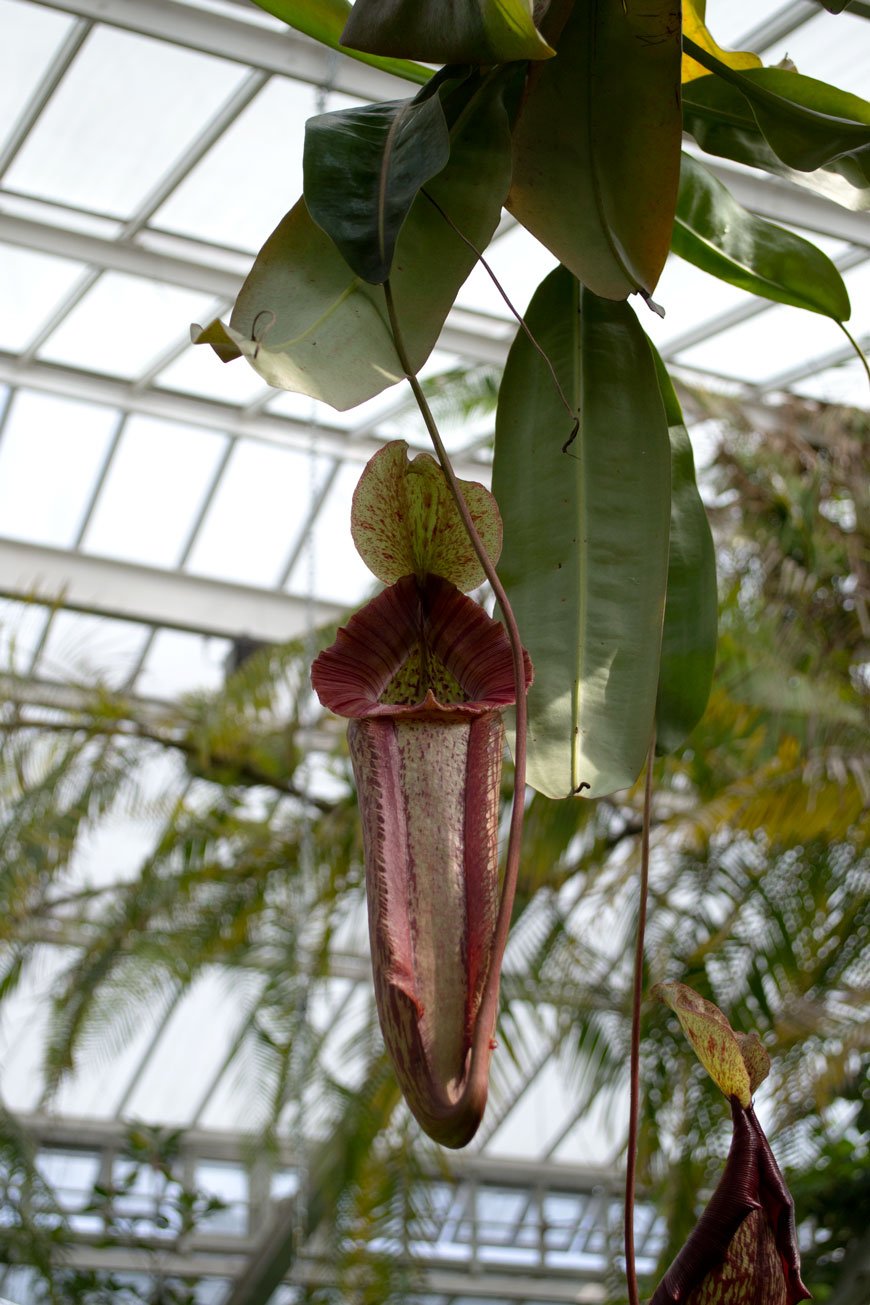
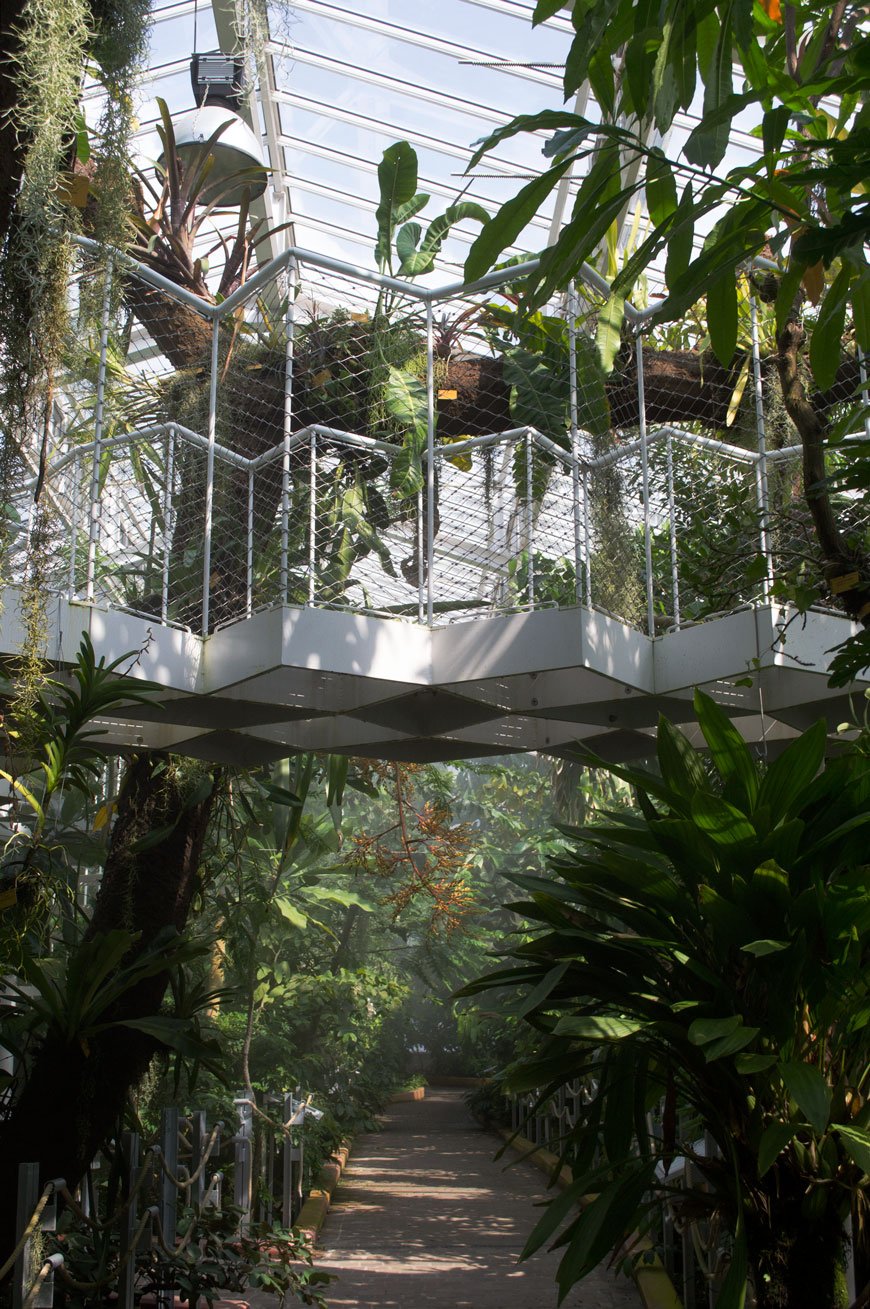
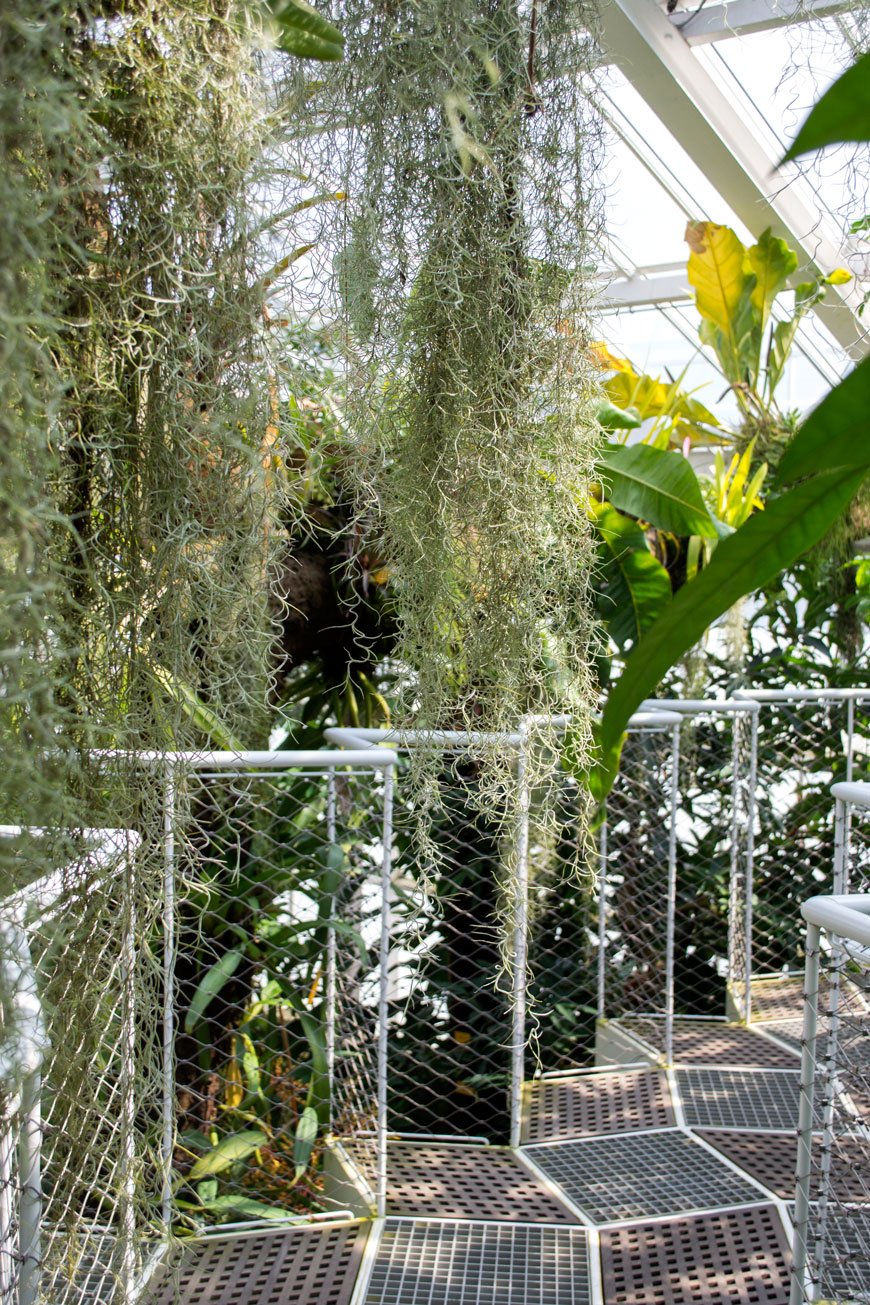
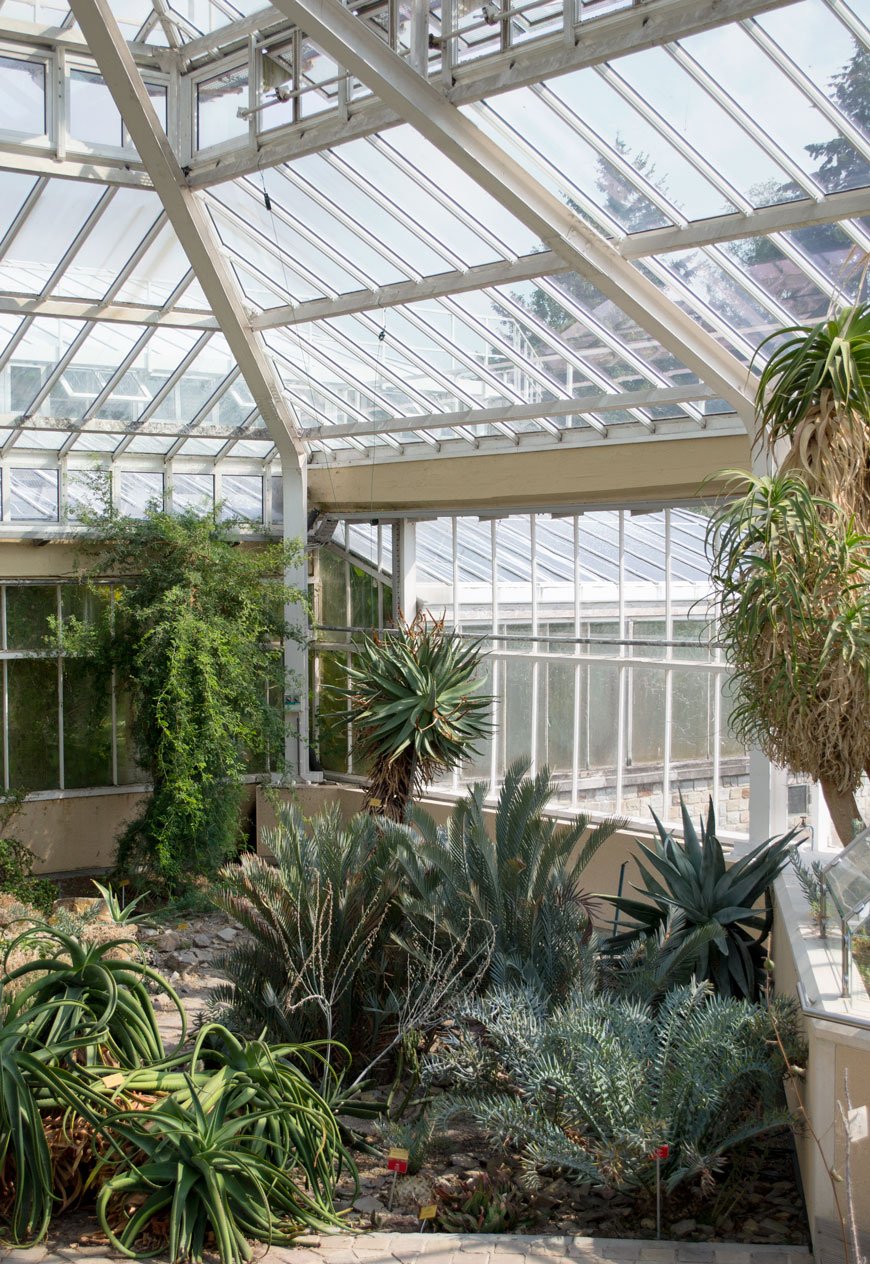
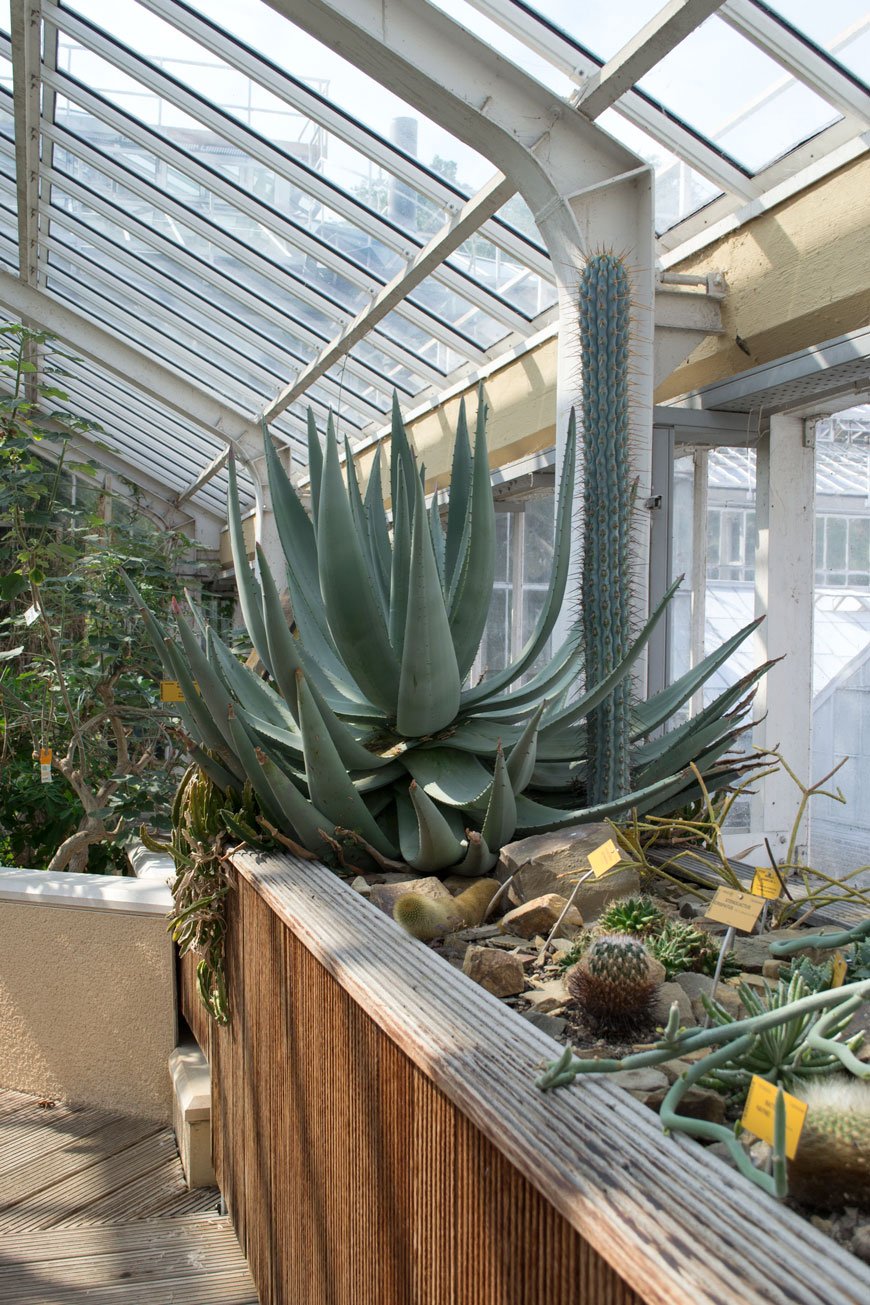
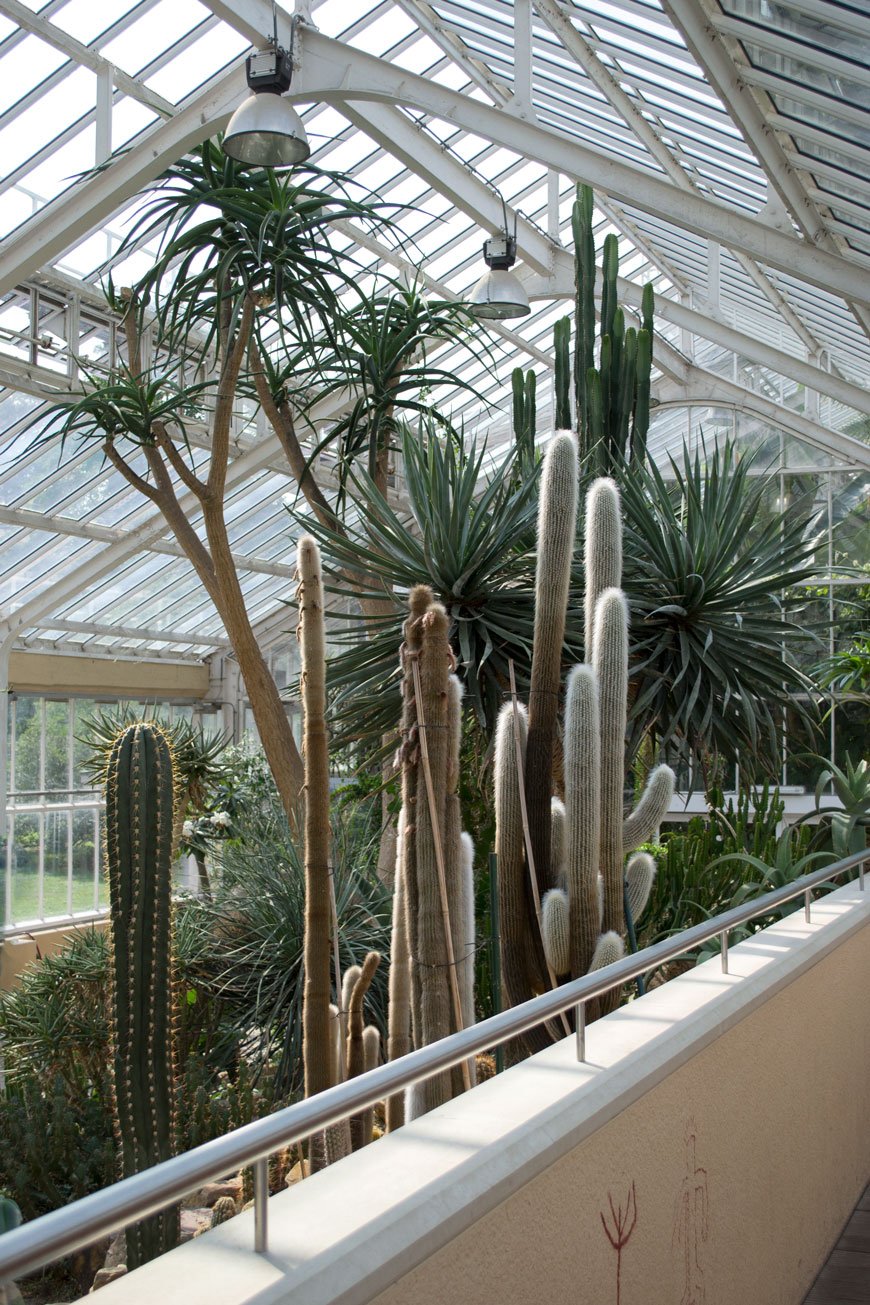
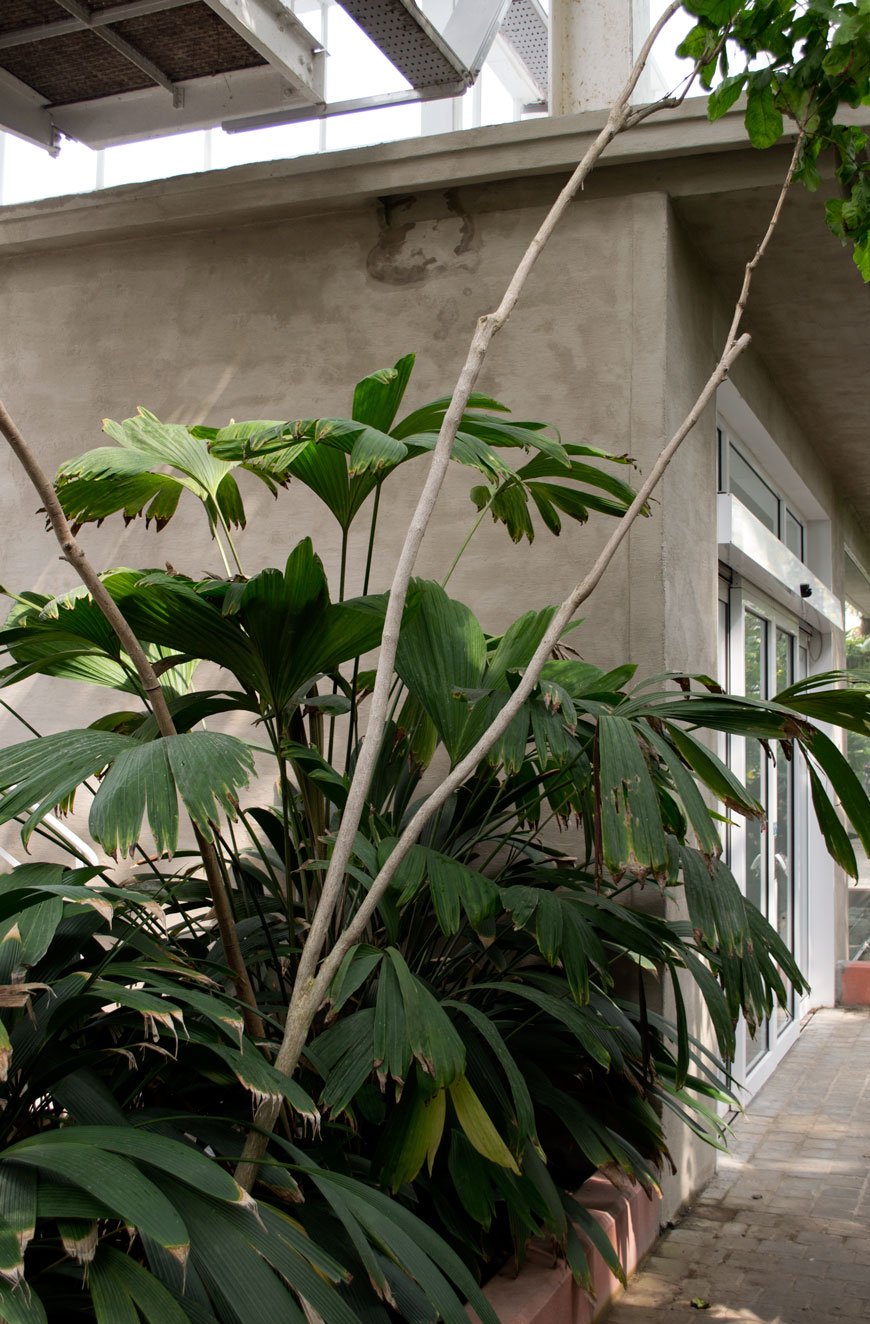
Photography © Tiffany Grant-Riley
Small Space Summer Garden Inspiration At Granit
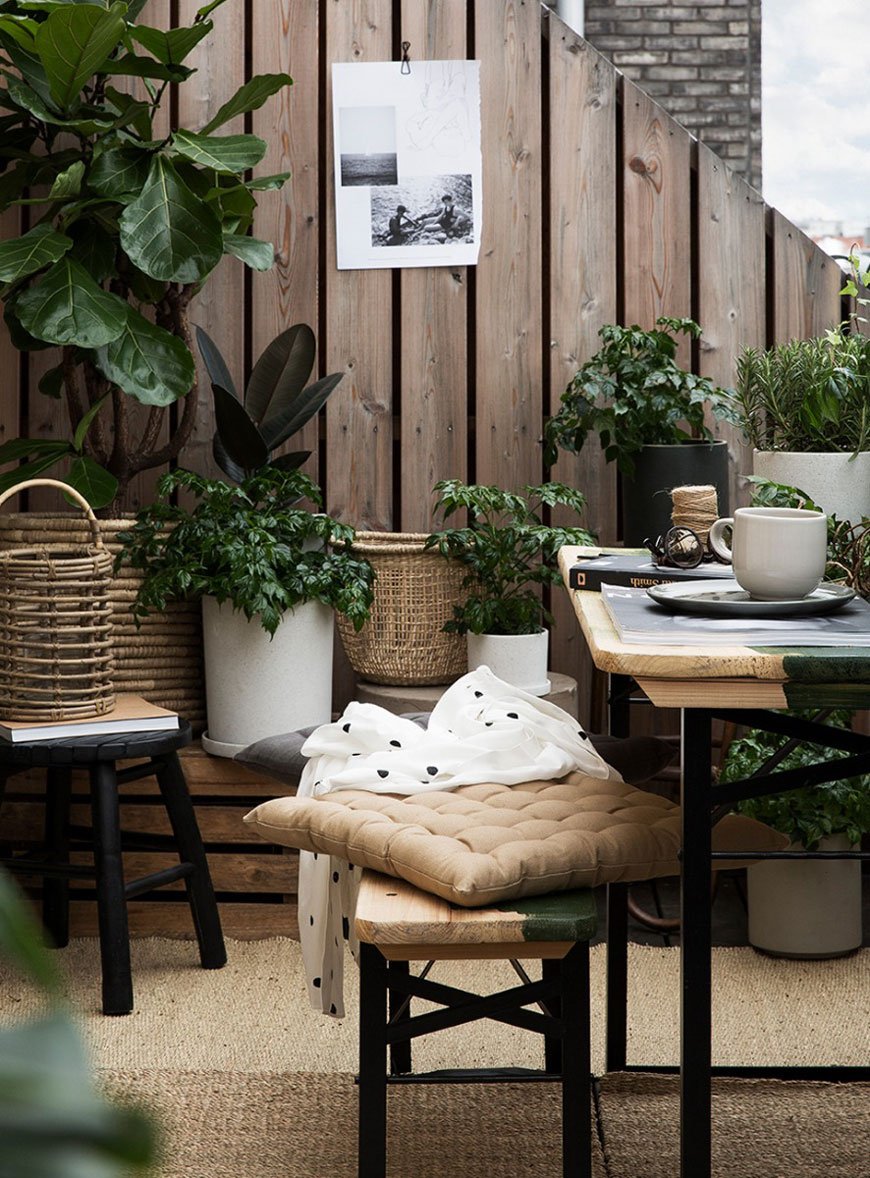 With the longer days here to stay a while and an abundance of plants to choose from, now is the perfect time to explore small space summer garden inspiration from Swedish store Granit.I'm a huge fan of Granit, a brand established by two friends back in 1996 who wanted to simplify their lives through a minimalist approach to functional homeware. You'll find baskets and crates, monochrome pots, furniture and finishing touches and with a focus on sustainable design in neutral colours.The SS18 lookbook is giving me hazy summer garden vibes and makes me want to take our sunroom to the next level. The vibrant greens in the plants do the talking in simple black and white concrete pots and there are lush hideaways in small corners...
With the longer days here to stay a while and an abundance of plants to choose from, now is the perfect time to explore small space summer garden inspiration from Swedish store Granit.I'm a huge fan of Granit, a brand established by two friends back in 1996 who wanted to simplify their lives through a minimalist approach to functional homeware. You'll find baskets and crates, monochrome pots, furniture and finishing touches and with a focus on sustainable design in neutral colours.The SS18 lookbook is giving me hazy summer garden vibes and makes me want to take our sunroom to the next level. The vibrant greens in the plants do the talking in simple black and white concrete pots and there are lush hideaways in small corners...
A Balcony Oasis
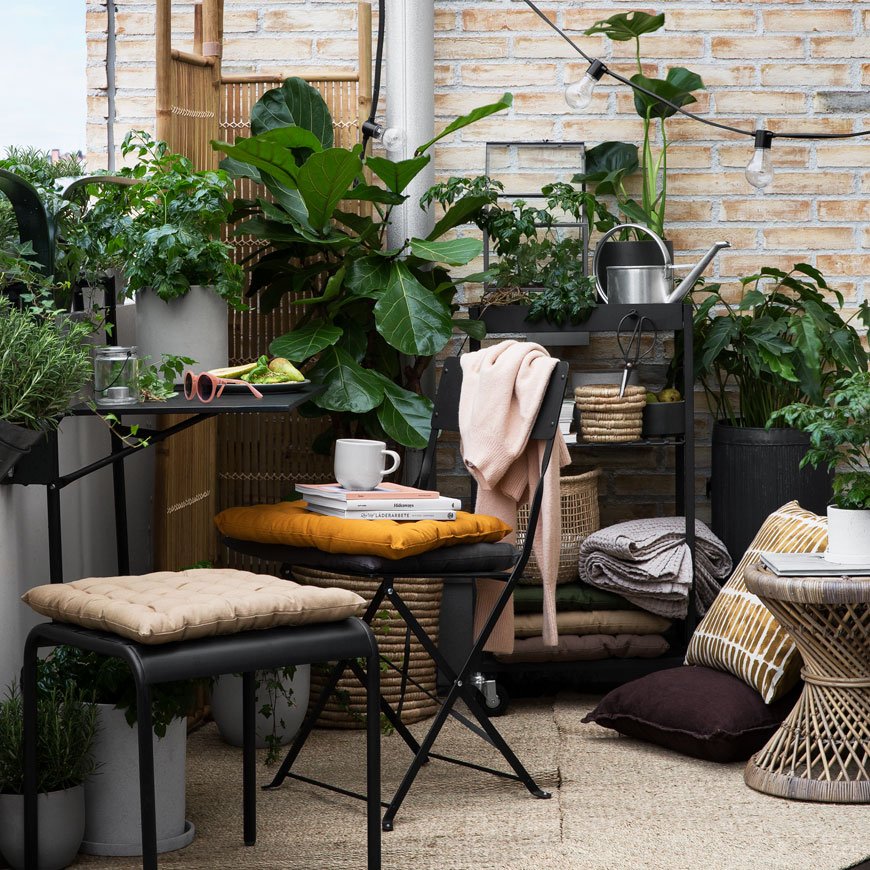 Do you have a balcony? Well then I'm jealous. Proving that a lack of space doesn't mean you can't enjoy a garden, plants can be displayed on tiered trolleys and narrow benches. Find furniture with small footprints to raise up your pots. Choose tall, narrow plants for their height; ideal for balconies, potted up and placed into woven baskets for textural contrast. If you have a small section of wall, think about wall mounting planters or attaching a piece of metal gridding for a climber to make the most of.
Do you have a balcony? Well then I'm jealous. Proving that a lack of space doesn't mean you can't enjoy a garden, plants can be displayed on tiered trolleys and narrow benches. Find furniture with small footprints to raise up your pots. Choose tall, narrow plants for their height; ideal for balconies, potted up and placed into woven baskets for textural contrast. If you have a small section of wall, think about wall mounting planters or attaching a piece of metal gridding for a climber to make the most of.
Every Space Is A Garden Opportunity
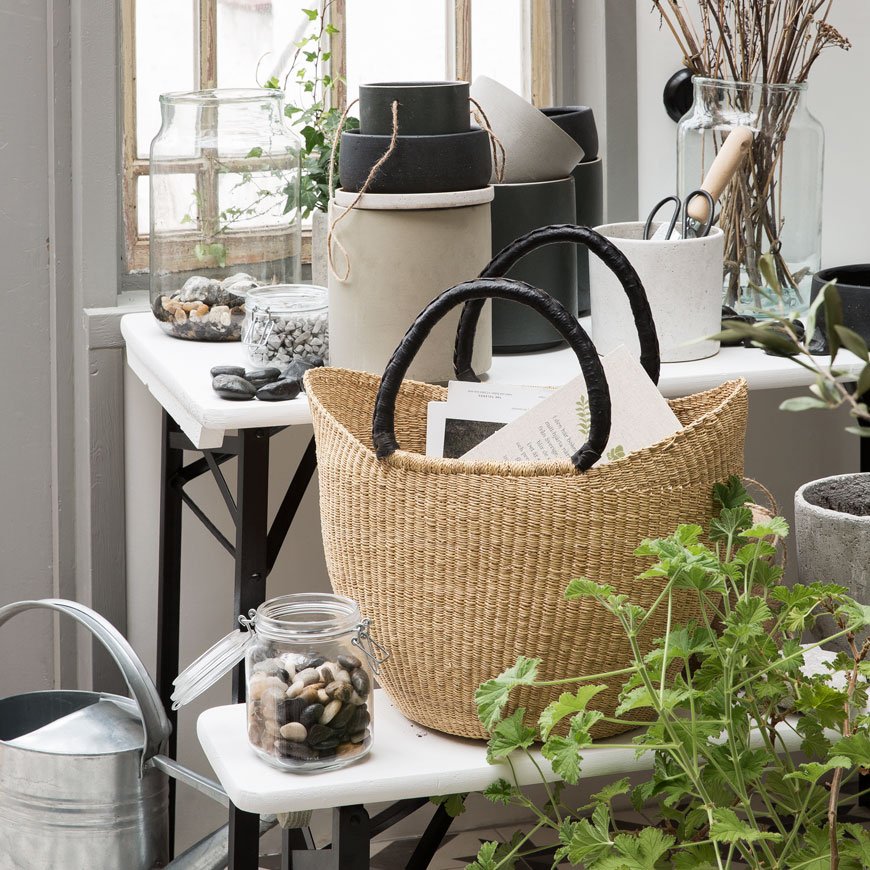 If you don't have access to an outdoor garden or sturdy windowsill then look at what you have indoors. Find an area that receives good light and use this as your starting point. Think about levels - attach trailing hanging plants from the ceiling or an existing curtain rail if you don't trust your DIY skills. Don't be afraid of large-scale plants. Despite it being a small space, taller plants will actually make it feel bigger because they make use of the height of the room rather than width. A bamboo is ideal with narrow leaves and structural stems, as is a rubber tree or fiddle leaf fig if you're a dab hand with temperamental varieties. Utilise low-level stools for large single pots and shelves to display a selection.
If you don't have access to an outdoor garden or sturdy windowsill then look at what you have indoors. Find an area that receives good light and use this as your starting point. Think about levels - attach trailing hanging plants from the ceiling or an existing curtain rail if you don't trust your DIY skills. Don't be afraid of large-scale plants. Despite it being a small space, taller plants will actually make it feel bigger because they make use of the height of the room rather than width. A bamboo is ideal with narrow leaves and structural stems, as is a rubber tree or fiddle leaf fig if you're a dab hand with temperamental varieties. Utilise low-level stools for large single pots and shelves to display a selection.
Kitchen Garden
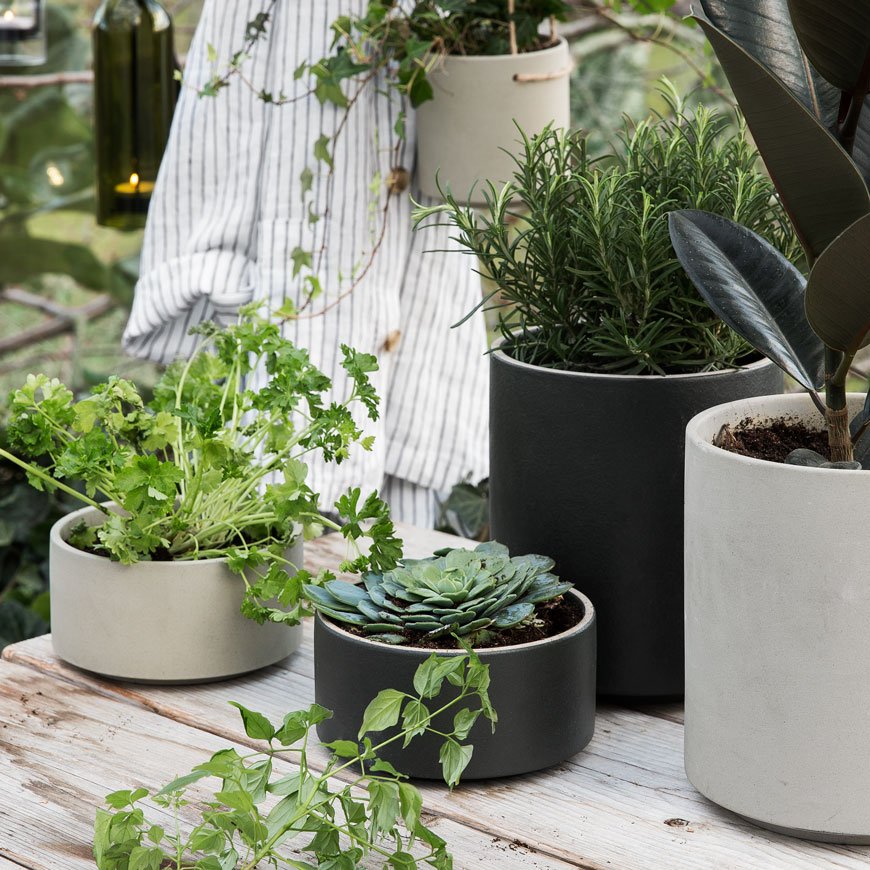 You can easily grow herbs from pots on a kitchen windowsill. Not only do they soften up the room but they're incredibly handy to have to hand and pinch off what you need as you cook. Some are easier to look after than others, but the Mediterranean varieties need very little attention to be happy. If there's a little more room, you could even try growing tomatoes. You will need to support the vines as they grow taller, but I have managed one or two plants from a medium-sized pot in a corner of the kitchen before.
You can easily grow herbs from pots on a kitchen windowsill. Not only do they soften up the room but they're incredibly handy to have to hand and pinch off what you need as you cook. Some are easier to look after than others, but the Mediterranean varieties need very little attention to be happy. If there's a little more room, you could even try growing tomatoes. You will need to support the vines as they grow taller, but I have managed one or two plants from a medium-sized pot in a corner of the kitchen before.
Bring Summer Garden Style Indoors
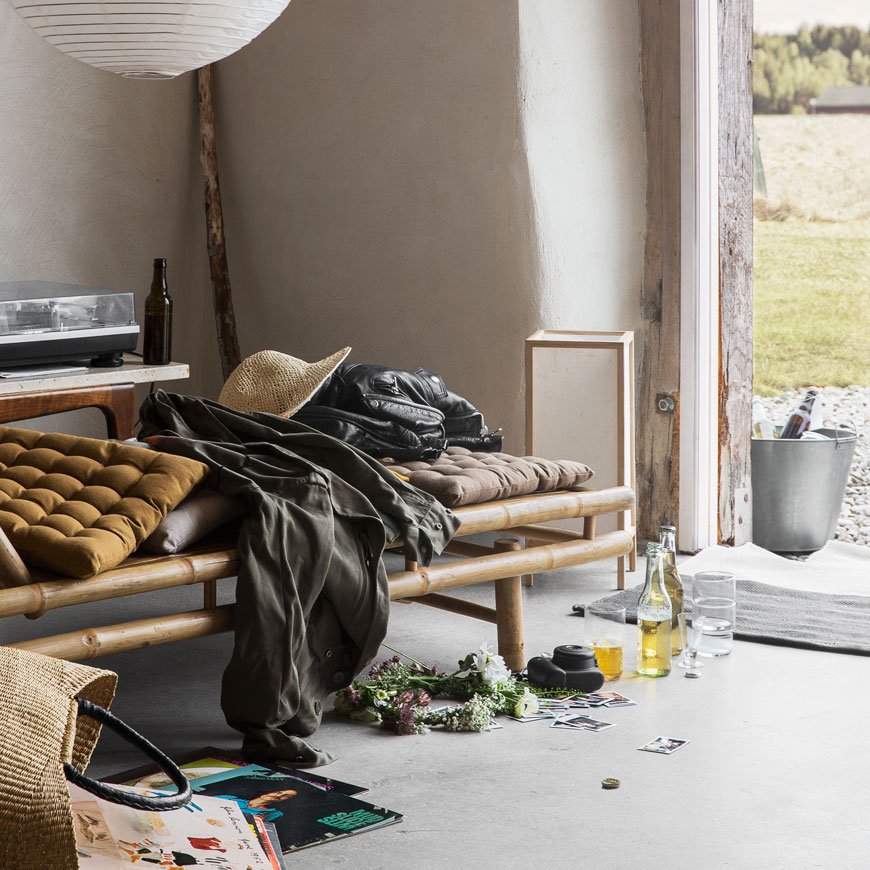 Bring summer garden style into your home with natural accessories. Woven seagrass mats feel great underfoot and raw, slubby linen cushions give a relaxed feel. I love Granit's earthy, spicy palette of linens and their bamboo daybed, spot on for lazy afternoon lounging with a good read.
Bring summer garden style into your home with natural accessories. Woven seagrass mats feel great underfoot and raw, slubby linen cushions give a relaxed feel. I love Granit's earthy, spicy palette of linens and their bamboo daybed, spot on for lazy afternoon lounging with a good read.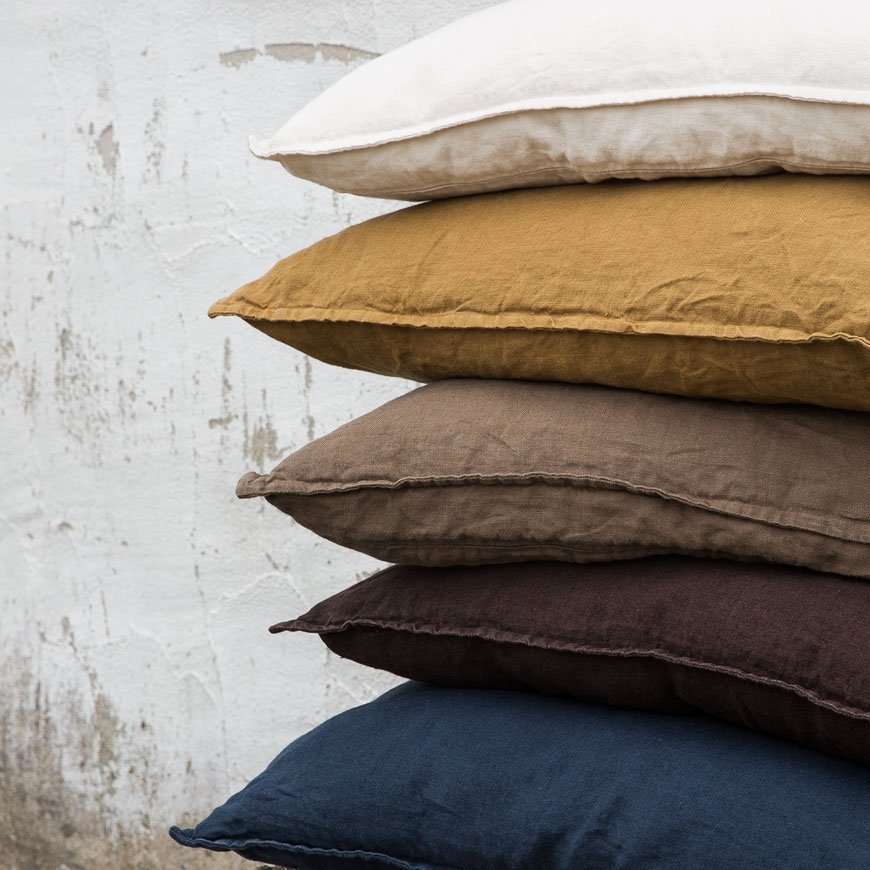 Don't forget the dining table too. If you've space to, a single branch of olive or apple blossom looks great in a large glass vase, as do small pots and vases with little posies. Wreaths are popular all year round, hung nonchalantly from a chair back (as below) or hung on the wall. Try making your own from foraged branches and summer blooms and if we're walking scale, the bigger the better if you ask me.
Don't forget the dining table too. If you've space to, a single branch of olive or apple blossom looks great in a large glass vase, as do small pots and vases with little posies. Wreaths are popular all year round, hung nonchalantly from a chair back (as below) or hung on the wall. Try making your own from foraged branches and summer blooms and if we're walking scale, the bigger the better if you ask me.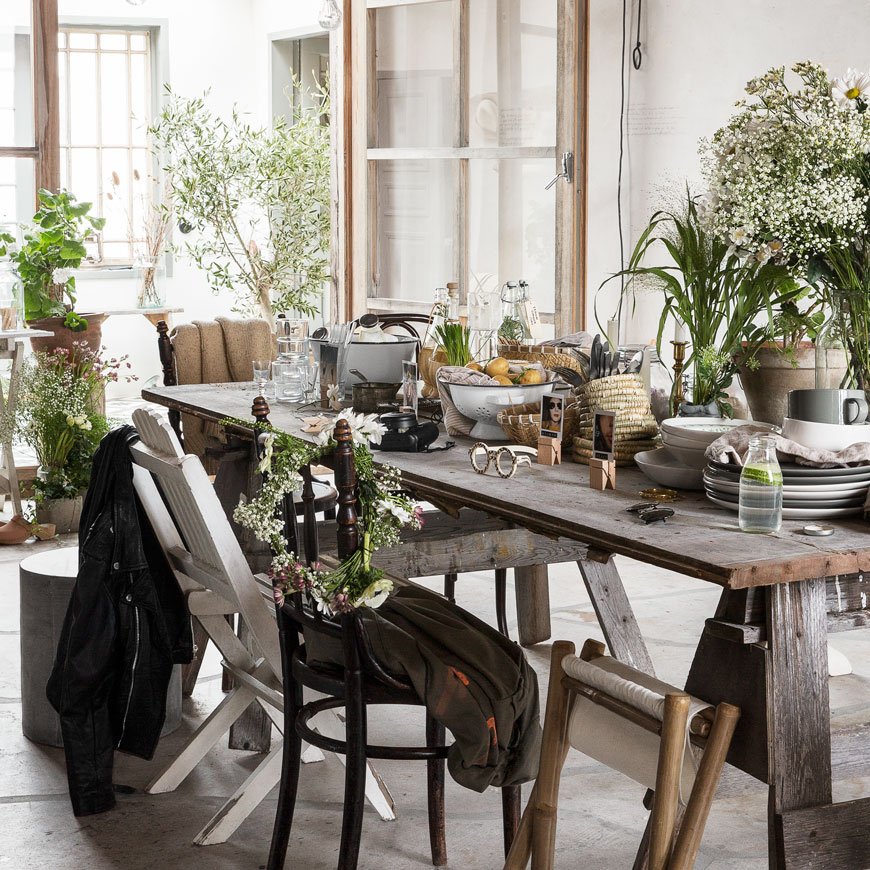 So now I've planted a few seeds for summer garden inspiration, it's your turn to put them into practice! One last tip from me? If in doubt, CRAM IT IN. I want to feel enveloped and cocooned by my garden, don't be afraid to layer up your canopy! And I'm sorry if my introduction to Granit will cause your bank account distress, particularly when I tell you that they ship to the EU...and for now that still includes us in the UK. Uh ohhh...
So now I've planted a few seeds for summer garden inspiration, it's your turn to put them into practice! One last tip from me? If in doubt, CRAM IT IN. I want to feel enveloped and cocooned by my garden, don't be afraid to layer up your canopy! And I'm sorry if my introduction to Granit will cause your bank account distress, particularly when I tell you that they ship to the EU...and for now that still includes us in the UK. Uh ohhh...
All imagery courtesy of © Granit with thanks.
Slow Rituals | A Mindful Approach To Houseplant Care
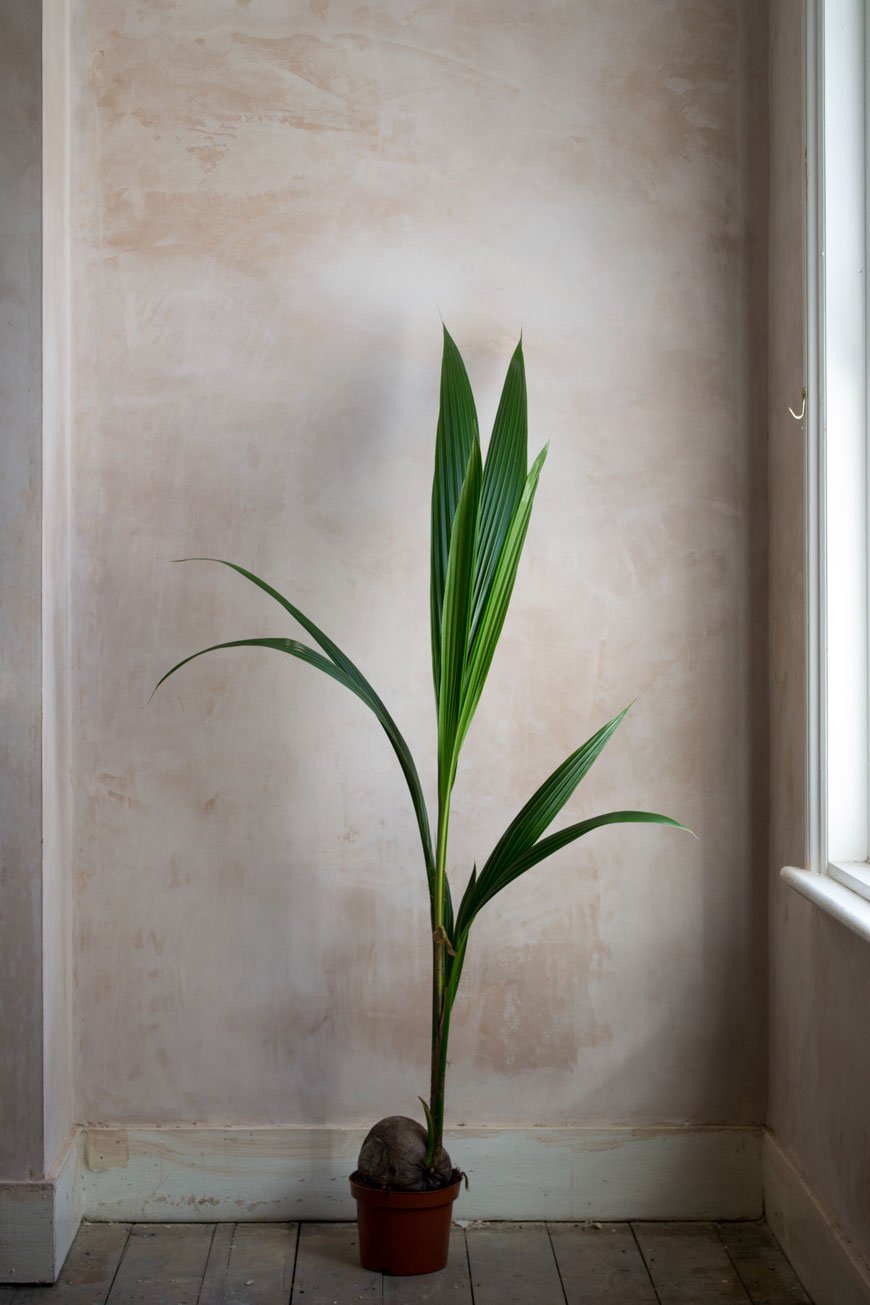 Plants have become an important part of my life these past few years. I wasn't instantly great with them, being used to gardening outside, houseplants were a whole different ballgame. There were a few casualties, and I learnt very quickly what my strengths were (let's say ferns aren't my strong point!) We now have around 50 established plants of various sizes and varieties and they're as much a part of our family as our kids. Well...almost.They anchor me, they are a reminder to look away from the stresses and trials from time to time and check in with them. They give me another focus for my thoughts - is it happy in that corner? does it need misting? Is it time for a bigger pot? Setting aside an hour a week of my time to give our plants attention is my way of slowing down, no matter what life is doing on either side of that pocket of time. And we know that slowing down doesn't just happen, it takes some planning as I detailed in this post, but with a few minutes care here and there during the week, you should start to feel a difference in yourself and see it through your plants.My mindful approach to houseplant care will not only put you on a path to finding time for a regular, slow ritual but should up your plant game in no time.
Plants have become an important part of my life these past few years. I wasn't instantly great with them, being used to gardening outside, houseplants were a whole different ballgame. There were a few casualties, and I learnt very quickly what my strengths were (let's say ferns aren't my strong point!) We now have around 50 established plants of various sizes and varieties and they're as much a part of our family as our kids. Well...almost.They anchor me, they are a reminder to look away from the stresses and trials from time to time and check in with them. They give me another focus for my thoughts - is it happy in that corner? does it need misting? Is it time for a bigger pot? Setting aside an hour a week of my time to give our plants attention is my way of slowing down, no matter what life is doing on either side of that pocket of time. And we know that slowing down doesn't just happen, it takes some planning as I detailed in this post, but with a few minutes care here and there during the week, you should start to feel a difference in yourself and see it through your plants.My mindful approach to houseplant care will not only put you on a path to finding time for a regular, slow ritual but should up your plant game in no time.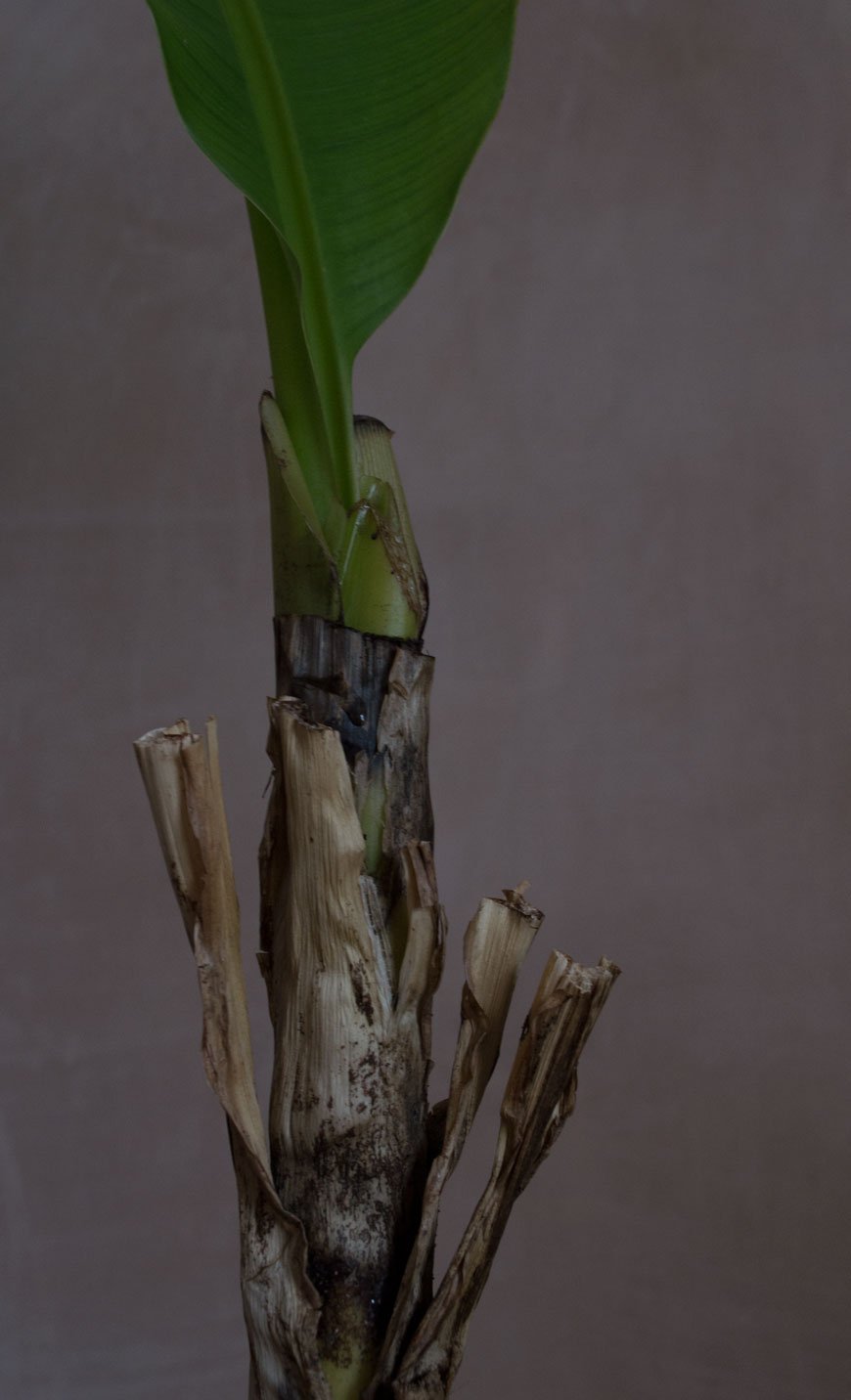
Checking In
Unless you're a seasoned hothouse orchid expert, most houseplants don't come with a huge list of demands. They're great at communicating and will throw out a few warnings when they're starting to feel unhappy. The best time to do this is the morning - maybe potter about the house with your cuppa. Take a moment to look at the leaves - are they vibrant, plump (if they're a cactus or succulent)? Or are they drying up, maybe changing colour? If it's the latter, it's either a case of over or under watering or the wrong amount of light. Depending on the plant, you'll want to check that it's in the right environment and getting the right amount of water, if not, make those changes.
Pruning
Not something you need to do often, but in the case of a rogue triffid, you might want to prune it back to avoid a take-over. I've just done this with a five-year-old cheese plant and it's perfectly happy, but I'd advise a little research first as not all plants like being trimmed. Be sure to remove any dead leaves to allow for new growth and use a sharp, gardener's knife or scissors for a clean cut. Cutting with anything blunt will encourage disease.
Propagating.
One of the best things about plants is that they give plenty back - literally. Some succulents and cacti produce offspring, attached to the 'parent' which can also be gently removed and propagated. I use a basic compost, mixed with a little sand for succulents and leave them to root, watering very occasionally. Some need to be laid directly onto the soil of the parent plant and left to dry out and grow roots which, once established, can be potted separately.Did you know that you can root some plant stems in just water? I've had some levels of success with a Monstera Deliciosa (cheese plant) and ZZ plant (Zamioculas Zamiflora) by cutting a mature stem at the base and leaving it in water, refreshing it regularly. After several weeks, you should see a root system start to form.
Feeding and Watering
During the winter, houseplants will slow down and go into a semi-hibernation. Don't give them any liquid feed at this time or water them too often. When spring comes around, they'll become active again and start growing which is when you can resume regular waterings with feed. I save our coffee grounds and dilute them as an occasional caffeinated feed for a pick-me-up too. Bear in mind, however, that some plants don't enjoy acidity which the coffee water creates, so keep an eye on the leaves in case they start to yellow.
Potting On
If it looks like your plant is running out of space to grow, it's likely it'll need potting on to a larger vessel. An easy way to tell is if the roots start pushing through the bottom of the pot or look coiled (pot-bound) when you lift it out. Don't attempt to do this until spring when the root system will be active and ready to spread into the new space.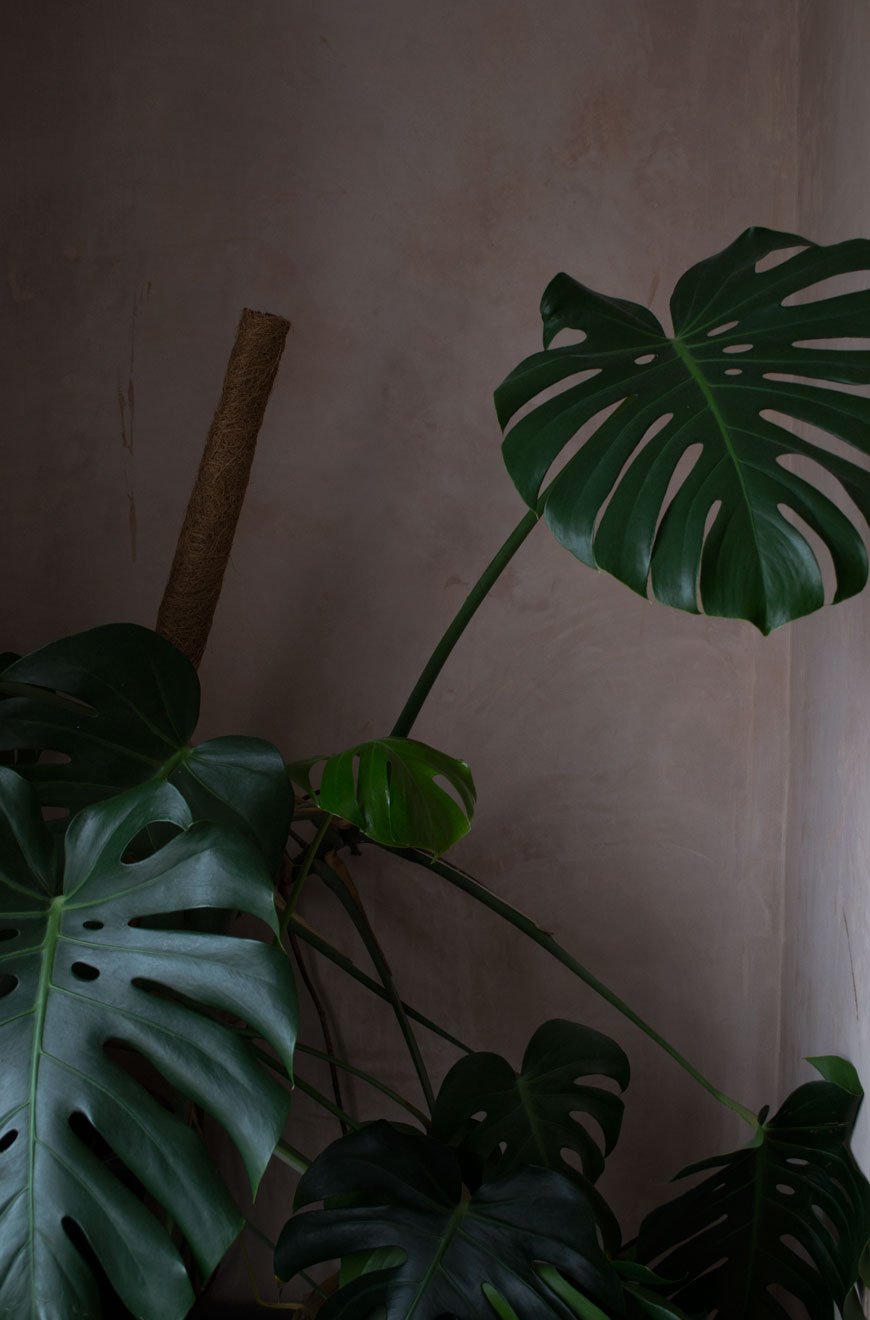 Don't be afraid to try living with plants - I meet so many people who say they wish they could be better at keeping them alive. There's really no magic to it, just a small amount of commitment and attention. Adopting a slow ritual in caring for your plants and the benefits they bring in return are so worth it.I'd love to hear about your experiences with houseplants. Have they helped you to switch off and slow down? Or maybe you're looking for a good starter plant and would like some tips?Photography © Tiffany Grant-Riley
Don't be afraid to try living with plants - I meet so many people who say they wish they could be better at keeping them alive. There's really no magic to it, just a small amount of commitment and attention. Adopting a slow ritual in caring for your plants and the benefits they bring in return are so worth it.I'd love to hear about your experiences with houseplants. Have they helped you to switch off and slow down? Or maybe you're looking for a good starter plant and would like some tips?Photography © Tiffany Grant-Riley
Botanical Scandinavian Sunroom Makeover - The Reveal
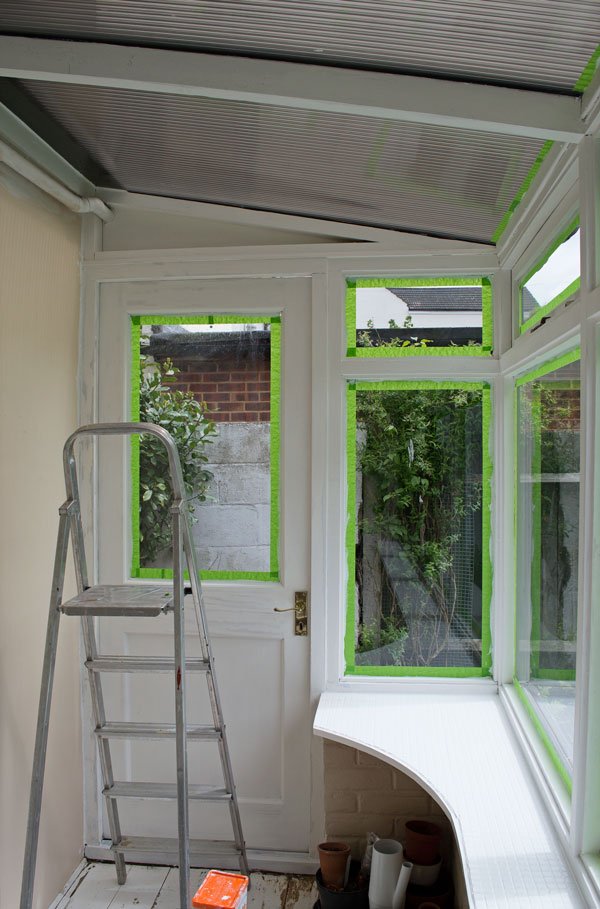 If you saw my last post, you'll know I've been working on a small scale makeover to give our tired little sunroom a refresh. When I started two months ago, I thought it was going to be relatively straight forward - and it was in that for the most part it only involved paint. But painting anything well takes time and preparation. So this is where I've been spending any spare moment of my time of late, come rain or shine, paintbrush in hand with a very clear vision of the finished look in my mind to spur me on. I might as well have moved in here, seeing as the kids always knew where to find me when they discovered I was missing!As this is really only a temporary space (no insulation or heating and windows rotting on the outside) there was little point in re-laying the floor or replacing the windows, so instead I focused on the cosmetics. The biggest challenge was prepping the woodwork, which was not only badly painted in several coats of aged gloss paint, but the wood hadn't been treated properly when the structure went up, so I was often sanding off sticky old wood sap as I broke through the layers with the sander. I gave everything a very brief keying to prep the surface and found a brilliant ultra grip primer, formulated for difficult surfaces and aged paint. It made life so much easier when it came to applying the top coat. You can find all the product information in the source list at the end of the post.
If you saw my last post, you'll know I've been working on a small scale makeover to give our tired little sunroom a refresh. When I started two months ago, I thought it was going to be relatively straight forward - and it was in that for the most part it only involved paint. But painting anything well takes time and preparation. So this is where I've been spending any spare moment of my time of late, come rain or shine, paintbrush in hand with a very clear vision of the finished look in my mind to spur me on. I might as well have moved in here, seeing as the kids always knew where to find me when they discovered I was missing!As this is really only a temporary space (no insulation or heating and windows rotting on the outside) there was little point in re-laying the floor or replacing the windows, so instead I focused on the cosmetics. The biggest challenge was prepping the woodwork, which was not only badly painted in several coats of aged gloss paint, but the wood hadn't been treated properly when the structure went up, so I was often sanding off sticky old wood sap as I broke through the layers with the sander. I gave everything a very brief keying to prep the surface and found a brilliant ultra grip primer, formulated for difficult surfaces and aged paint. It made life so much easier when it came to applying the top coat. You can find all the product information in the source list at the end of the post.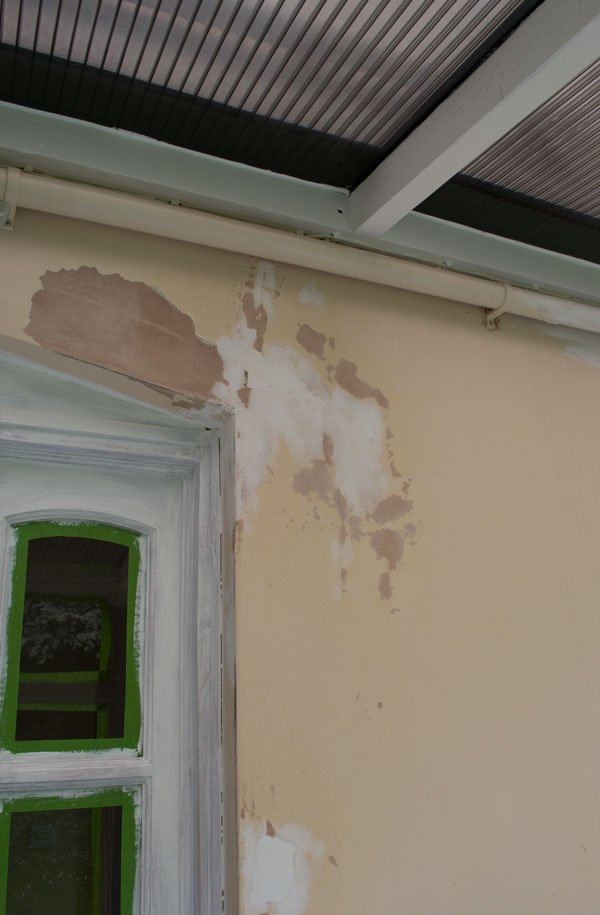 I used masonry paint across all walls to help protect them in the colder months. The old paint had been peeling off in places so I needed something to stand up to all conditions and hopefully avoid it happening again. As it gets a lot of light in here, I chose a white with blue undertones to take the edge off slightly.
I used masonry paint across all walls to help protect them in the colder months. The old paint had been peeling off in places so I needed something to stand up to all conditions and hopefully avoid it happening again. As it gets a lot of light in here, I chose a white with blue undertones to take the edge off slightly.
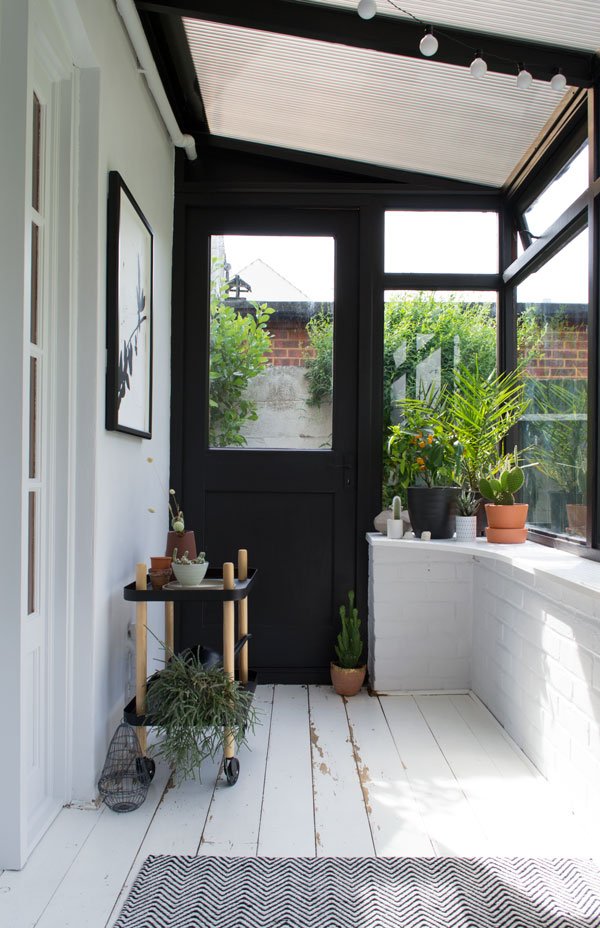 And here it is. Bright, minimal and contemporary, just the way I like it. It feels like the space I've been missing since we moved here and it's so lovely to see everyone drawn to it when we're all at home. Don't the black frames completely transform it? Not quite Crittall windows but it's a great start! Notice how they frame and bring the garden inside? There's space for additional seating - I have a couple of stools which can sit by the windowsill and there's enough floor space for one or two large floor cushions.I wanted to introduce a little warmth into the space, especially as a monochromatic scheme can feel somewhat cold, so I brought out the earthy tones to compliment the lush green planting. From a collection of terracotta pots, a beautiful Ian Mcintyre pitcher, to my newest love discovered at Clerkenwell Design Week - the DUO table lamp, these tones really pull the space together.The pine door was such an eyesore, it pulled the attention away from the garden when we would sit in here, like an orange beacon of misery. It was given a couple of coats of the same white as the walls to blend in with the rest of the space and feels much calmer now. You'll notice I did the door handles and window latches in the same colour to save replacing them all.
And here it is. Bright, minimal and contemporary, just the way I like it. It feels like the space I've been missing since we moved here and it's so lovely to see everyone drawn to it when we're all at home. Don't the black frames completely transform it? Not quite Crittall windows but it's a great start! Notice how they frame and bring the garden inside? There's space for additional seating - I have a couple of stools which can sit by the windowsill and there's enough floor space for one or two large floor cushions.I wanted to introduce a little warmth into the space, especially as a monochromatic scheme can feel somewhat cold, so I brought out the earthy tones to compliment the lush green planting. From a collection of terracotta pots, a beautiful Ian Mcintyre pitcher, to my newest love discovered at Clerkenwell Design Week - the DUO table lamp, these tones really pull the space together.The pine door was such an eyesore, it pulled the attention away from the garden when we would sit in here, like an orange beacon of misery. It was given a couple of coats of the same white as the walls to blend in with the rest of the space and feels much calmer now. You'll notice I did the door handles and window latches in the same colour to save replacing them all.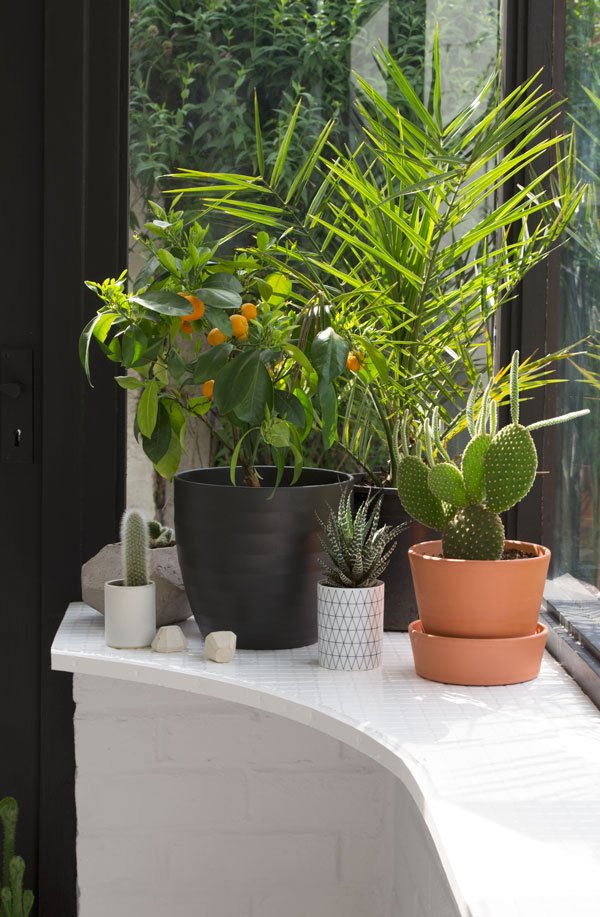
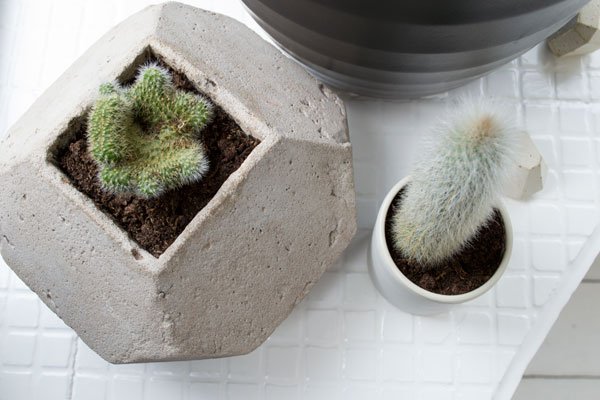


 At this time of year this room has the perfect conditions for heat and light loving plants. I've bought a date palm (pictured next to my citrus tree which was flowering heady scented blooms all spring) and an Areca palm for height at the back of the room. I took the opportunity to repot some of our cacti from the kids room too and I'm completely in love with the fig which comes from Valencia so it's used to sweltering summers and cold winters. I wonder if it'll ever bear fruit? Either way, everything in here will be happy until the colder months come and then I'll bring them into the main house and swap them with others.The black Normann Copenhagen Block trolley has long been a much coveted design, it's such a versatile piece. I can use it for repotting and watering, store blankets over winter or stack it up with magazines. I've already used to it host dinner on whilst I was still painting and it was a nice touch to serve from it.
At this time of year this room has the perfect conditions for heat and light loving plants. I've bought a date palm (pictured next to my citrus tree which was flowering heady scented blooms all spring) and an Areca palm for height at the back of the room. I took the opportunity to repot some of our cacti from the kids room too and I'm completely in love with the fig which comes from Valencia so it's used to sweltering summers and cold winters. I wonder if it'll ever bear fruit? Either way, everything in here will be happy until the colder months come and then I'll bring them into the main house and swap them with others.The black Normann Copenhagen Block trolley has long been a much coveted design, it's such a versatile piece. I can use it for repotting and watering, store blankets over winter or stack it up with magazines. I've already used to it host dinner on whilst I was still painting and it was a nice touch to serve from it.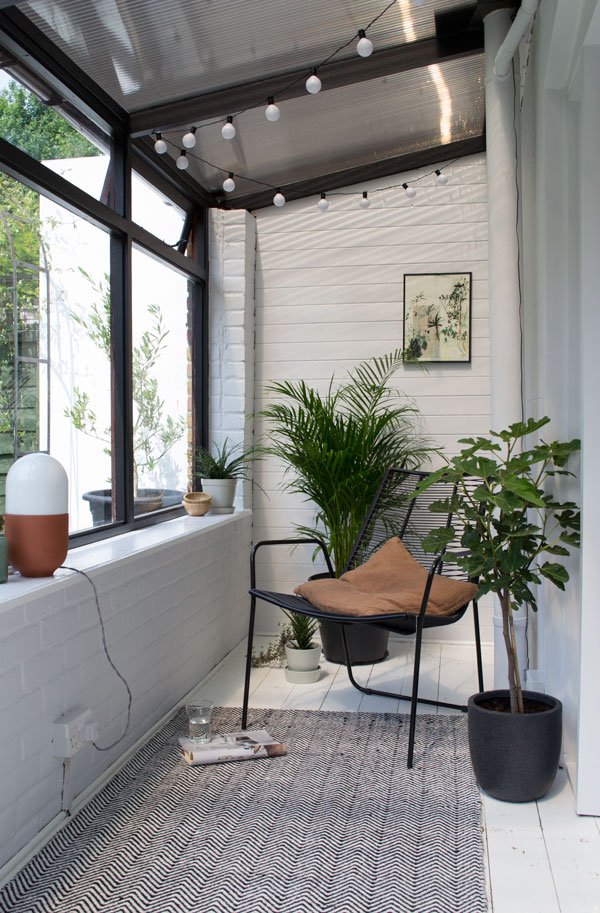 Initially, I'd planned to find an indoor/outdoor rug, but as the dimensions in here are so tricky I landed on the cotton and jute weave Ives rug in a herringbone pattern from Houseology. I love that it brings in a contrasting texture against the rough floor and echos the woven lines in the Lene Bjerre April lounge chair. The thin frame and see-through seat still leaves a feeling of space and it's extremely comfortable to sit back in.Over time I've been collecting botanical art work, and whilst I might eventually move these to the living room where I'd like to include them in a gallery wall, they sit well in this space.
Initially, I'd planned to find an indoor/outdoor rug, but as the dimensions in here are so tricky I landed on the cotton and jute weave Ives rug in a herringbone pattern from Houseology. I love that it brings in a contrasting texture against the rough floor and echos the woven lines in the Lene Bjerre April lounge chair. The thin frame and see-through seat still leaves a feeling of space and it's extremely comfortable to sit back in.Over time I've been collecting botanical art work, and whilst I might eventually move these to the living room where I'd like to include them in a gallery wall, they sit well in this space.


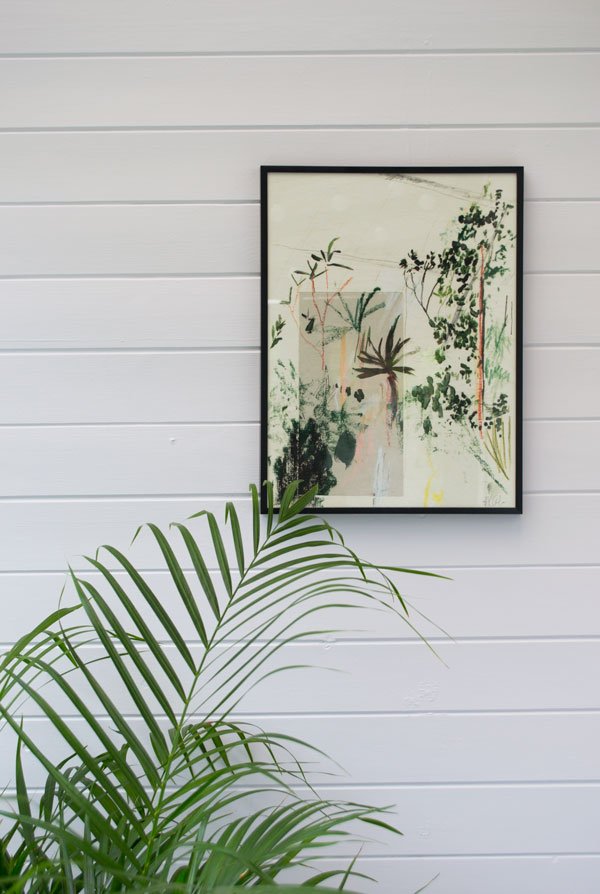
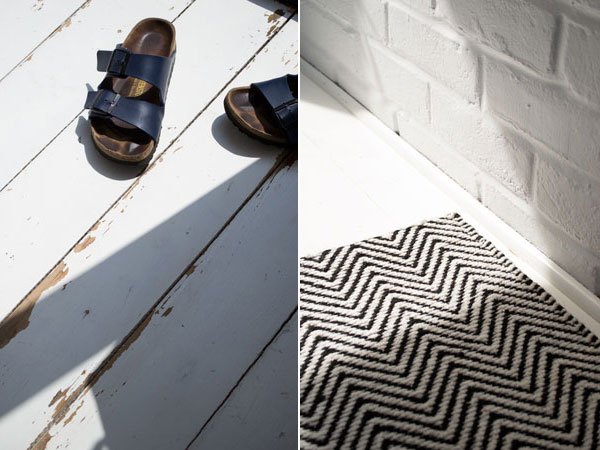

 My next plan will be sourcing blinds for the lower windows as it can feel a little exposed to the houses at the back in the evening. I also want to make sure I can protect the plants from strong sun. Oh. And fill it with a lot more of them, of course.So, what do you think? Maybe I've inspired you to give your garden an update?Source List:Wall paint: 'Sleeping Inn' white masonry paint, Valspar.Wood & metal paint: 'Village Smithy' black paint in premium eggshell, Valspar | 'Sleeping Inn' matt premium eggshell, Valspar.Tile paint:Wood primer: Ultra Grip white primer, Dulux Trade.Herringbone Ives rug: Houseology*.Black Normann Copenhagen Block trolley: Houseology*.Linum jute cushion in rust: Holly's House.Lene Bjerre April lounge chair: Houseology*.Terracotta pitcher: Another Country.Black and white botanical leaf print, Chocolate Creative.Abstract botanical print, Alicia Galer.Terracotta and opaline glass Duo table lamp: Hand & Eye Studio.LED Festoon lights: IKEA.* This post was written in collaboration with Houseology.Styling & Photography © Tiffany Grant-Riley Want to see more of our home renovation projects? Follow #TheChathamHouse on Instagram for all updates...
My next plan will be sourcing blinds for the lower windows as it can feel a little exposed to the houses at the back in the evening. I also want to make sure I can protect the plants from strong sun. Oh. And fill it with a lot more of them, of course.So, what do you think? Maybe I've inspired you to give your garden an update?Source List:Wall paint: 'Sleeping Inn' white masonry paint, Valspar.Wood & metal paint: 'Village Smithy' black paint in premium eggshell, Valspar | 'Sleeping Inn' matt premium eggshell, Valspar.Tile paint:Wood primer: Ultra Grip white primer, Dulux Trade.Herringbone Ives rug: Houseology*.Black Normann Copenhagen Block trolley: Houseology*.Linum jute cushion in rust: Holly's House.Lene Bjerre April lounge chair: Houseology*.Terracotta pitcher: Another Country.Black and white botanical leaf print, Chocolate Creative.Abstract botanical print, Alicia Galer.Terracotta and opaline glass Duo table lamp: Hand & Eye Studio.LED Festoon lights: IKEA.* This post was written in collaboration with Houseology.Styling & Photography © Tiffany Grant-Riley Want to see more of our home renovation projects? Follow #TheChathamHouse on Instagram for all updates...
How To Make A Kokedama Hanging Garden
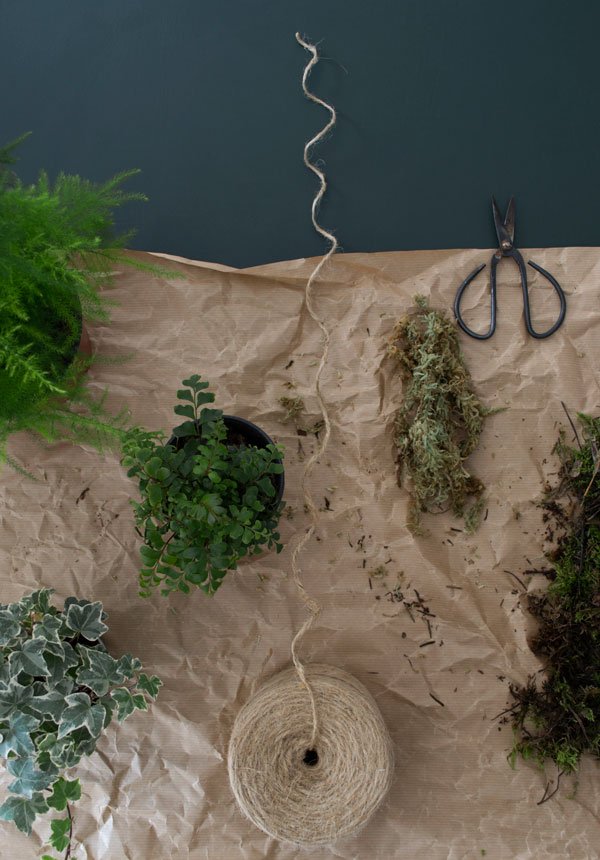 Almost this time last year I was shooting this tutorial piece for the book 'Urban Jungle - Living & Styling with Plants' and today I wanted to show you how to make a Kokedama (meaning "moss ball") hanging garden. Not only do they make a stunning feature of an otherwise blank corner of a room, but they're also use up very little space if large potted houseplants aren't an option for you.If you're a plant lover and you've had your eyes open over the past year or so, you'll have noticed this new trend of hanging moss ball plants popping up everywhere, taken from the traditional Japanese art of displaying plants. I managed to teach myself to do this on the fly as I shot it, so although the overall concept might sound daunting, it couldn't be easier to do. The mixing of the soils and wrapping the moss and string is a therapeutic, hands on way to garden and if you choose the right plant, it'll be happy for as long as you take good care. Mine have been thriving for almost a year now too...You Will Need:A space to make mess. If this is at your table indoors, put paper down (and on the floor too). Otherwise, go outside!Moisture loving plants - ferns are ideal (I've used the Asparagus variety) as well as ivy, small trees and orchids.Sphagnum moss.All-purpose compost.Bonsai or Akadama soil.Garden or waxed twine or thin cord.Sheet moss.
Almost this time last year I was shooting this tutorial piece for the book 'Urban Jungle - Living & Styling with Plants' and today I wanted to show you how to make a Kokedama (meaning "moss ball") hanging garden. Not only do they make a stunning feature of an otherwise blank corner of a room, but they're also use up very little space if large potted houseplants aren't an option for you.If you're a plant lover and you've had your eyes open over the past year or so, you'll have noticed this new trend of hanging moss ball plants popping up everywhere, taken from the traditional Japanese art of displaying plants. I managed to teach myself to do this on the fly as I shot it, so although the overall concept might sound daunting, it couldn't be easier to do. The mixing of the soils and wrapping the moss and string is a therapeutic, hands on way to garden and if you choose the right plant, it'll be happy for as long as you take good care. Mine have been thriving for almost a year now too...You Will Need:A space to make mess. If this is at your table indoors, put paper down (and on the floor too). Otherwise, go outside!Moisture loving plants - ferns are ideal (I've used the Asparagus variety) as well as ivy, small trees and orchids.Sphagnum moss.All-purpose compost.Bonsai or Akadama soil.Garden or waxed twine or thin cord.Sheet moss.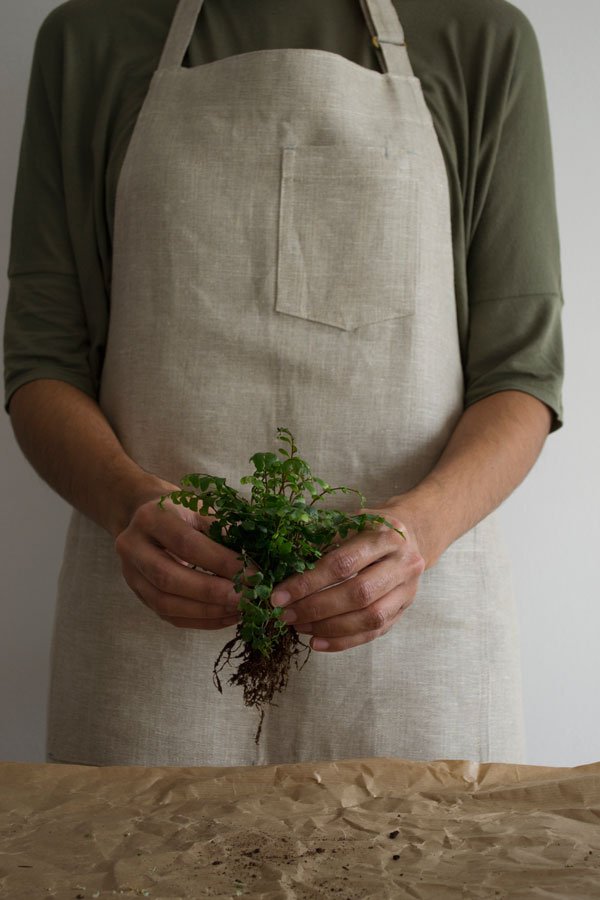 |1| Remove the access soil from to expose the roots of the plant taking care not to break them. Wrap the root ball in the Sphagnum moss. This will keep the core of the ball nice and moist.
|1| Remove the access soil from to expose the roots of the plant taking care not to break them. Wrap the root ball in the Sphagnum moss. This will keep the core of the ball nice and moist. |2| In a bucket or large bowl, combine in equal parts the compost and soil, mixing it with water until the soil just clumps together as you make a ball. Form a solid ball large enough to house the roots of the plant (you may need to squeeze out the excess water to do this). Make a hole for the roots of the plant and gently insert it, squeezing the soil back around it.
|2| In a bucket or large bowl, combine in equal parts the compost and soil, mixing it with water until the soil just clumps together as you make a ball. Form a solid ball large enough to house the roots of the plant (you may need to squeeze out the excess water to do this). Make a hole for the roots of the plant and gently insert it, squeezing the soil back around it. |3| Place your plant ball onto a sheet of moss and bring the sides up around the soil, making sure to remove any excess folds, then firmly (but not too tightly) wrap the ball with the string.
|3| Place your plant ball onto a sheet of moss and bring the sides up around the soil, making sure to remove any excess folds, then firmly (but not too tightly) wrap the ball with the string.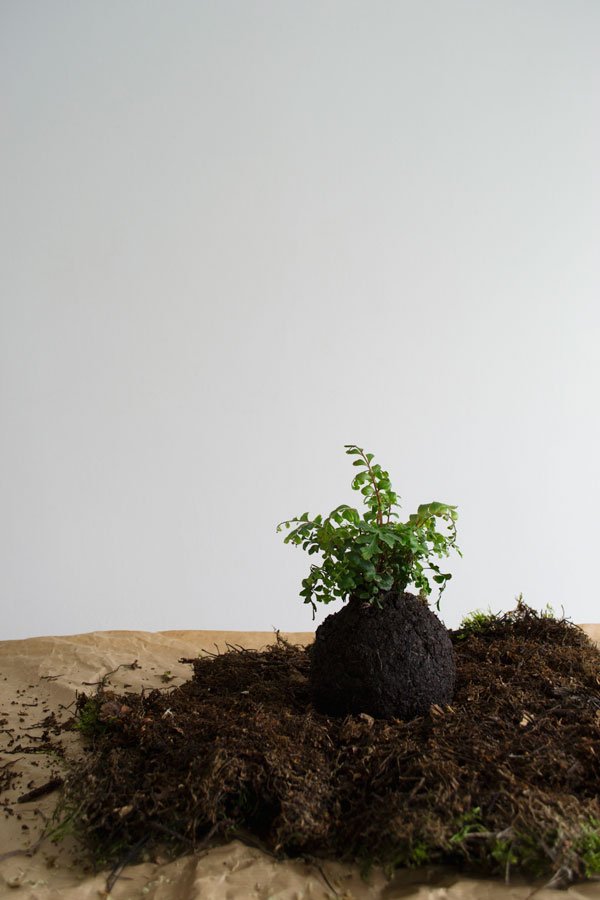
 |4| Wrap the ball with the string until the moss the ball is secure. Tie three additional lengths of string on the plant ready to hang it up and choose a location your plant will love. If you're unable to hang your Kokedama, you can also display them on a shelf or other surface with a small plate or saucer underneath to catch the excess moisture.TIP: Keep an eye on how moist the Kokedama is - watering once a week by submerging it or regularly spritzing with water will keep it happy. I add feed into the water during the growing months (Spring and Summer) too.
|4| Wrap the ball with the string until the moss the ball is secure. Tie three additional lengths of string on the plant ready to hang it up and choose a location your plant will love. If you're unable to hang your Kokedama, you can also display them on a shelf or other surface with a small plate or saucer underneath to catch the excess moisture.TIP: Keep an eye on how moist the Kokedama is - watering once a week by submerging it or regularly spritzing with water will keep it happy. I add feed into the water during the growing months (Spring and Summer) too. 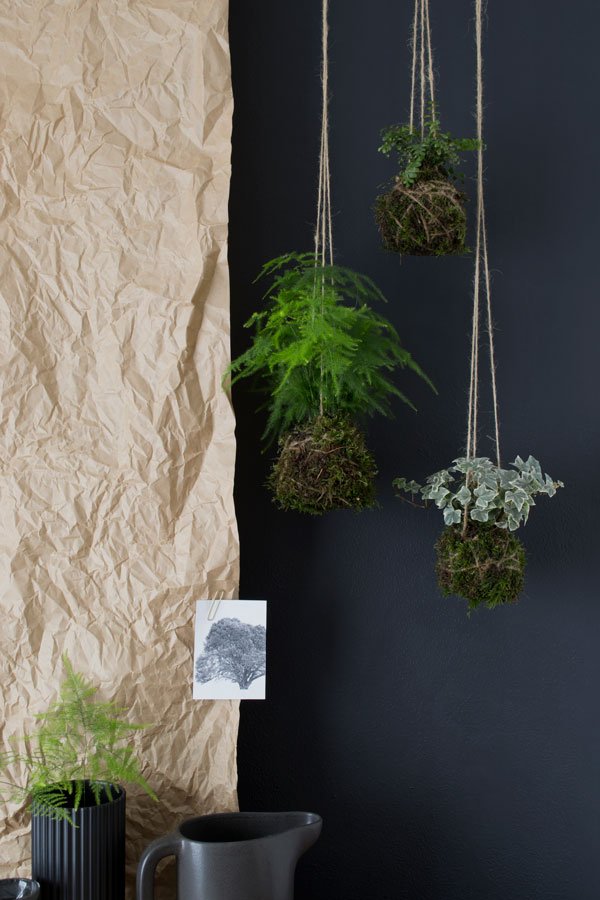 To see more beautiful DIY plant tutorials and inspirational urban jungle stylings, you can purchase 'Urban Jungle - Living & Styling with Plants' here and follow the community on Instagram @urbanjungleblog #urbanjunglebook.
To see more beautiful DIY plant tutorials and inspirational urban jungle stylings, you can purchase 'Urban Jungle - Living & Styling with Plants' here and follow the community on Instagram @urbanjungleblog #urbanjunglebook.
Photography & Styling © Tiffany Grant-Riley (with thanks to Enrich & Endure for the loan of the linen apron).
Urban Jungle Book | Living + Styling With Plants
 From time to time I'll review a book here that I think will be something you yourselves would love to own, either as thing of beauty for the coffee table (I still don't own one yet by the way) or as a useful resource for your own home.It goes without saying that I'm a little more invested in this one than most as it's written by two good friends of mine. Igor Josifovic and Judith De Graaff are fellow bloggers and founders of the Urban Jungle Bloggers community which they started in 2013 having discovered a mutual love of plants. Their community has grown immensely since then, proving that plants are beneficial to our emotional well-being as well as enhancing our homes visually. Earlier this spring I shot a few spaces within our home for this very book and I'm really proud to see them here amongst such a lovely group of plant lovers.
From time to time I'll review a book here that I think will be something you yourselves would love to own, either as thing of beauty for the coffee table (I still don't own one yet by the way) or as a useful resource for your own home.It goes without saying that I'm a little more invested in this one than most as it's written by two good friends of mine. Igor Josifovic and Judith De Graaff are fellow bloggers and founders of the Urban Jungle Bloggers community which they started in 2013 having discovered a mutual love of plants. Their community has grown immensely since then, proving that plants are beneficial to our emotional well-being as well as enhancing our homes visually. Earlier this spring I shot a few spaces within our home for this very book and I'm really proud to see them here amongst such a lovely group of plant lovers. This urban jungle book, titled 'Urban Jungle - Living and Styling with Plants' is a joyous celebration of indoor gardening. Whether you're new to botanicals or more experienced, this book is a friendly and informative way to immerse yourself.
This urban jungle book, titled 'Urban Jungle - Living and Styling with Plants' is a joyous celebration of indoor gardening. Whether you're new to botanicals or more experienced, this book is a friendly and informative way to immerse yourself.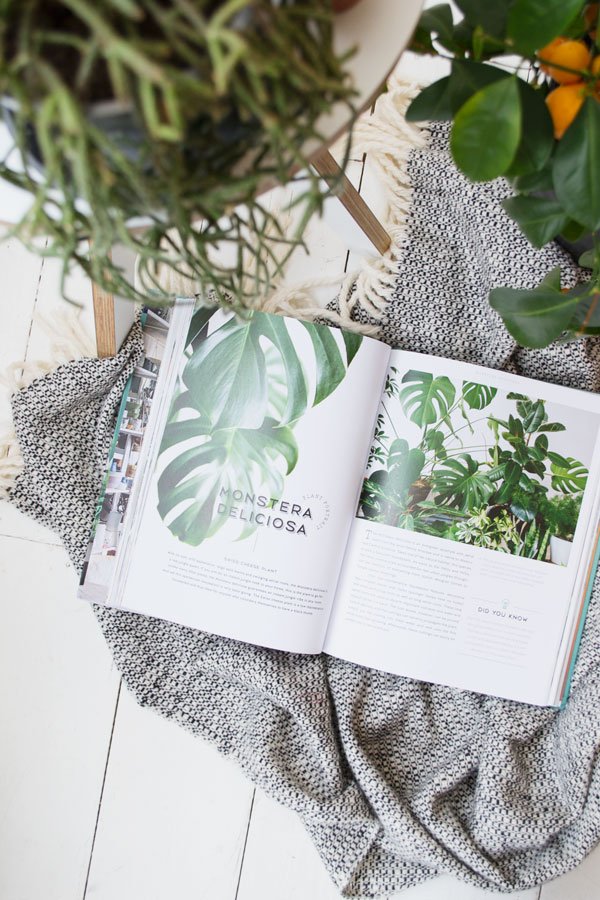
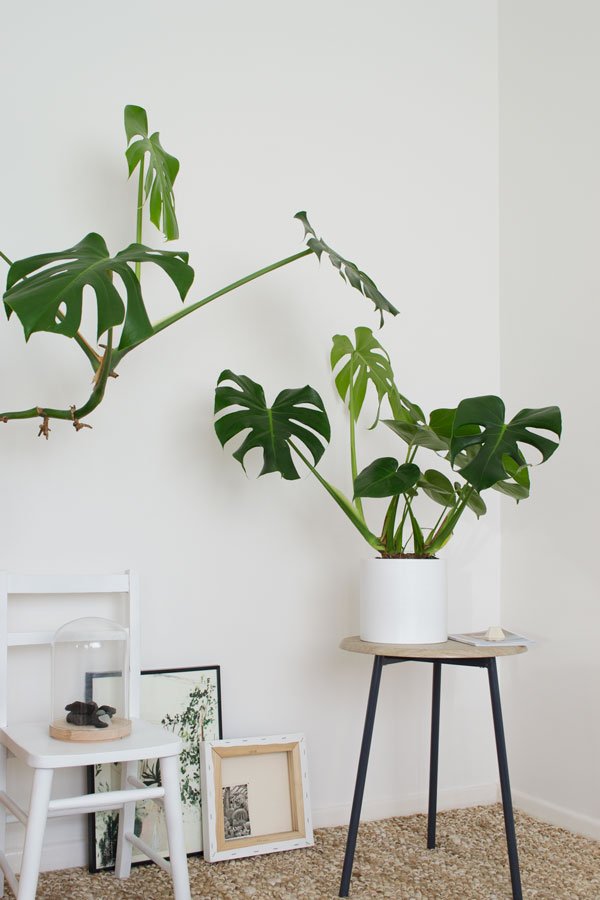

 Focusing on 11 varieties of plants, the book mixes tips and advice for plant care and propagation with beautiful images from the homes of Urban Jungle enthusiasts across the globe. There are DIY tutorials for more hands on creative planting (I'll be sharing one of mine with you next week) and styling inspirations, interleaved with illustrations by Saar Manche. A truly inspired read, this Urban Jungle book will motivate anyone (however black fingered you think you might be) to start growing their own little garden and I can't wait to continue that journey with mine.
Focusing on 11 varieties of plants, the book mixes tips and advice for plant care and propagation with beautiful images from the homes of Urban Jungle enthusiasts across the globe. There are DIY tutorials for more hands on creative planting (I'll be sharing one of mine with you next week) and styling inspirations, interleaved with illustrations by Saar Manche. A truly inspired read, this Urban Jungle book will motivate anyone (however black fingered you think you might be) to start growing their own little garden and I can't wait to continue that journey with mine.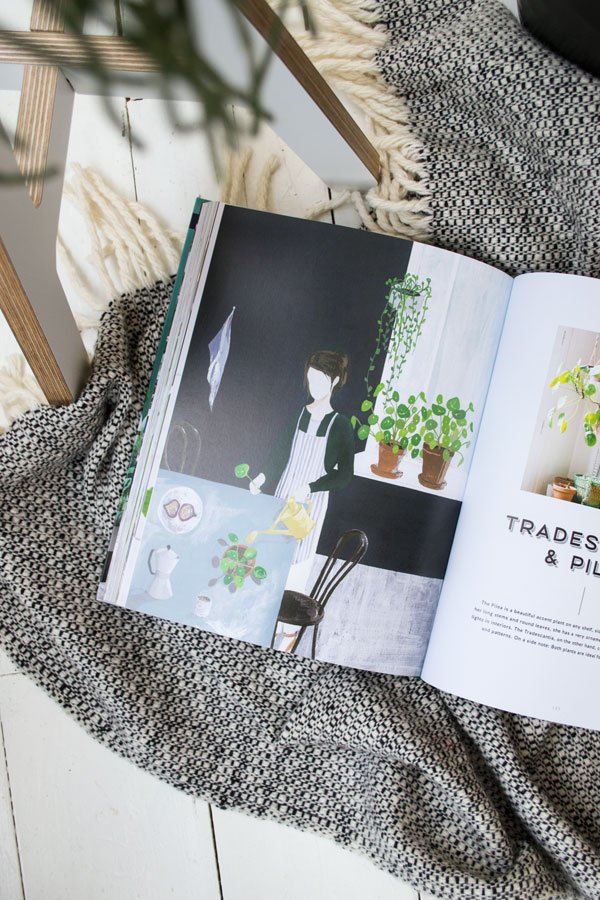 You can order your copy direct from Amazon, currently available in the U.S, UK and Germany, published by Callwey.
You can order your copy direct from Amazon, currently available in the U.S, UK and Germany, published by Callwey.
Milan Interior Highlights / HAY Palissade Collection
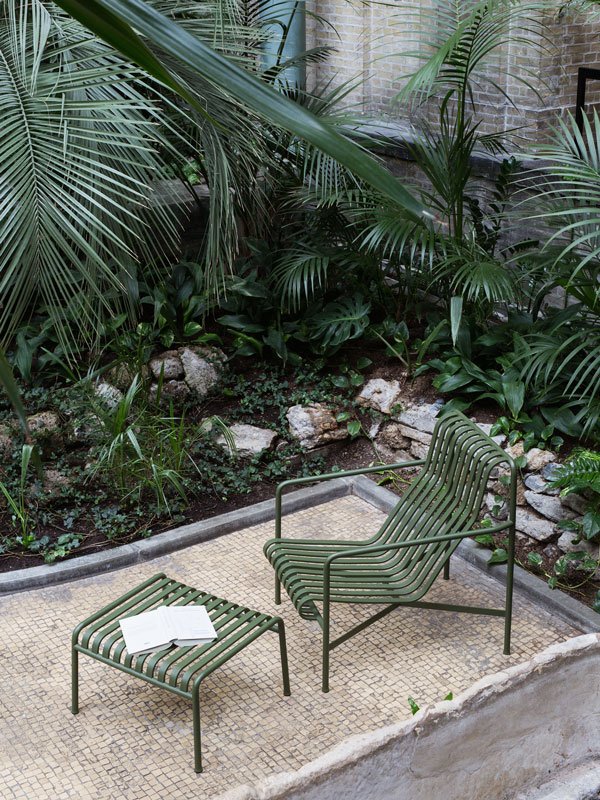 In today's highlight from the Salone del Mobile, I'm falling over myself to get my hands on the latest collection from HAY. I've noticed a real shift in the attention paid to outdoor furniture this year, no doubt inspired by the launch of the Palissade Collection, a collaboration between brothers Ronan and Erwan Bouroullec and HAY. Sticking closely to their commitment to produce good design made accessible for a larger audience, the new collection features thirteen different pieces to suit a variety of needs and spaces. Instantly drawn to the olive green colour (it also comes in an anthracite and light grey) I love their curved, slatted surfaces, giving a feeling of space which combined with the outdoors blends beautifully, designed to suit natural and urban landscapes alike. Made from powder-coated steel, Palissade includes a sofa, lounge chairs, tables, benches and stools, and in true HAY style looks set to become a design classic in the years to come...
In today's highlight from the Salone del Mobile, I'm falling over myself to get my hands on the latest collection from HAY. I've noticed a real shift in the attention paid to outdoor furniture this year, no doubt inspired by the launch of the Palissade Collection, a collaboration between brothers Ronan and Erwan Bouroullec and HAY. Sticking closely to their commitment to produce good design made accessible for a larger audience, the new collection features thirteen different pieces to suit a variety of needs and spaces. Instantly drawn to the olive green colour (it also comes in an anthracite and light grey) I love their curved, slatted surfaces, giving a feeling of space which combined with the outdoors blends beautifully, designed to suit natural and urban landscapes alike. Made from powder-coated steel, Palissade includes a sofa, lounge chairs, tables, benches and stools, and in true HAY style looks set to become a design classic in the years to come...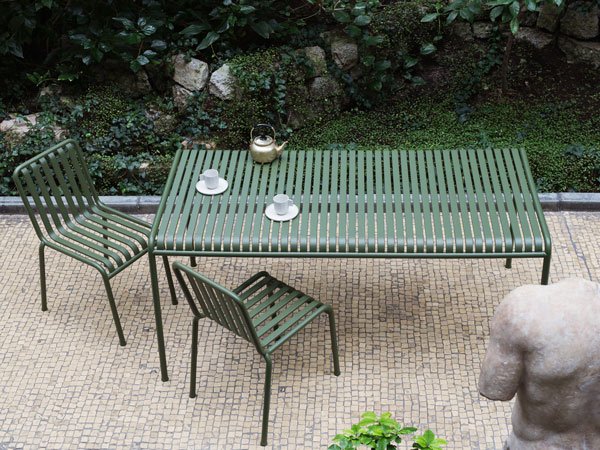
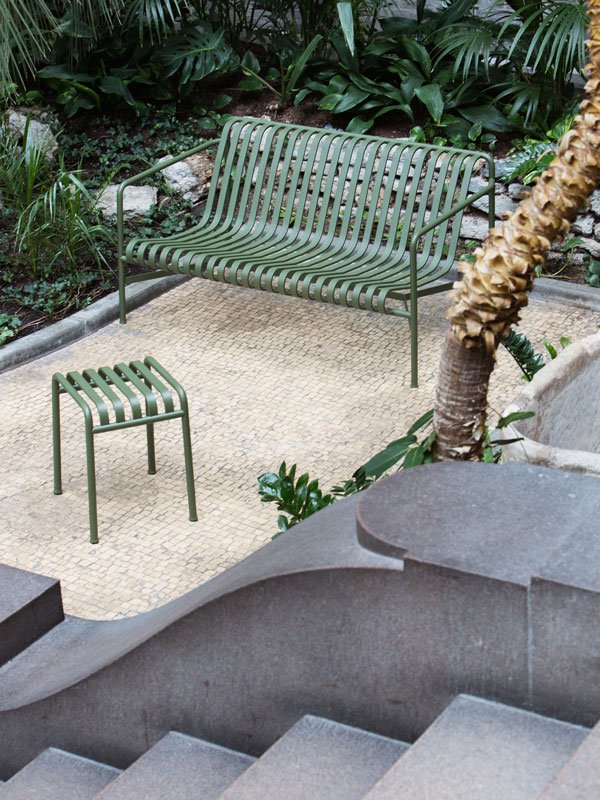
"Since the beginning, it was very clear to me that this collection, these pieces, needed to have a particular aspect, something you could trust. The weight is part of this fact that you could trust a piece like this, you let it in your garden, outside for all the years, you do not care to treat it in a fragile way. For me, these are the types of pieces that stay for a while, and that maybe you would repaint after ten or twenty years."
- Ronan Bouroullec.
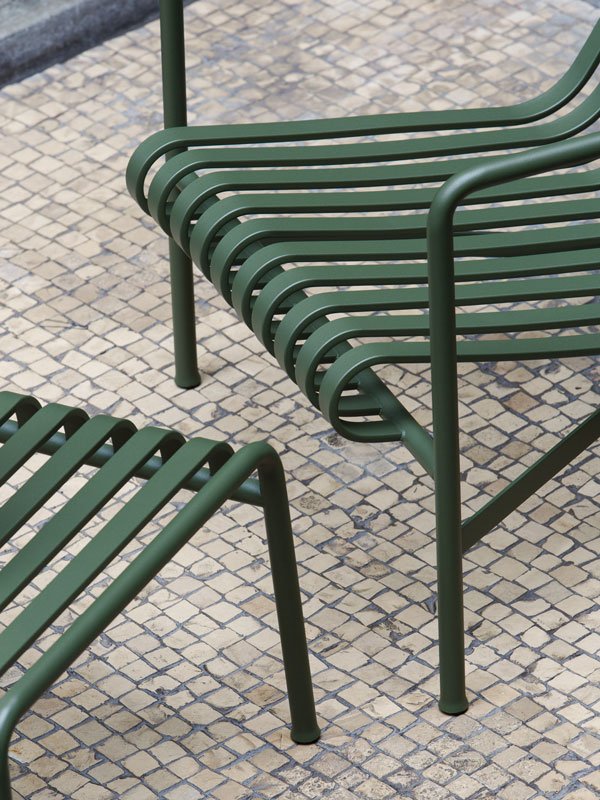
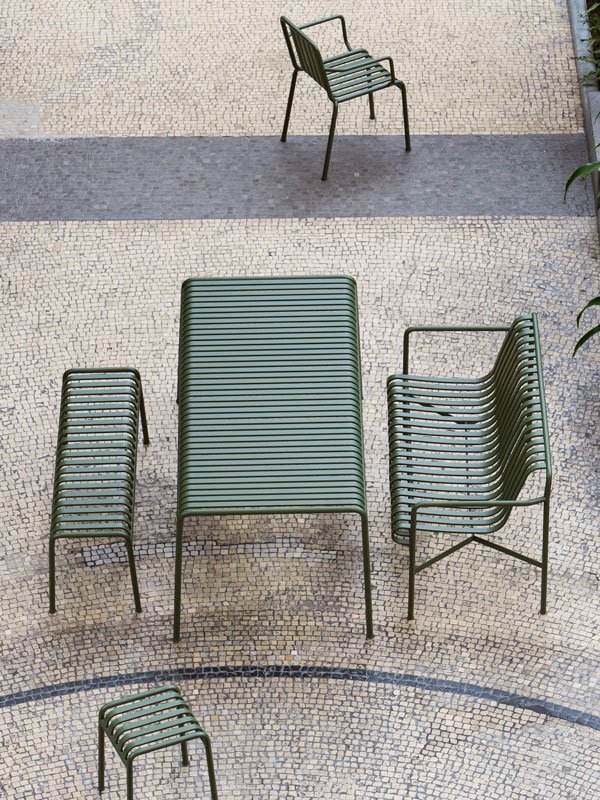 From a contemporary perspective, I could really see this collection working in a courtyard space, with matt black painted walls or fencing and structural grasses and palms. Wouldn't that be something?
From a contemporary perspective, I could really see this collection working in a courtyard space, with matt black painted walls or fencing and structural grasses and palms. Wouldn't that be something?
Photography © HAY.
Botanical Gardens / Munich
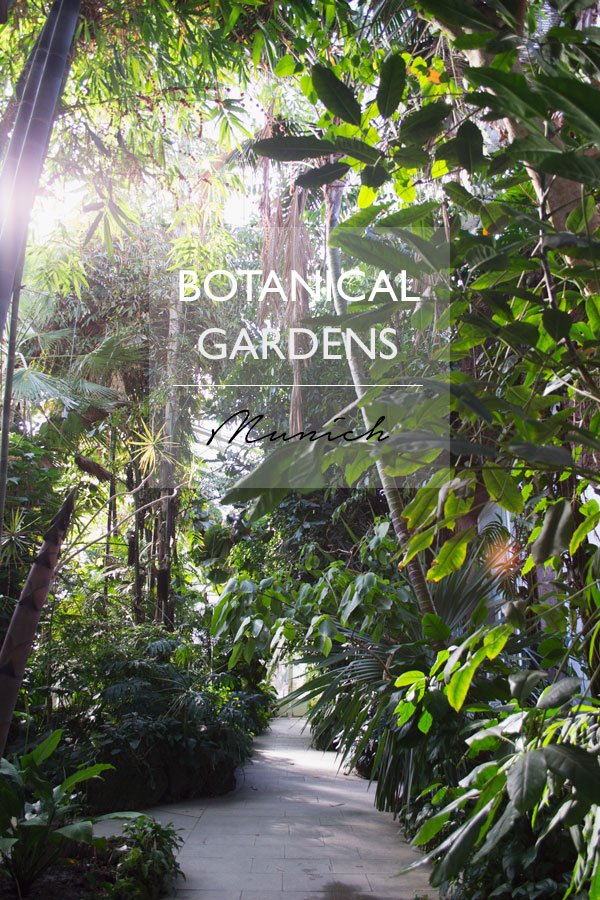 The past week has been so hectic (it's birthday month in our house right now-3 of us within two weeks) that I've been wishing myself back inside the quiet sanctuary of the botanical gardens in Munich. My last post of my blogger's tour of Munich before I talk about "the book" (squeee!) I had to share this botanical wonderland with you. Really, I had only one must-do plan while we were here for our short stay-visit the gardens. Hilariously, it took four of us bloggers a whole hour to try and figure the public transport system from the centre of the city before throwing in the towel and calling a cab. Yes, I'm sure there's a "how many bloggers..?" joke in there somewhere. Anyhow, after our morning styling session, I arrived with Jeska and Kimberly, a little frazzled but focused on losing ourselves inside the hot houses for some time. I won't waffle on for too long now, because the photos really do speak for themselves. The sheer scale of everything, the quality of light my camera just couldn't capture. Some of the oldest cacti we have ever seen. Everywhere so lush and green, only spurring me on to fill our home up with more large scale plants, and maybe even try a fiddle leaf fig (I couldn't fit the one here in frame enough, it just didn't do the size of it justice). Please, please visit.Have yourselves a good week...
The past week has been so hectic (it's birthday month in our house right now-3 of us within two weeks) that I've been wishing myself back inside the quiet sanctuary of the botanical gardens in Munich. My last post of my blogger's tour of Munich before I talk about "the book" (squeee!) I had to share this botanical wonderland with you. Really, I had only one must-do plan while we were here for our short stay-visit the gardens. Hilariously, it took four of us bloggers a whole hour to try and figure the public transport system from the centre of the city before throwing in the towel and calling a cab. Yes, I'm sure there's a "how many bloggers..?" joke in there somewhere. Anyhow, after our morning styling session, I arrived with Jeska and Kimberly, a little frazzled but focused on losing ourselves inside the hot houses for some time. I won't waffle on for too long now, because the photos really do speak for themselves. The sheer scale of everything, the quality of light my camera just couldn't capture. Some of the oldest cacti we have ever seen. Everywhere so lush and green, only spurring me on to fill our home up with more large scale plants, and maybe even try a fiddle leaf fig (I couldn't fit the one here in frame enough, it just didn't do the size of it justice). Please, please visit.Have yourselves a good week...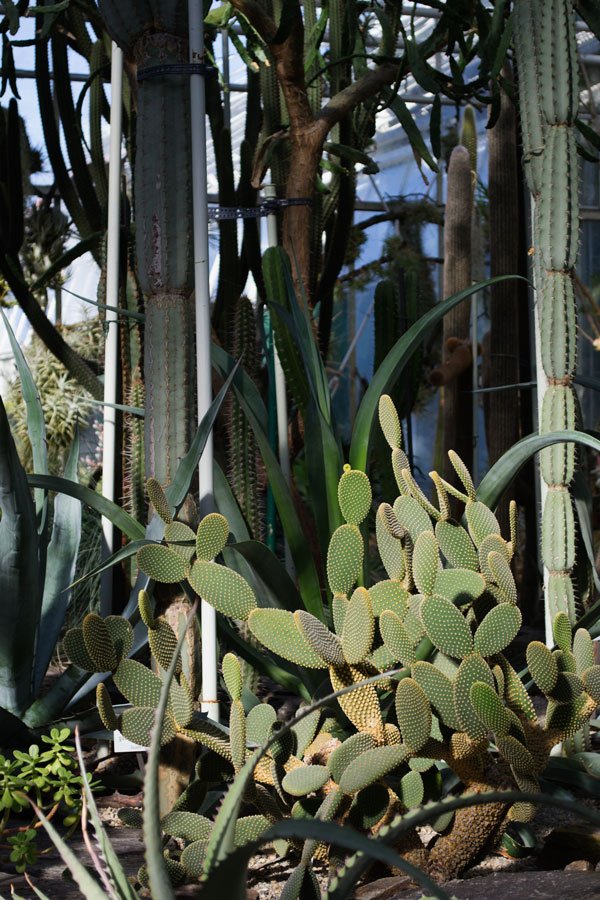
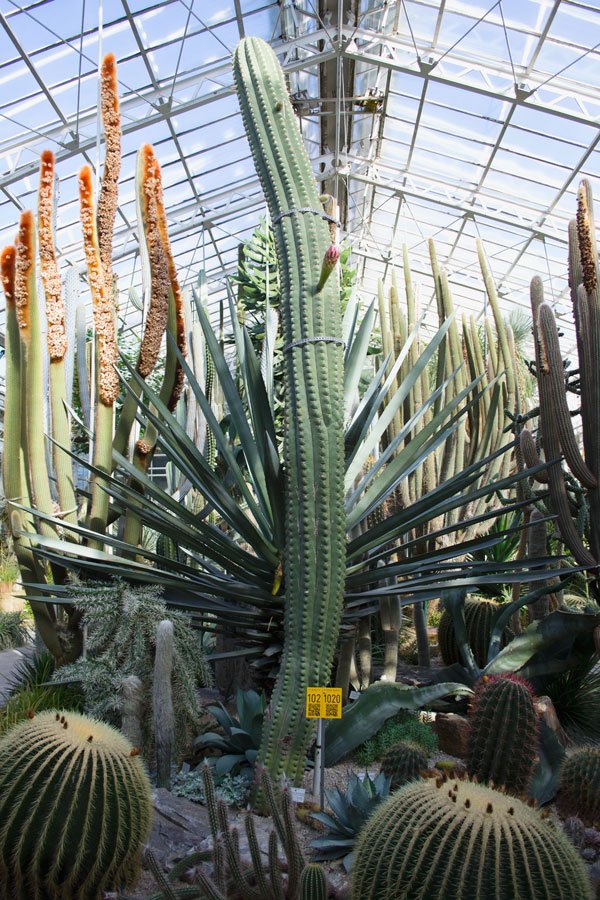
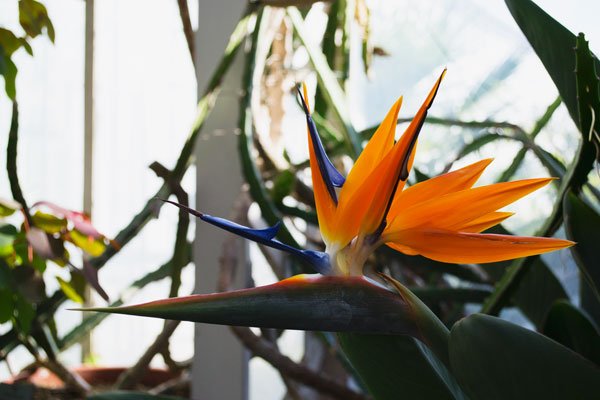
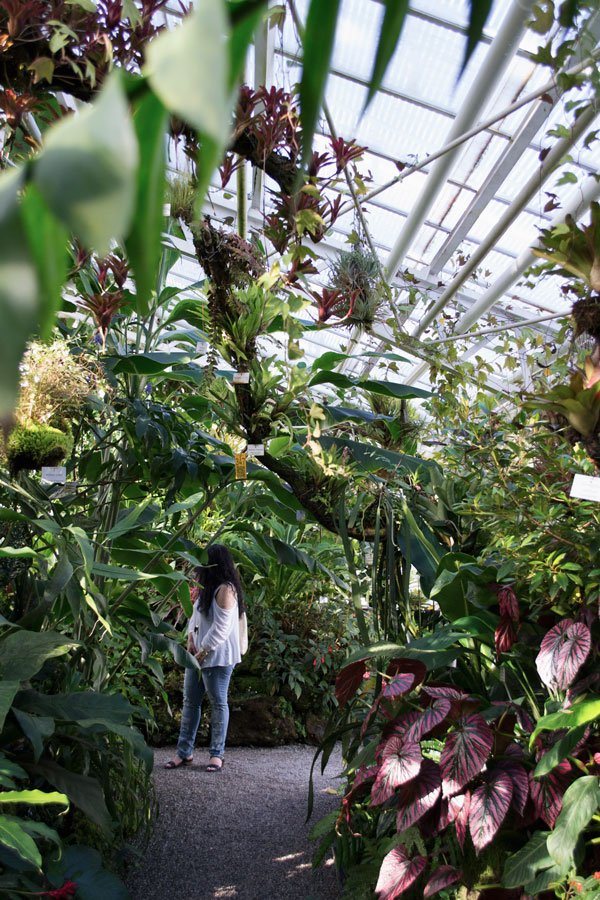
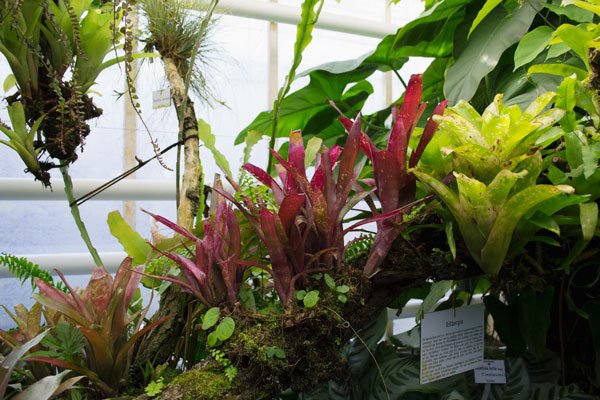
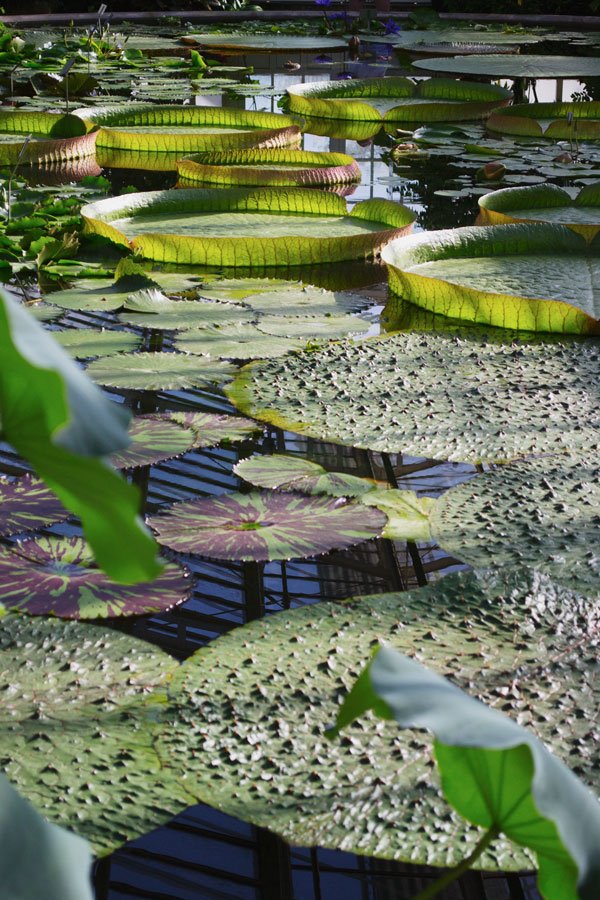
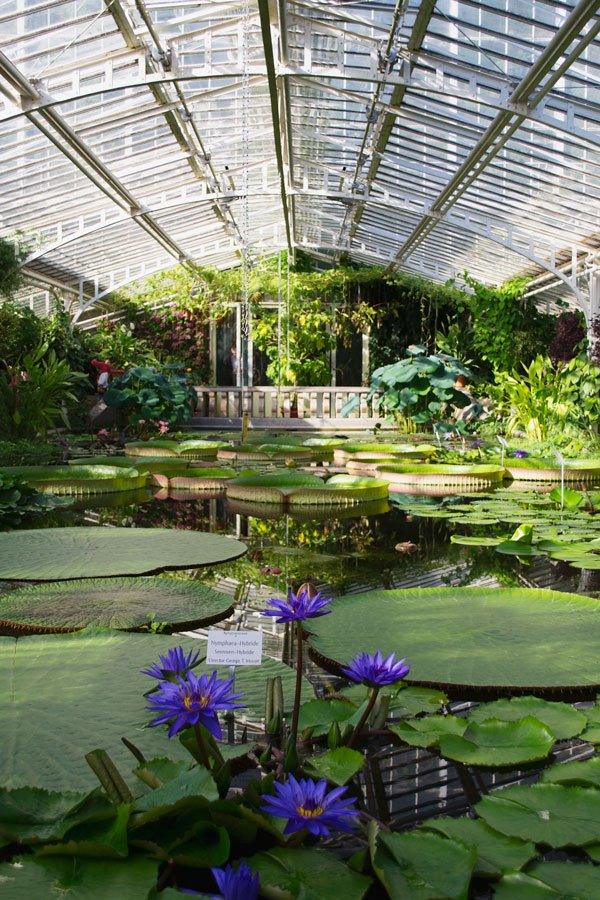
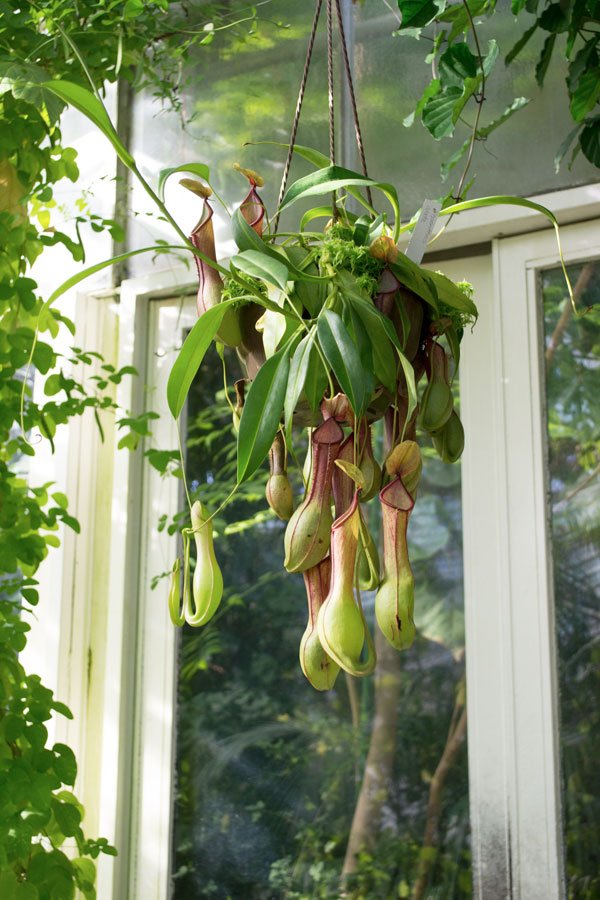
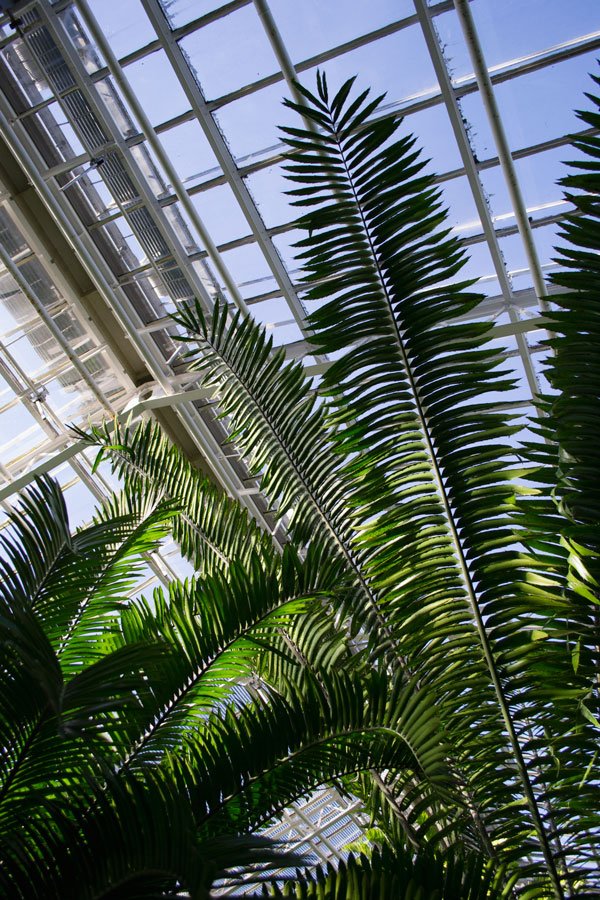
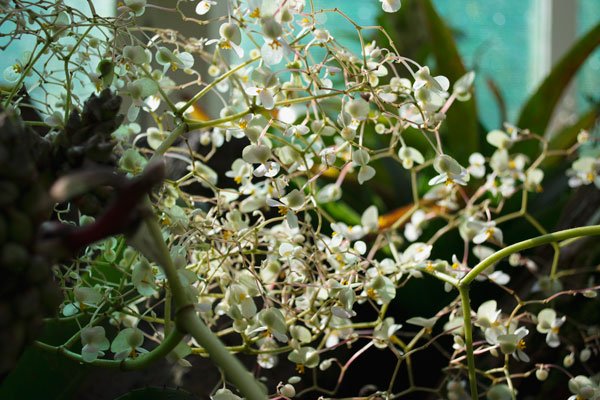
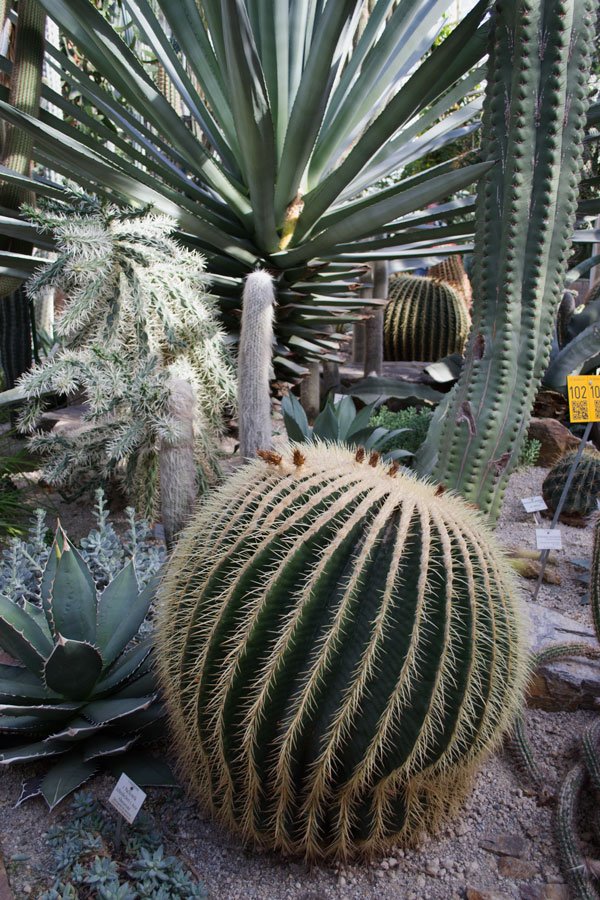
![[AD] A Narrow Backyard Dry Garden - The Reveal](https://images.squarespace-cdn.com/content/v1/63c93d56b8f27c4ca17f2ed3/1683896604707-1ZH4SZRP21CNSOX1SWX7/planting_small_raised_bed_dry_garden_hayloft_curate_and_display_10.jpg)





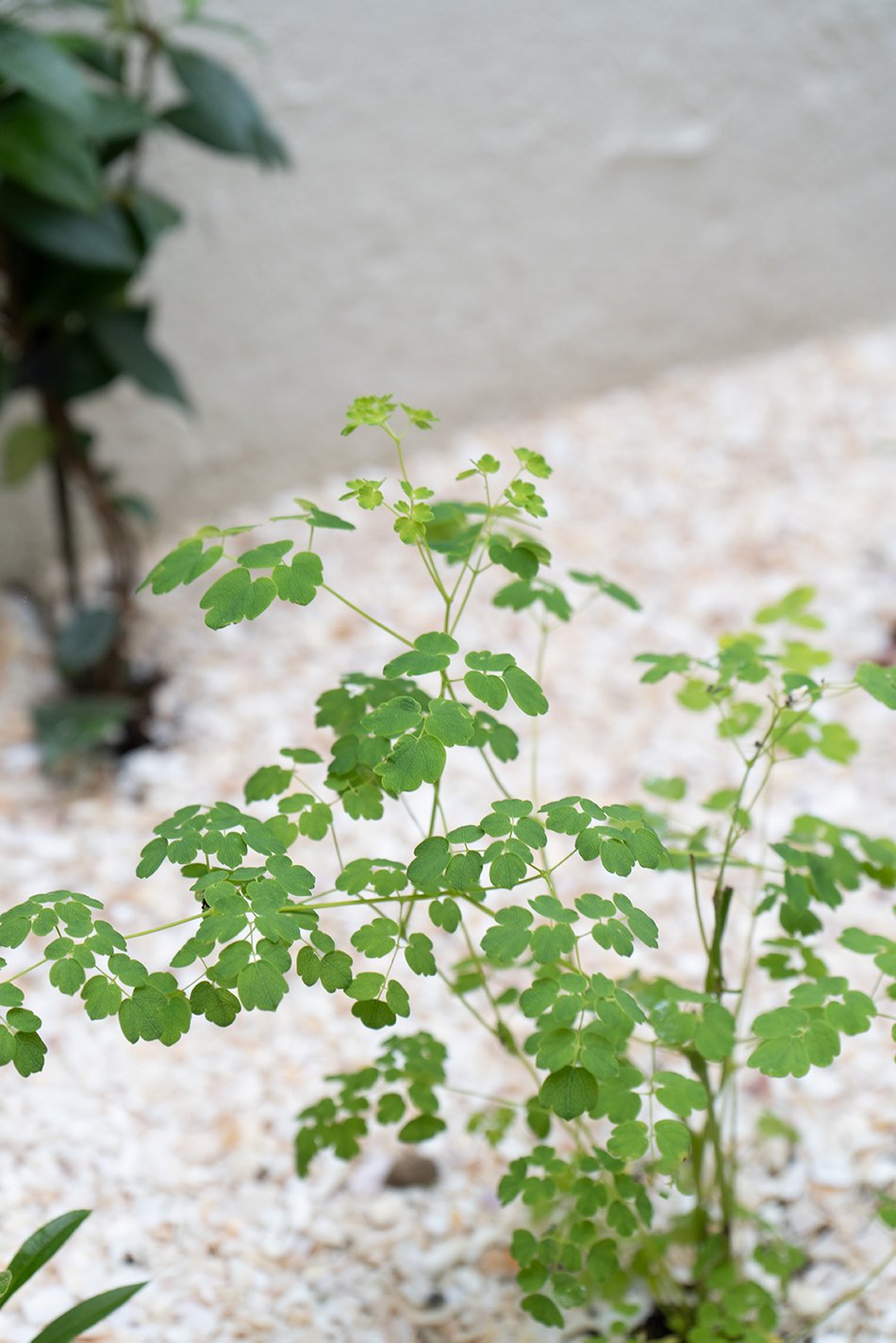
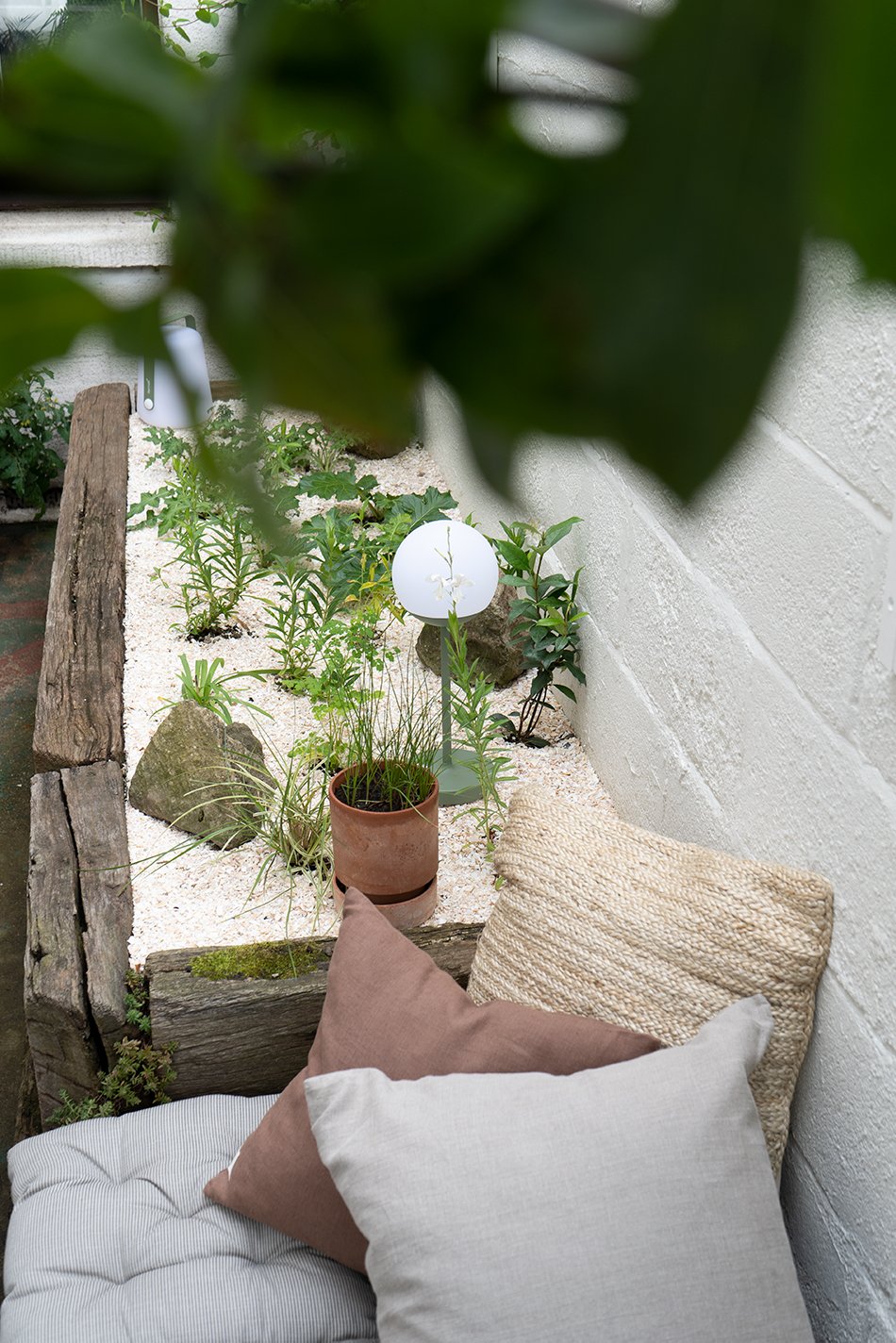




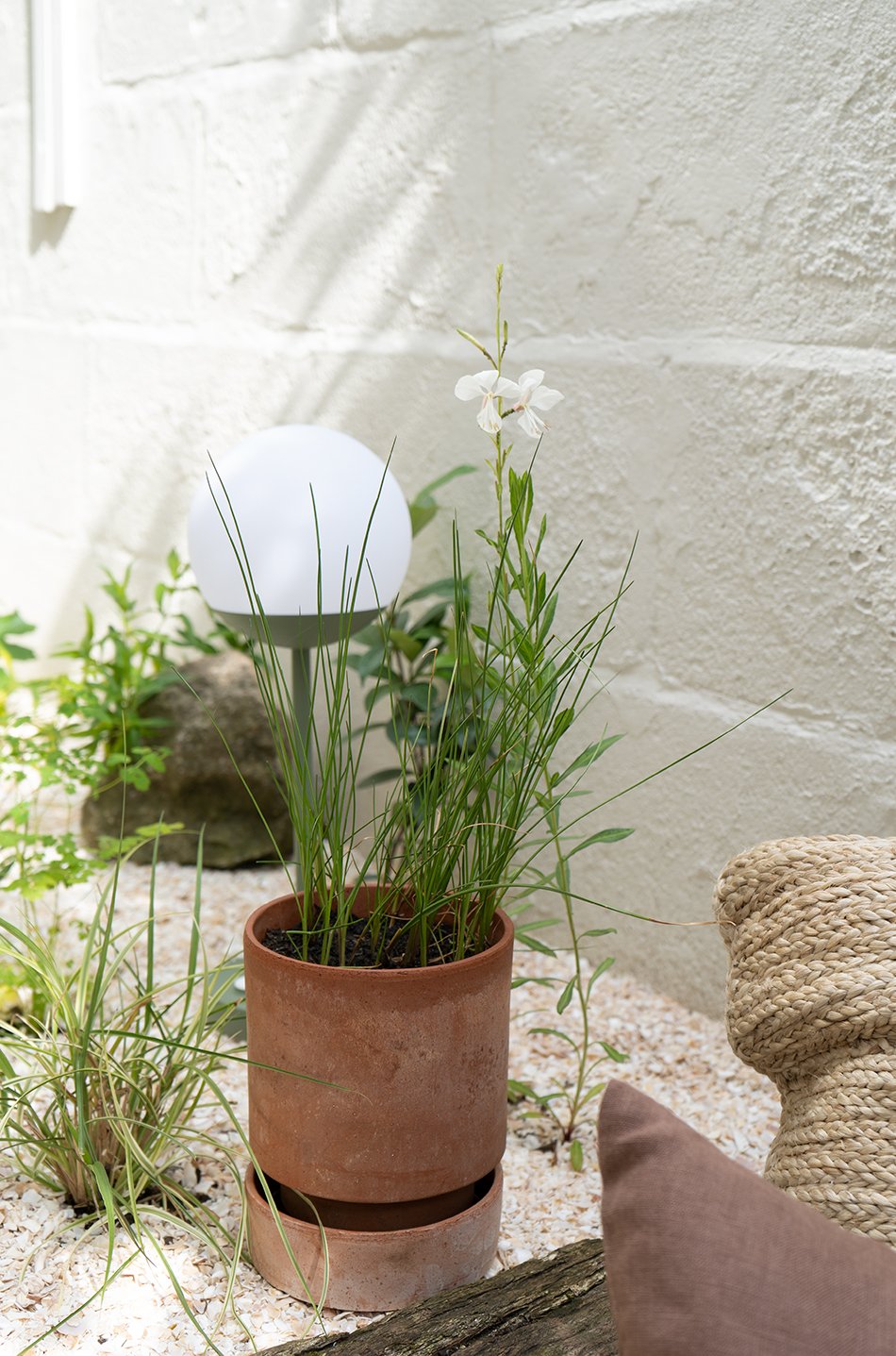
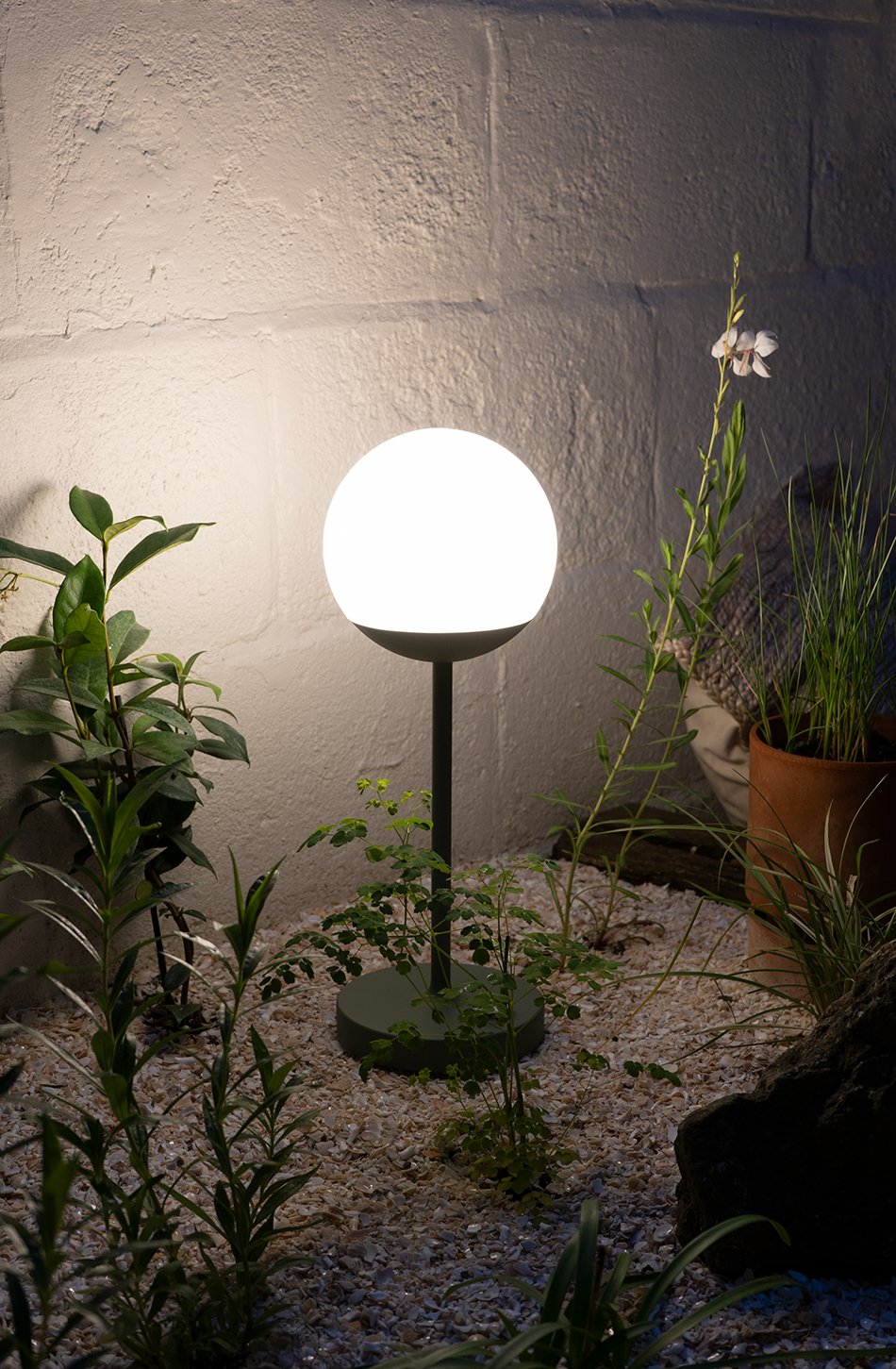

![[AD] My Plans For A Small Dry Garden With Hayloft](https://images.squarespace-cdn.com/content/v1/63c93d56b8f27c4ca17f2ed3/1683897145743-KLXICATQZADM36WN1Y00/small_raised_bed_dry_garden_inspiration_moodboard-1.jpg)




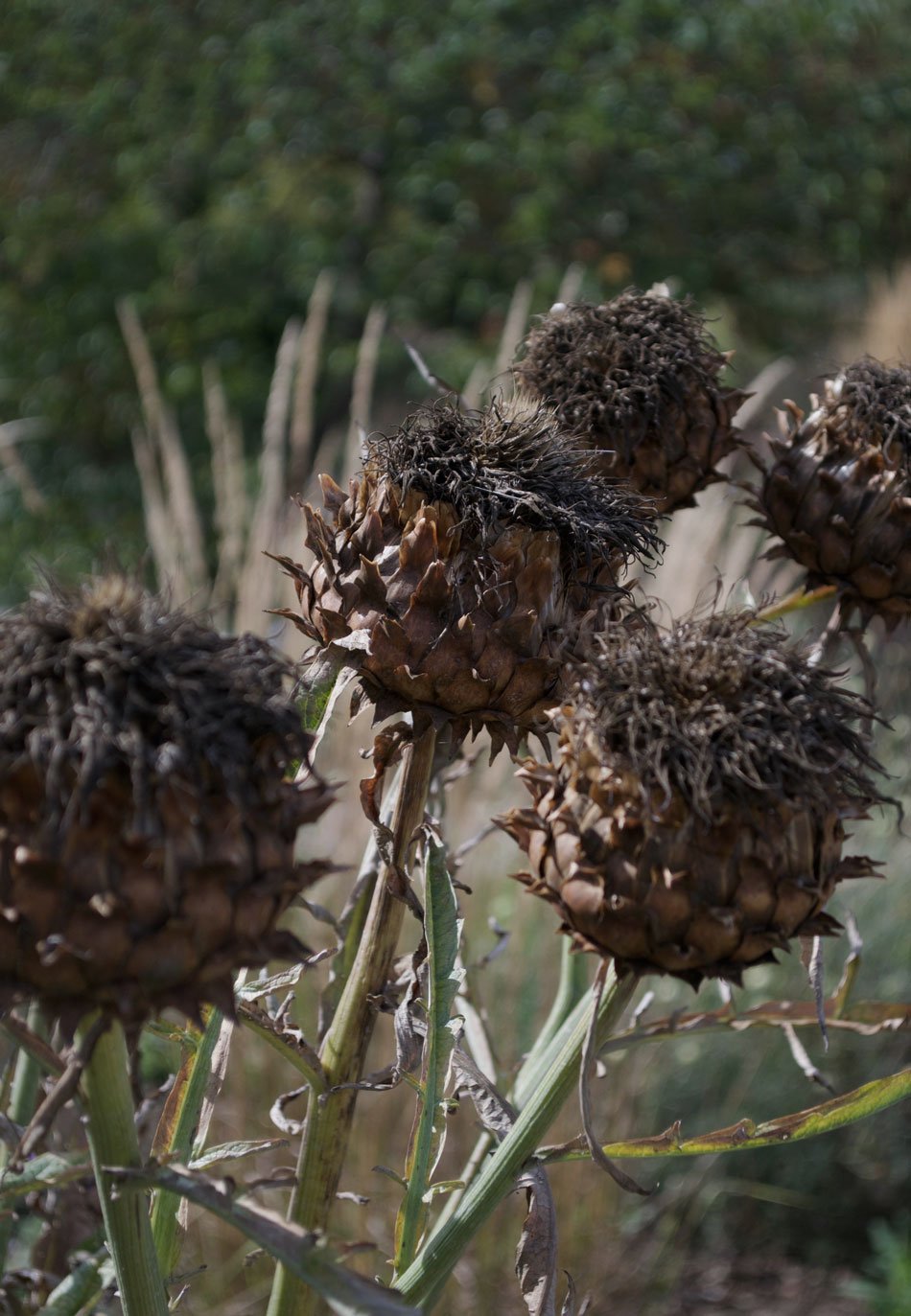


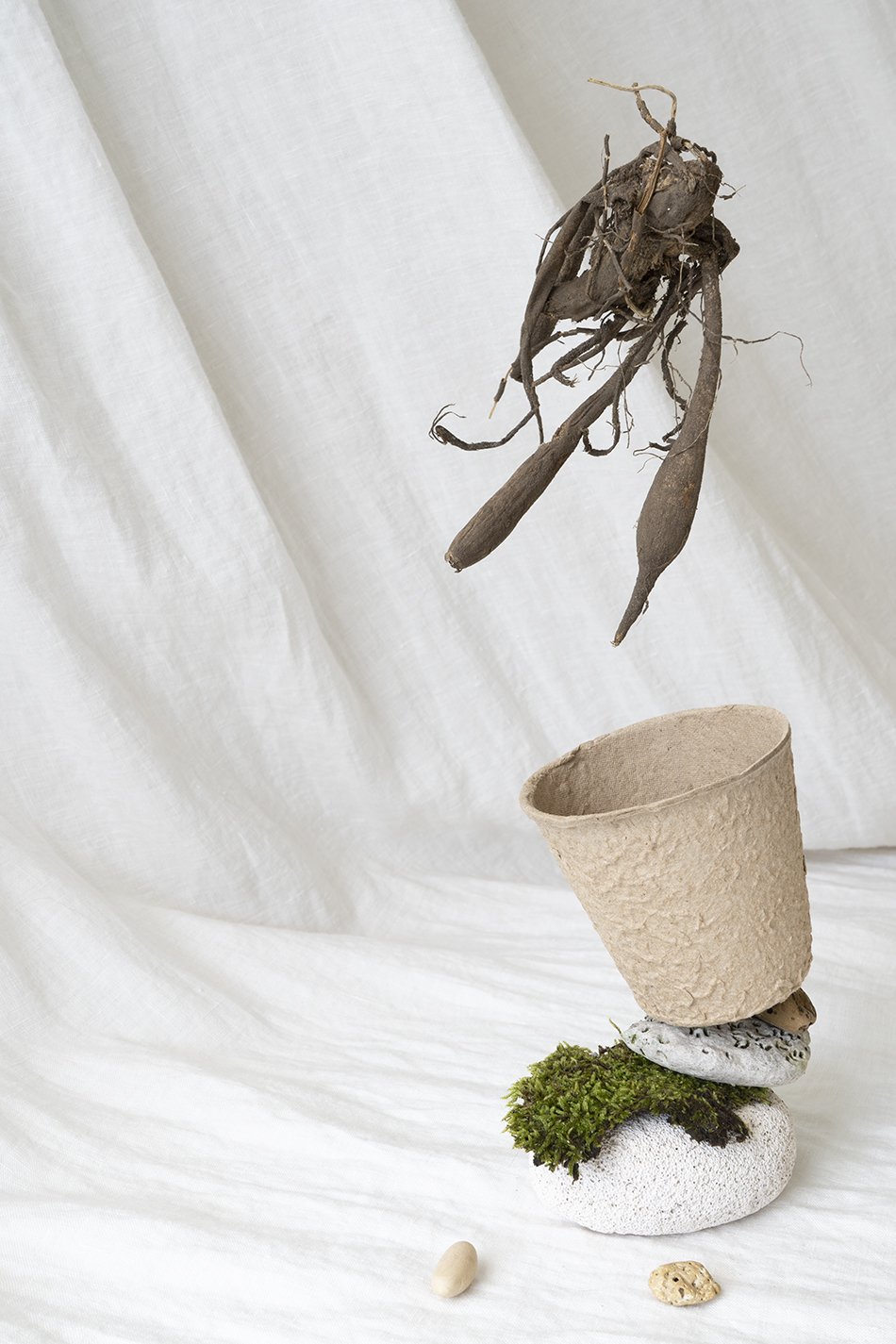








![[AD] Slow Moments with the Terra Planter Collection](https://images.squarespace-cdn.com/content/v1/63c93d56b8f27c4ca17f2ed3/1682502173476-INJOKMFCAWA6T85793PW/Georg_Jensen_Terra_Houseplant_Accessories_06-scaled.jpg)











